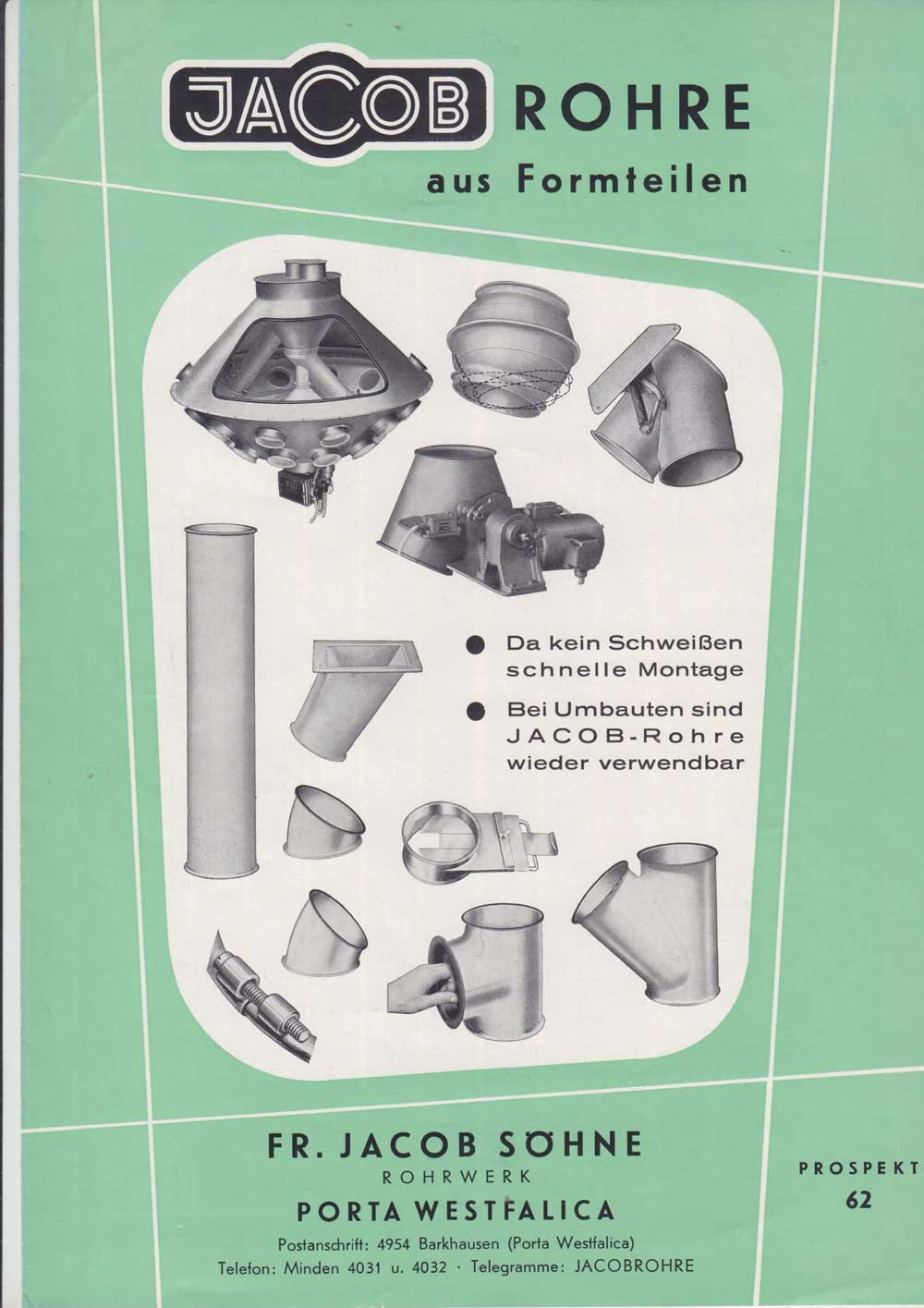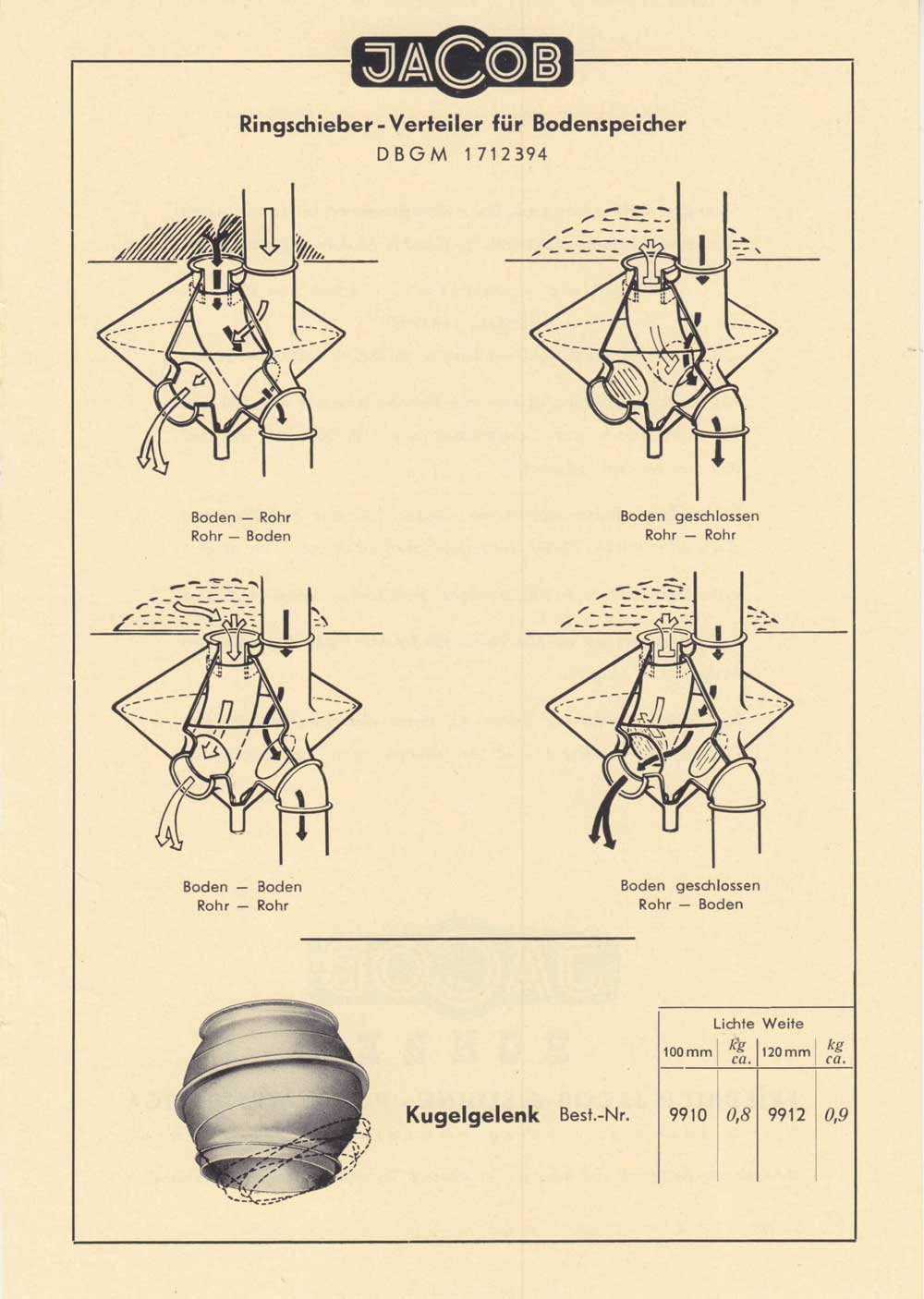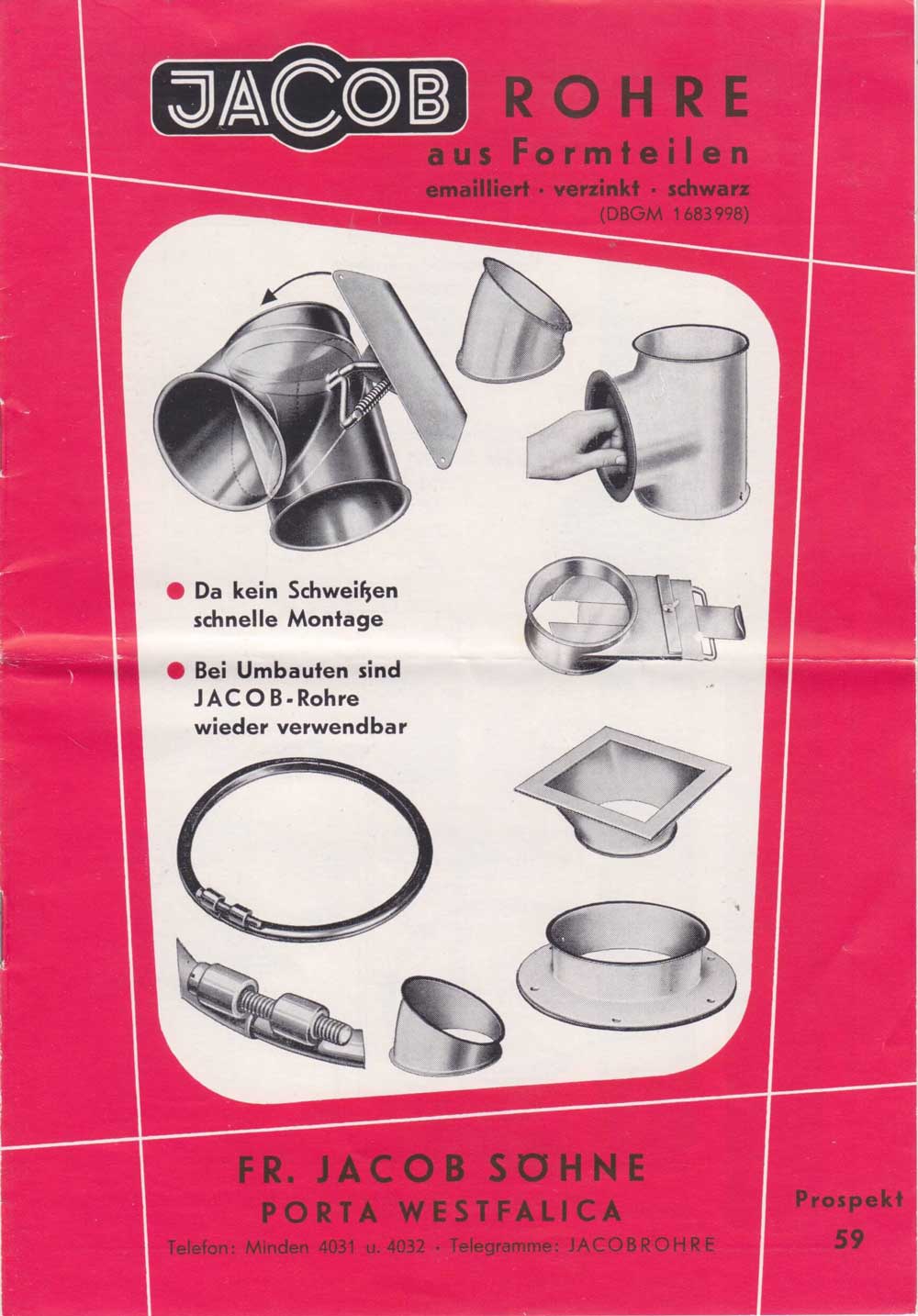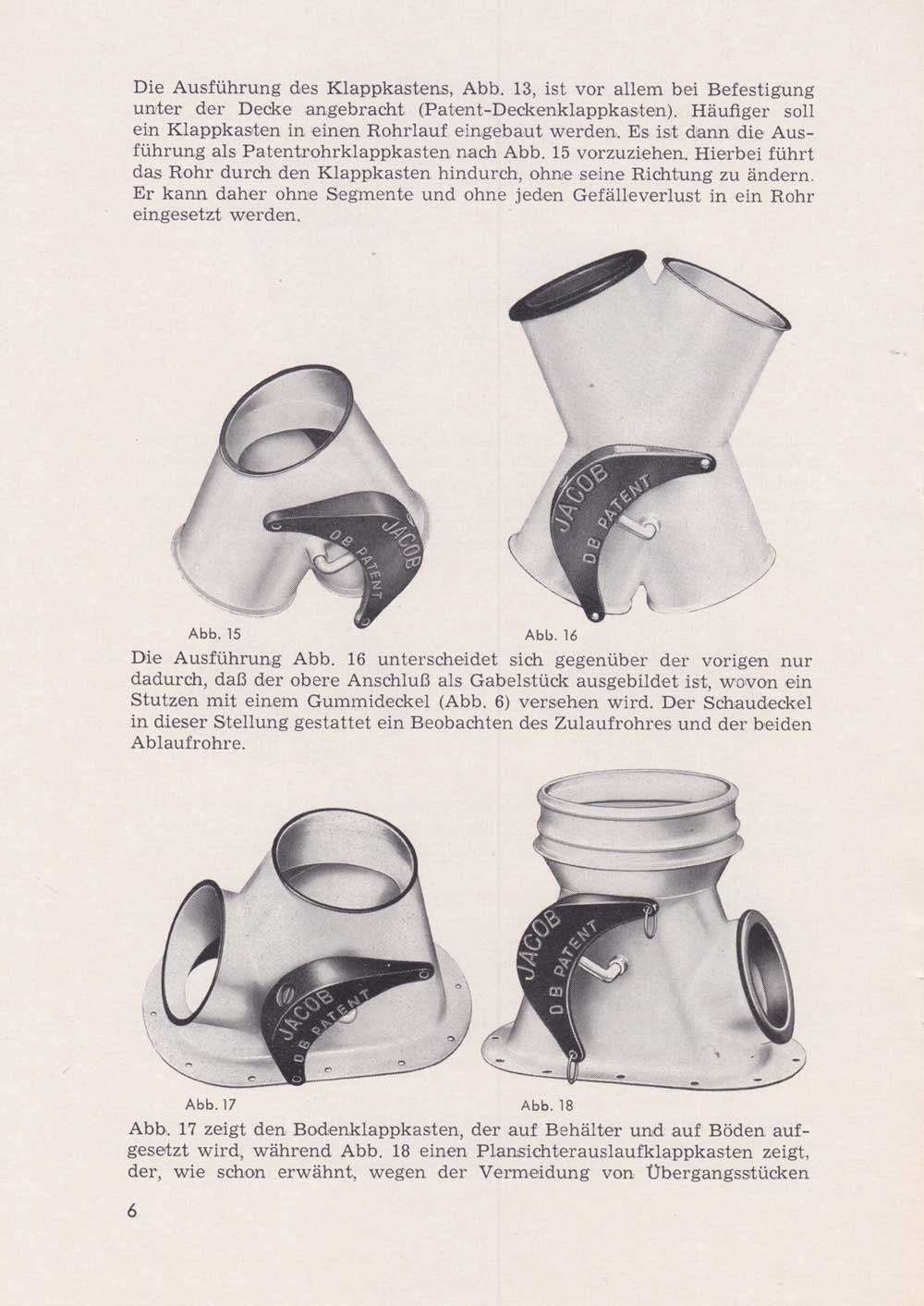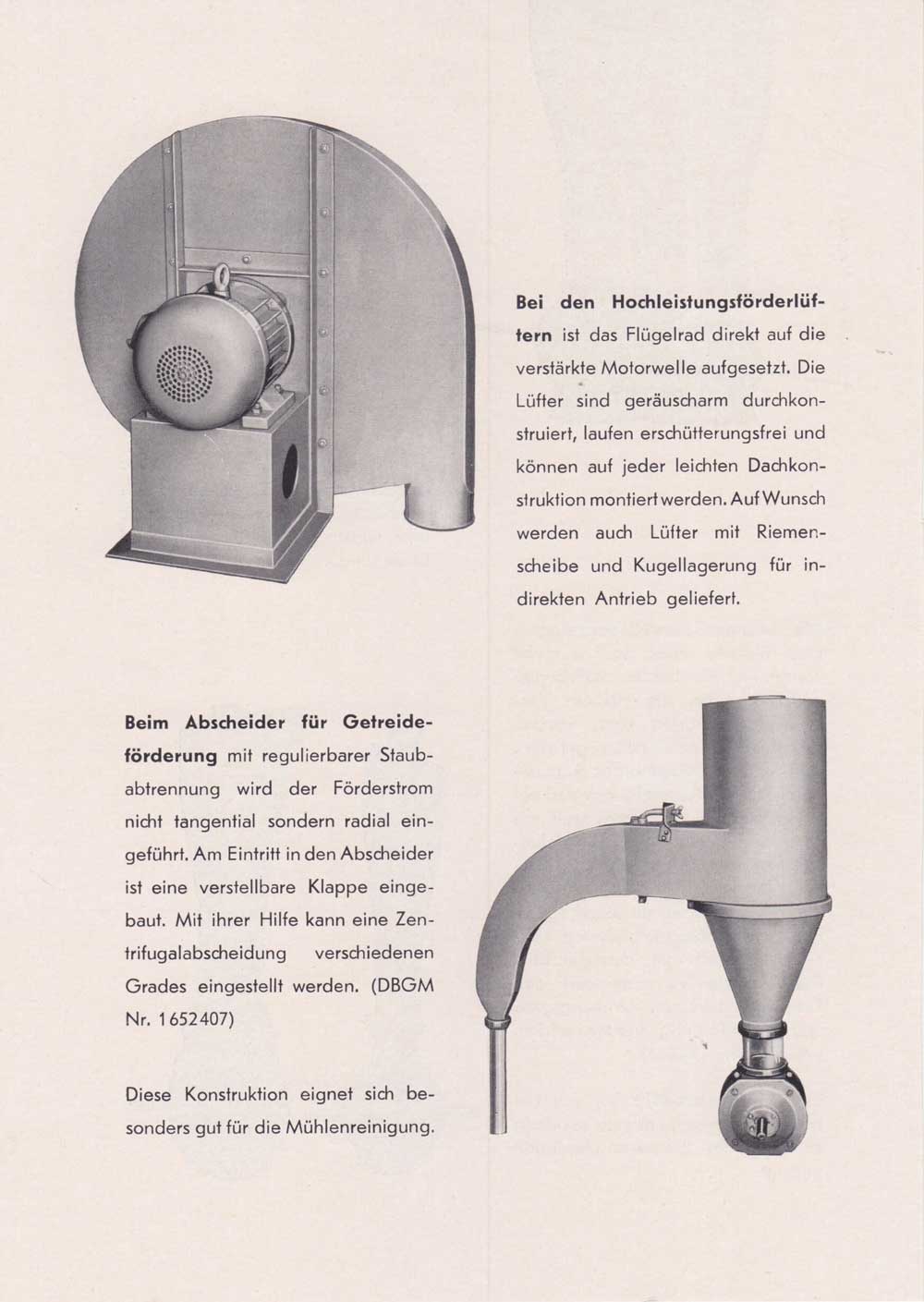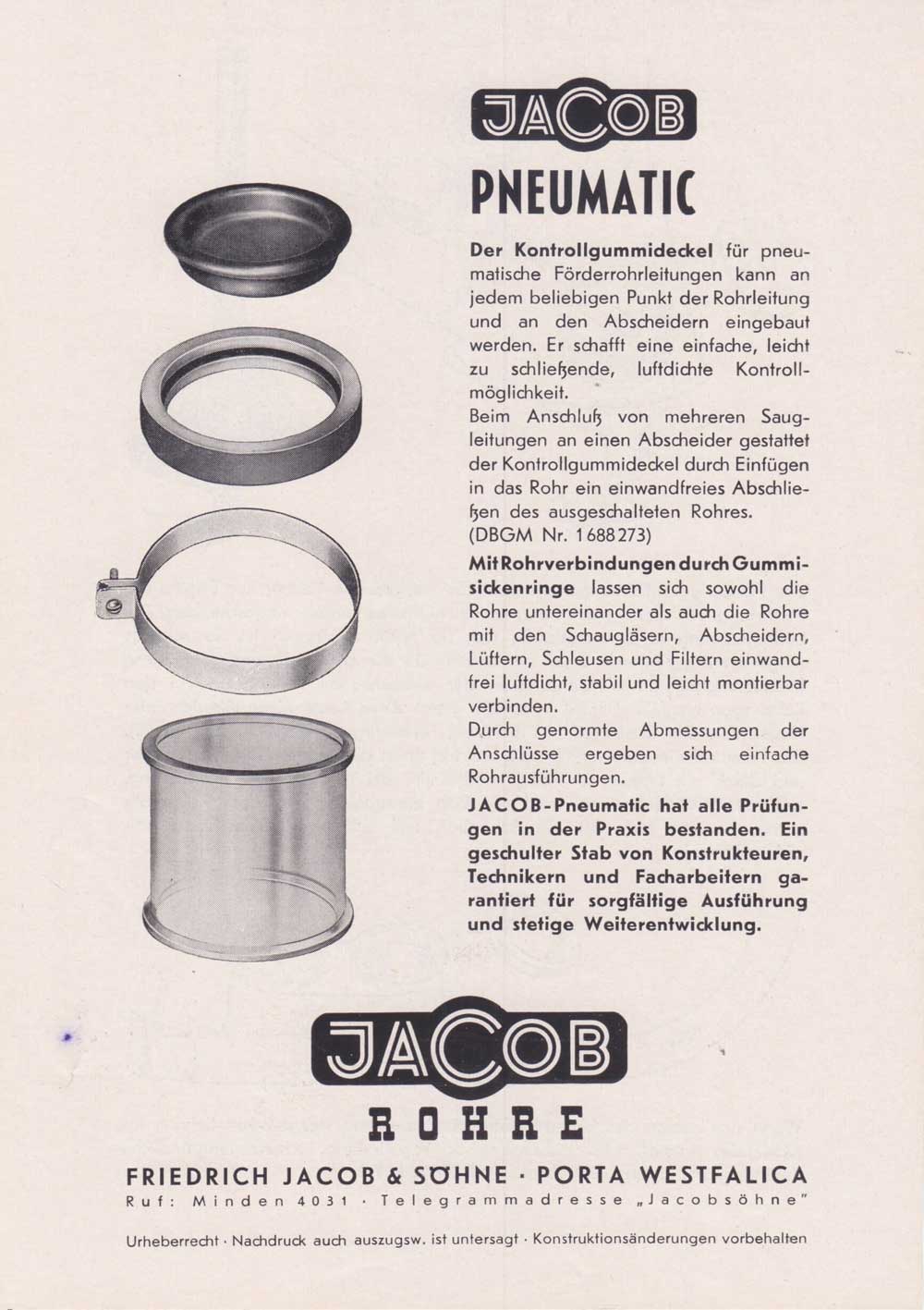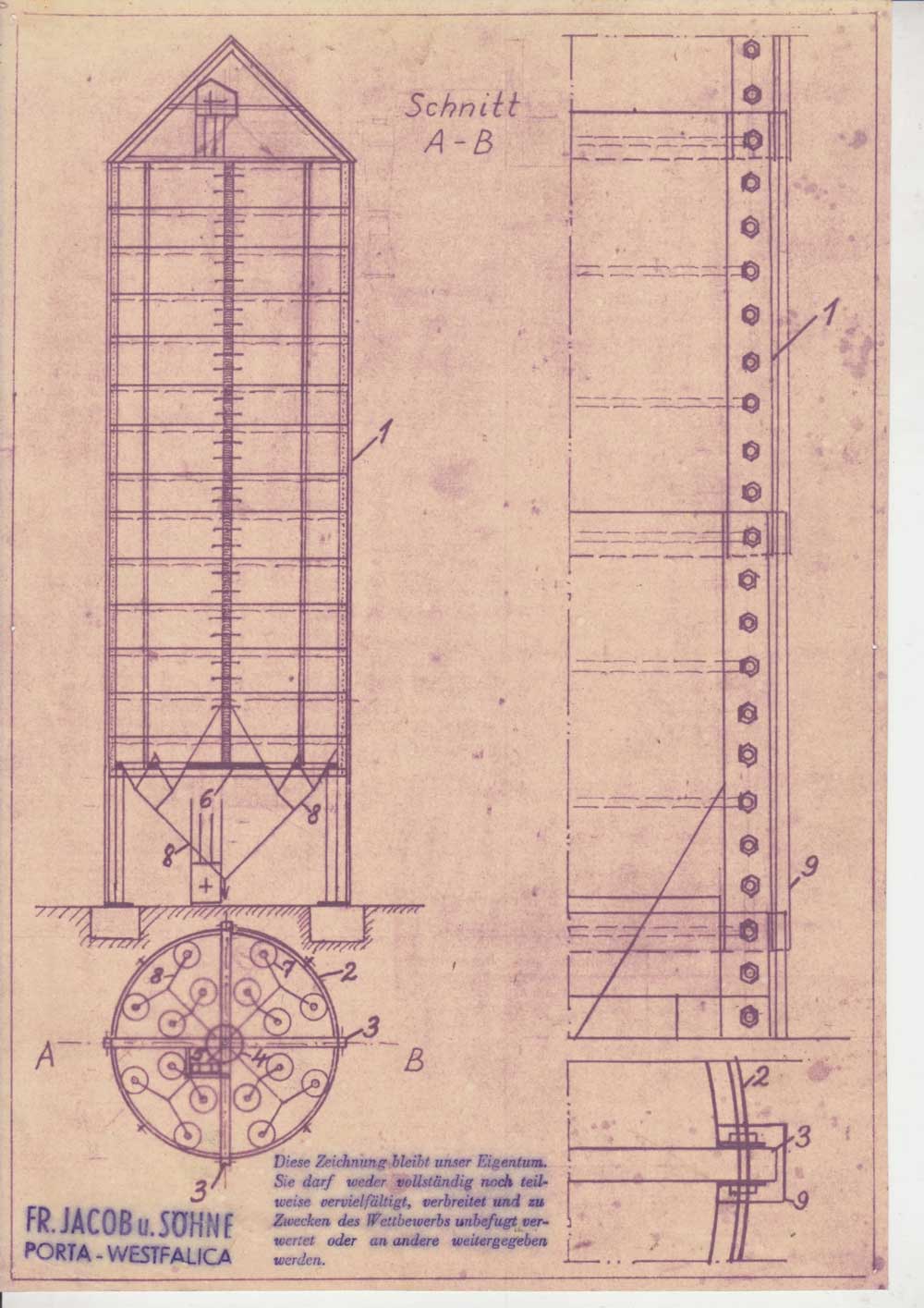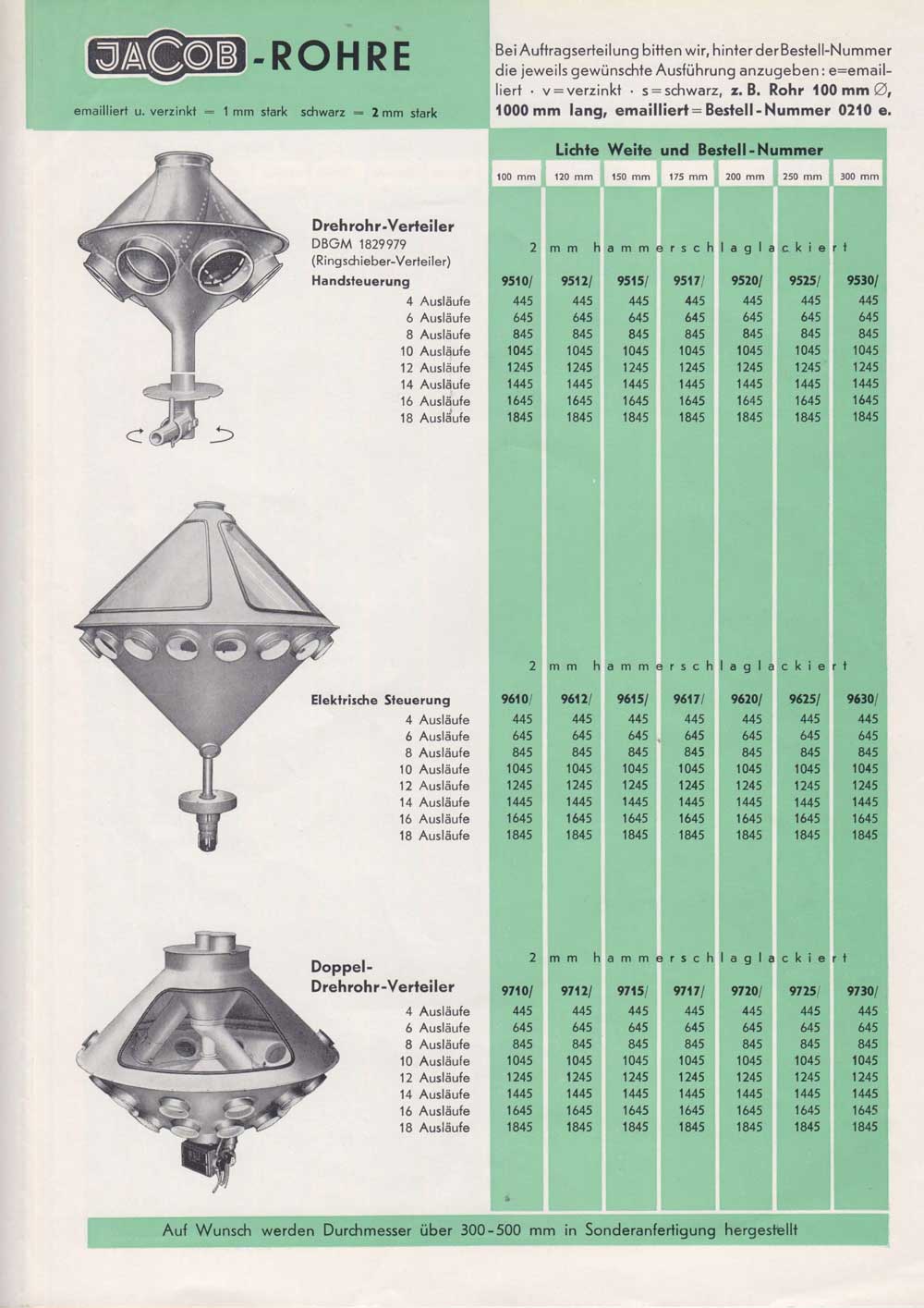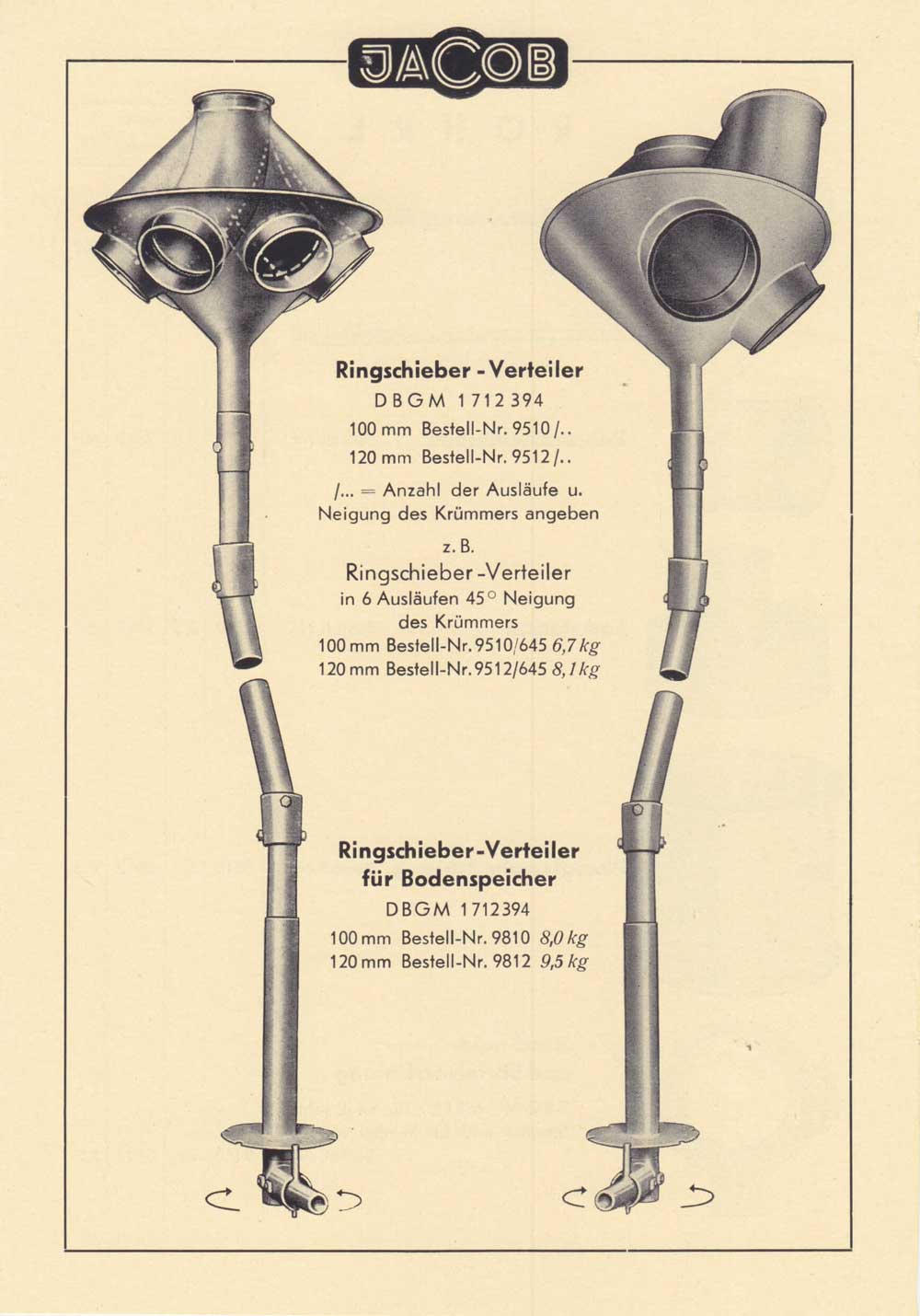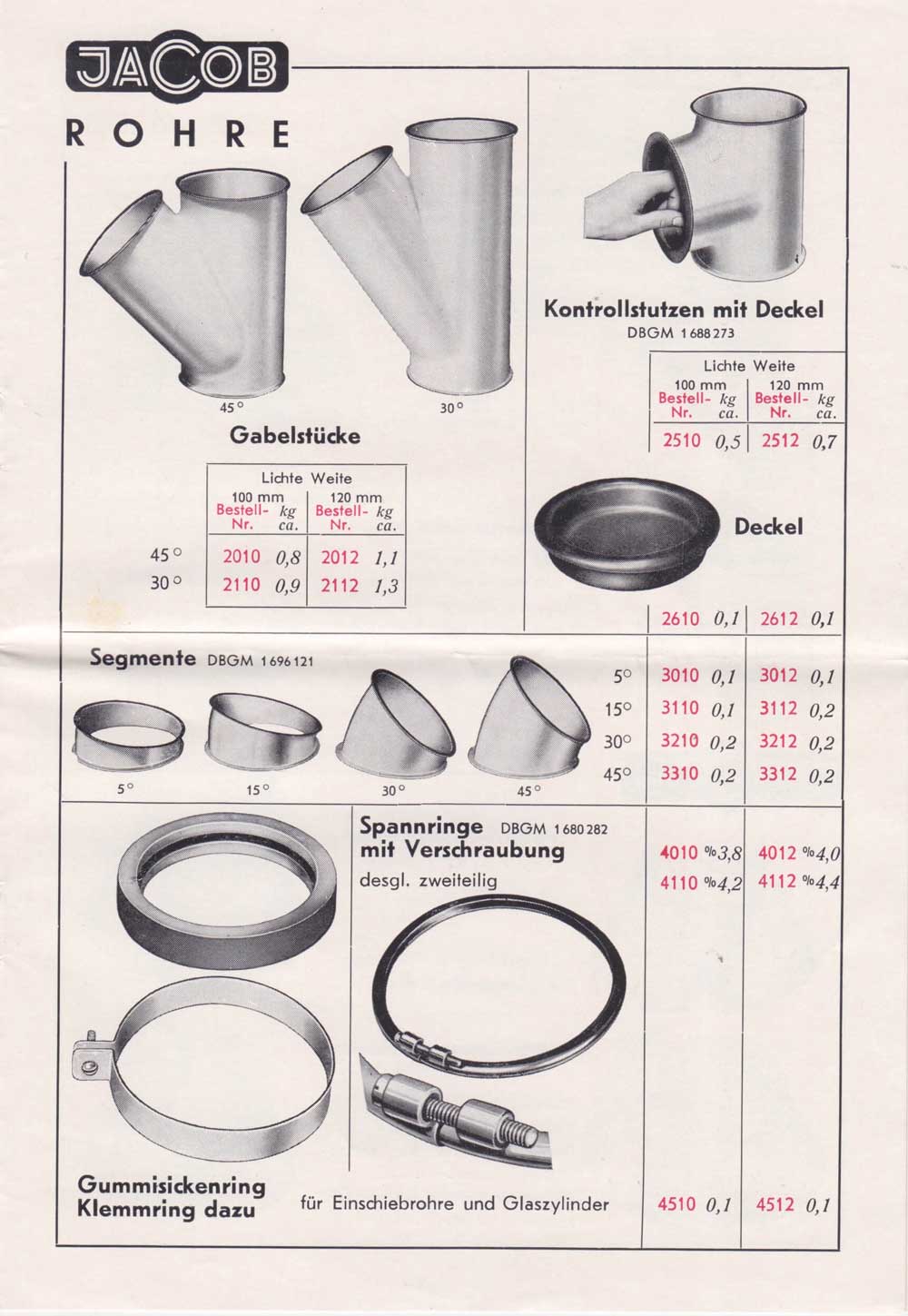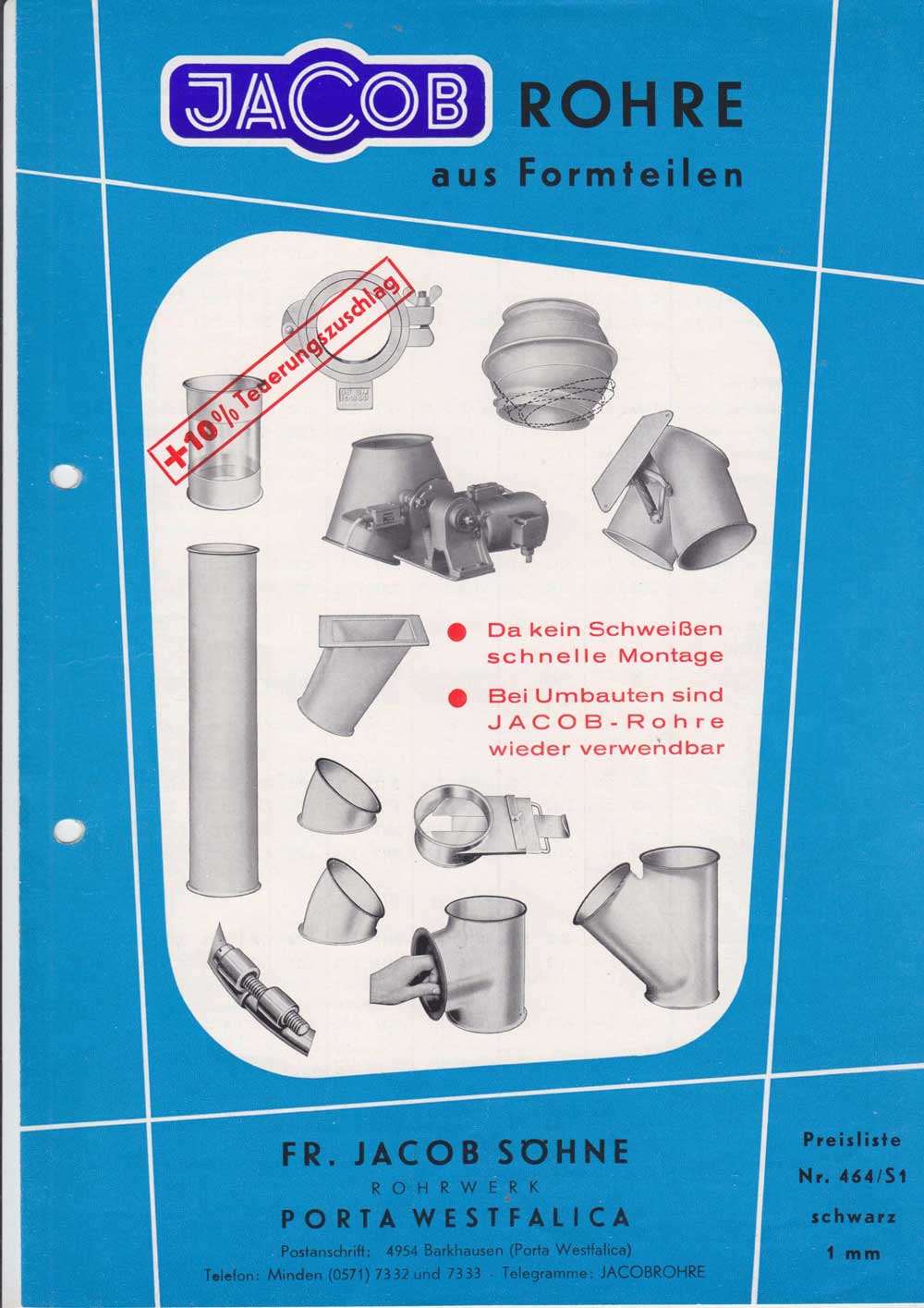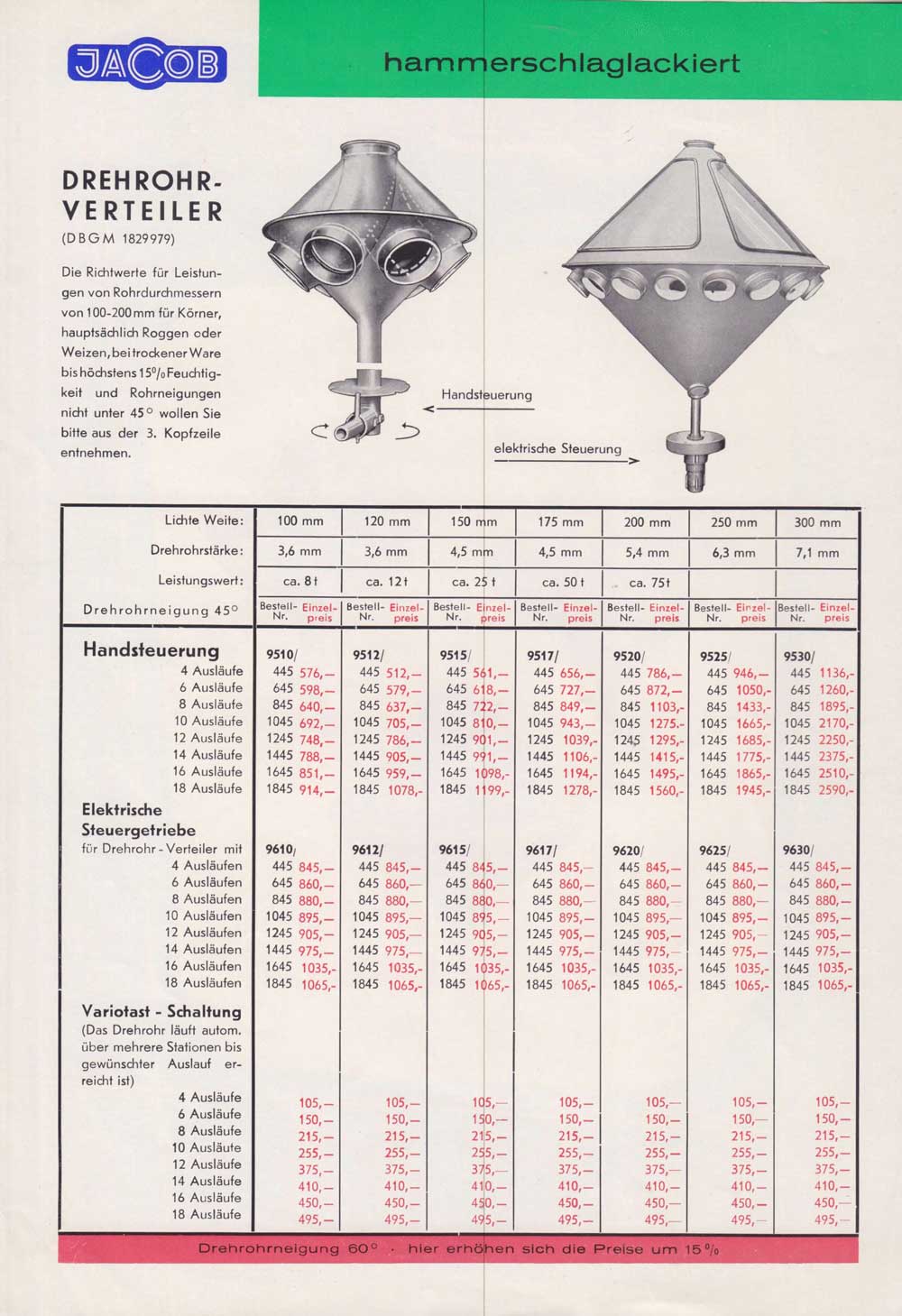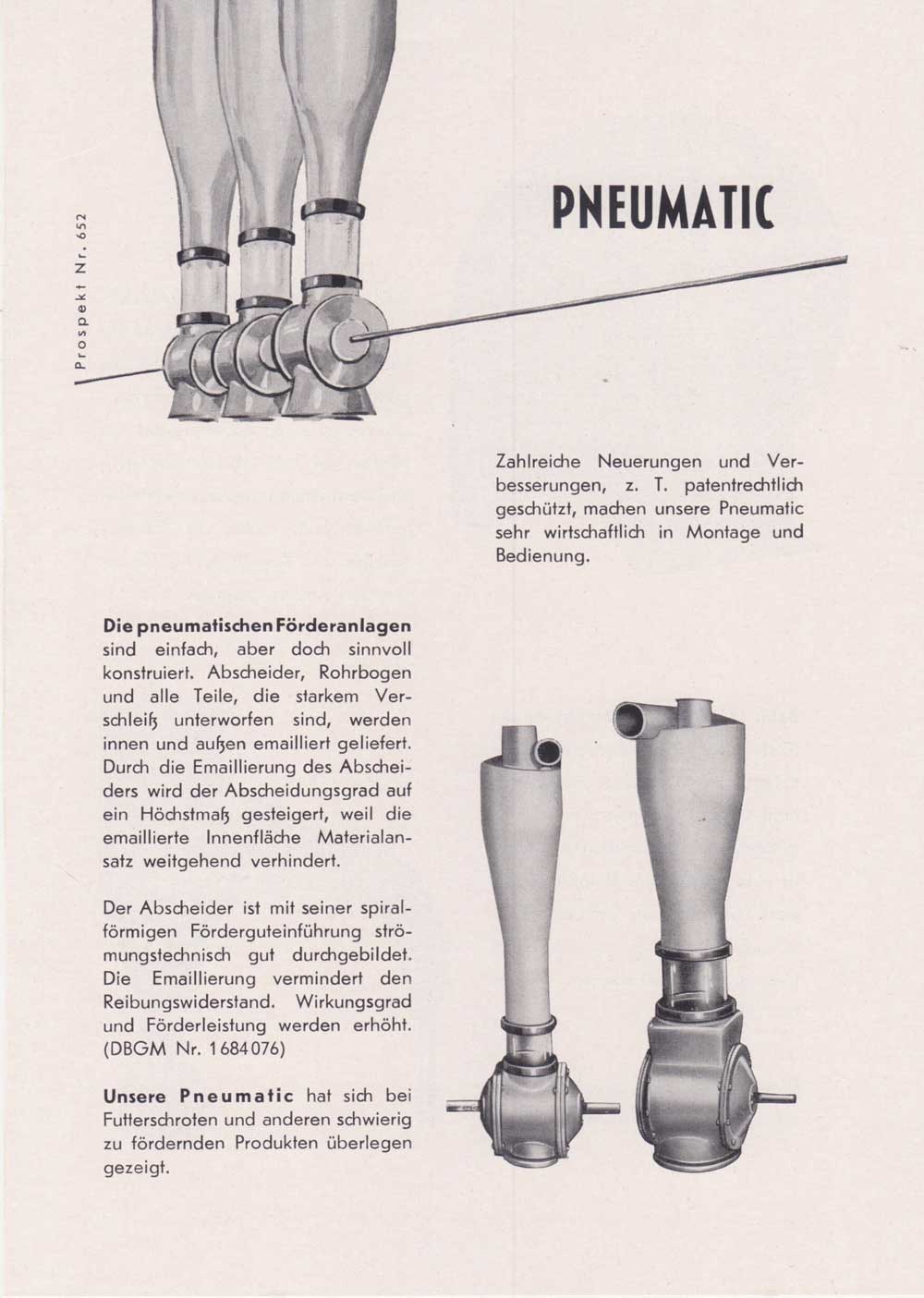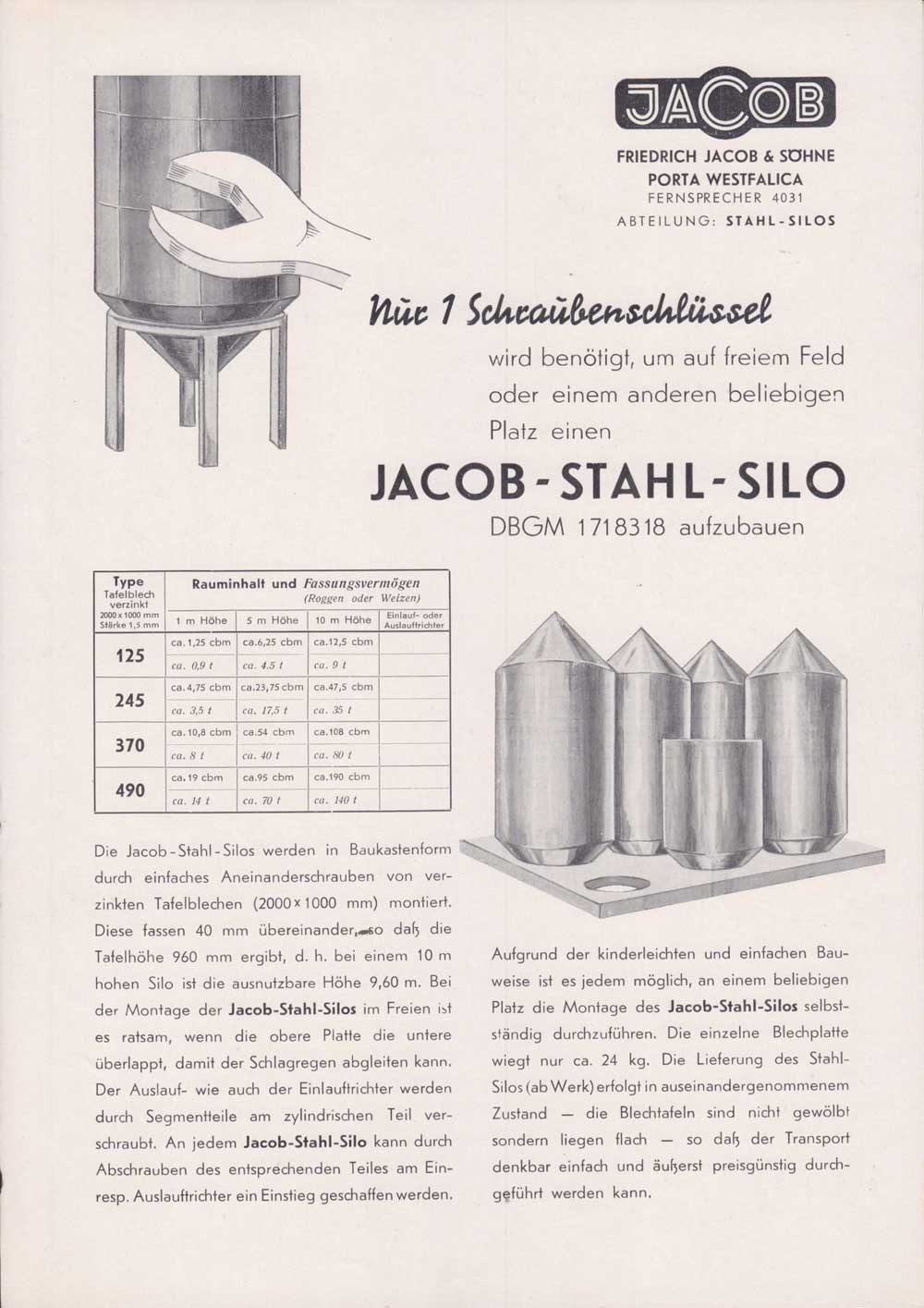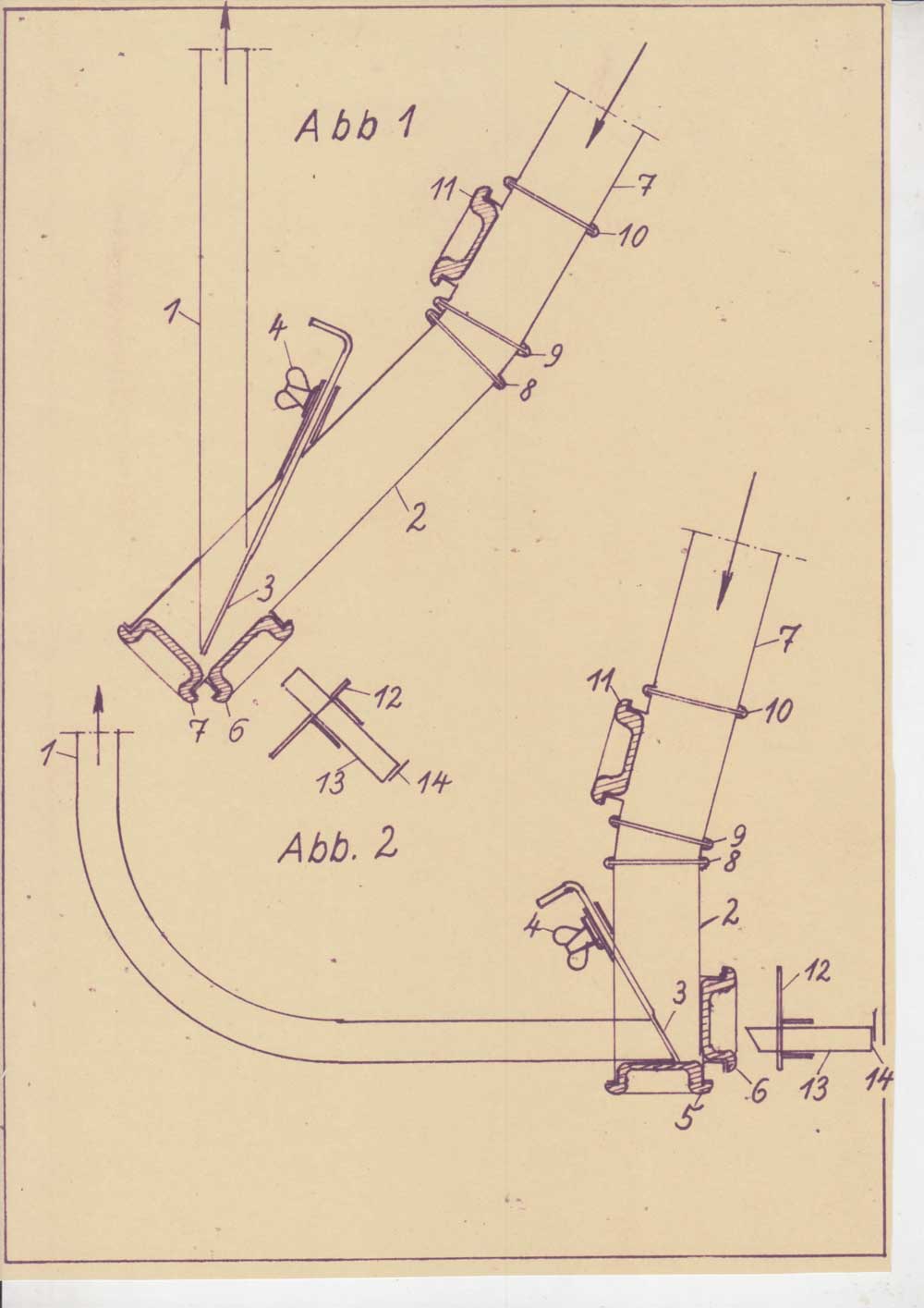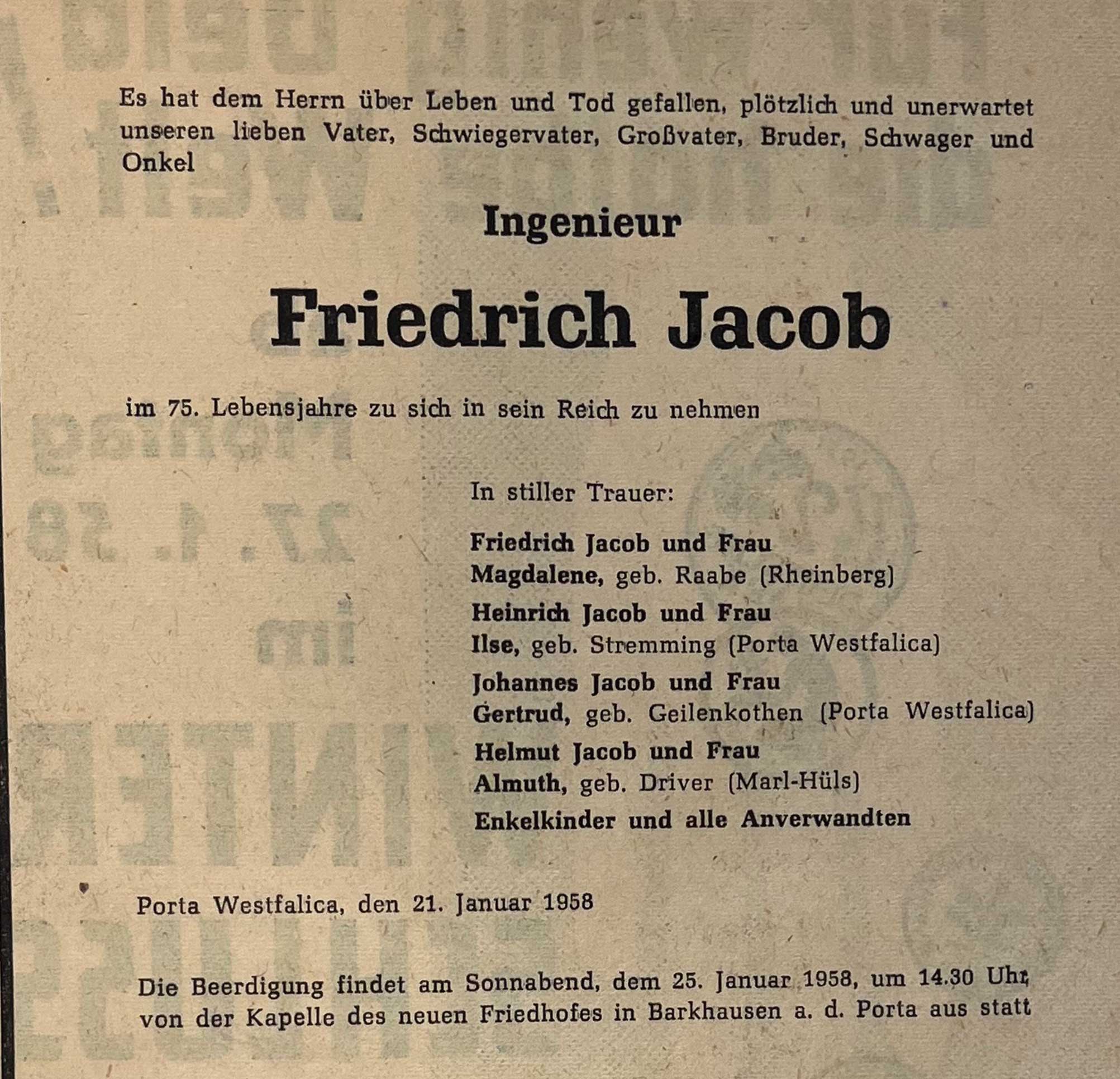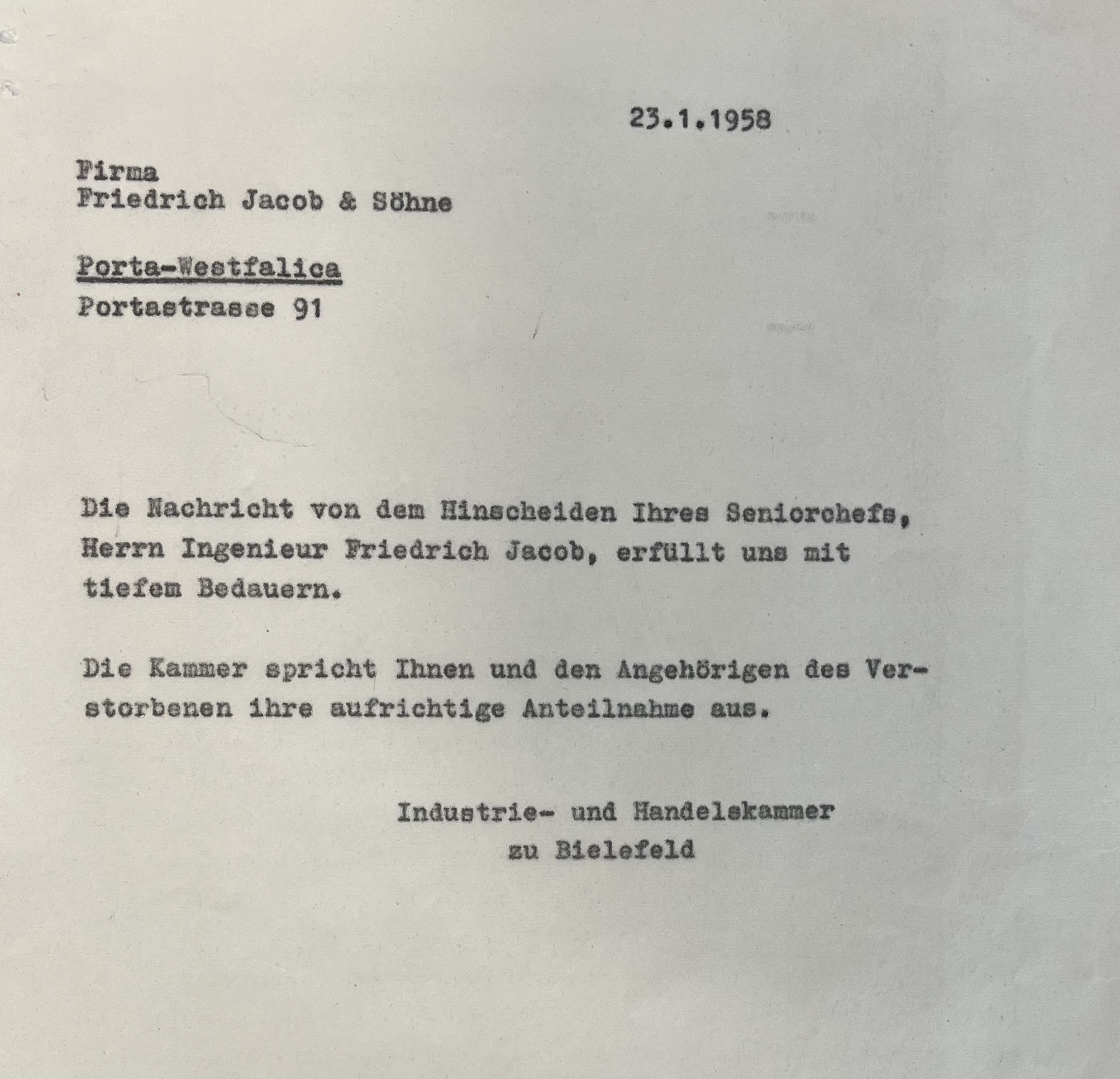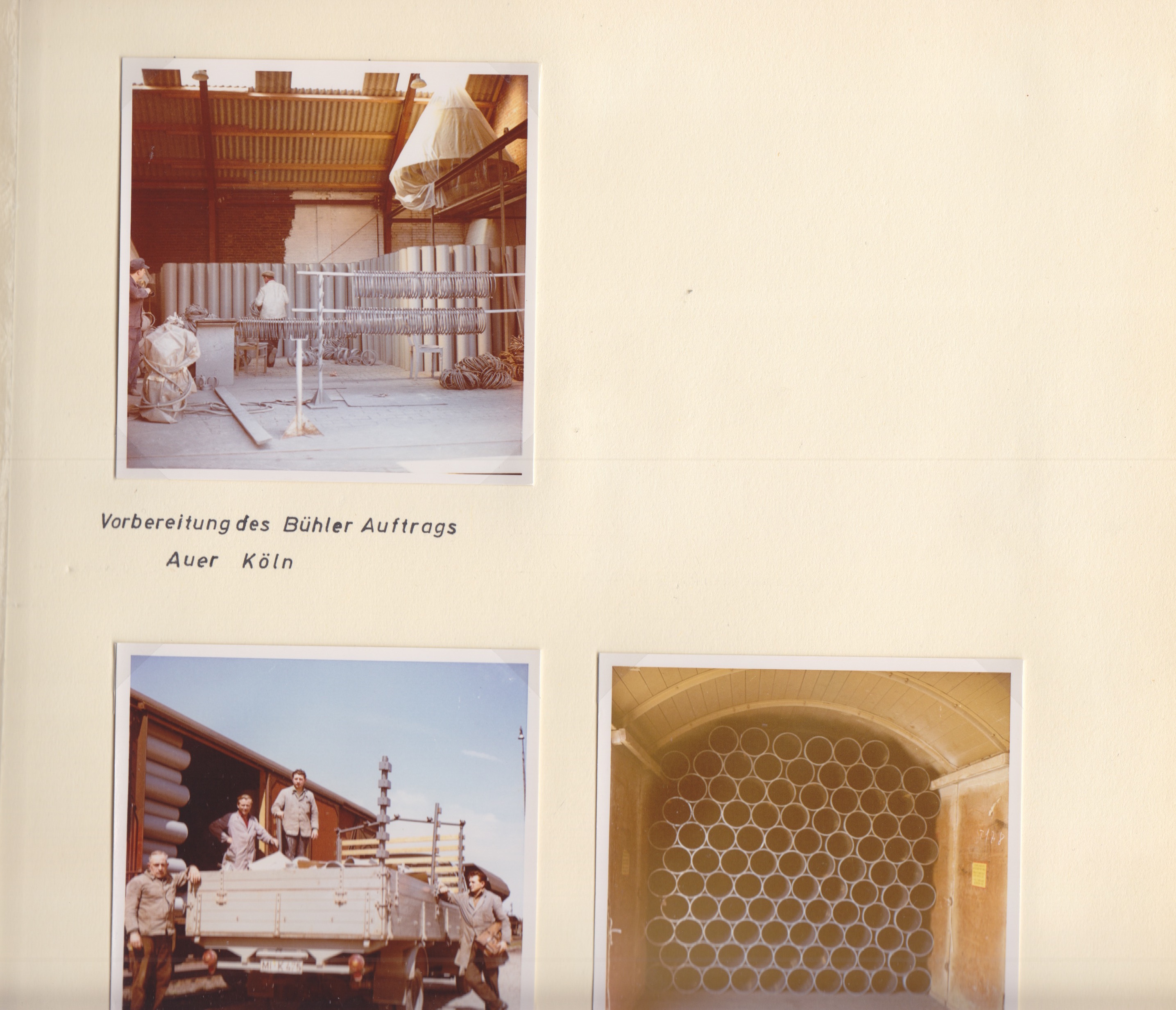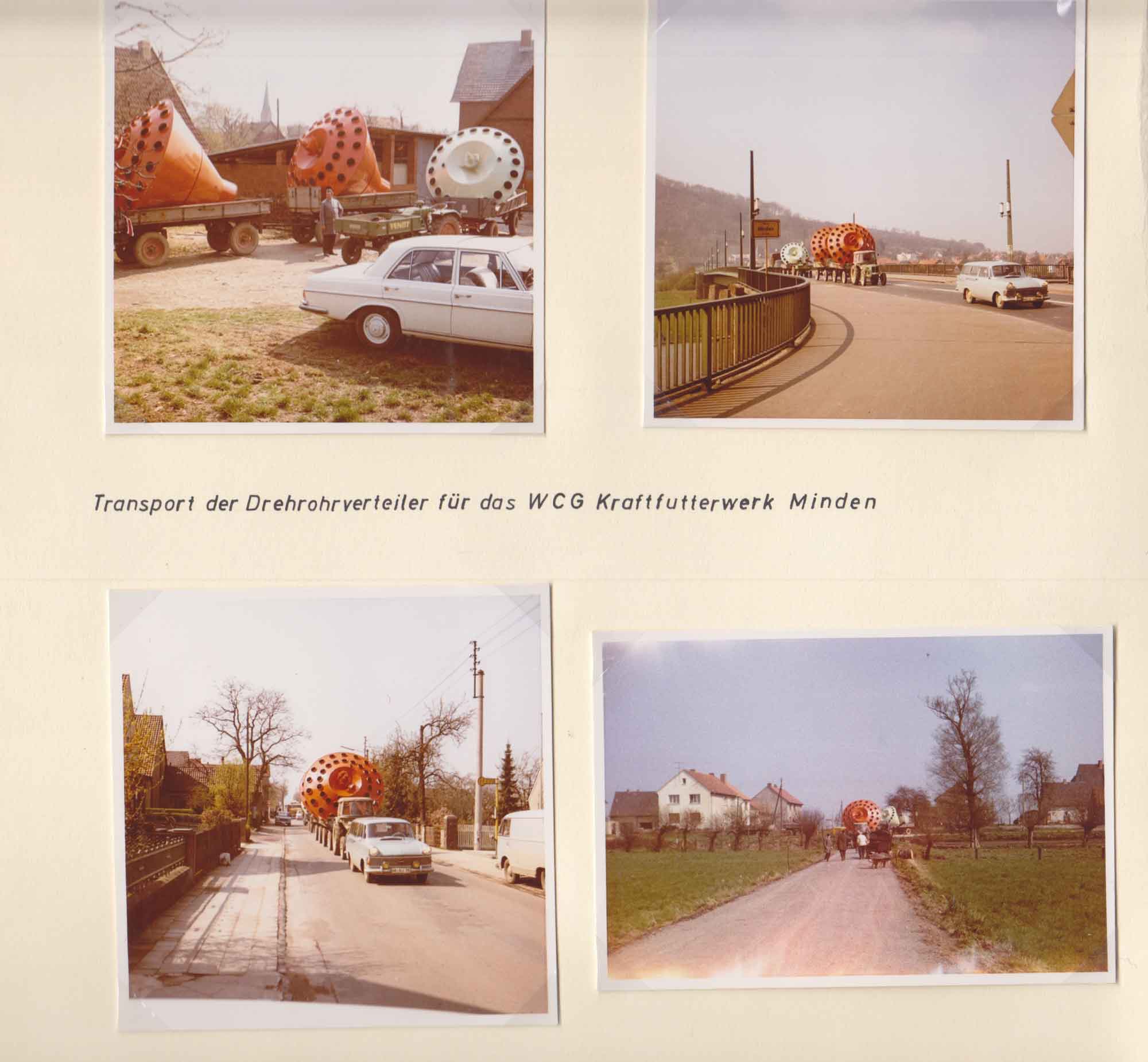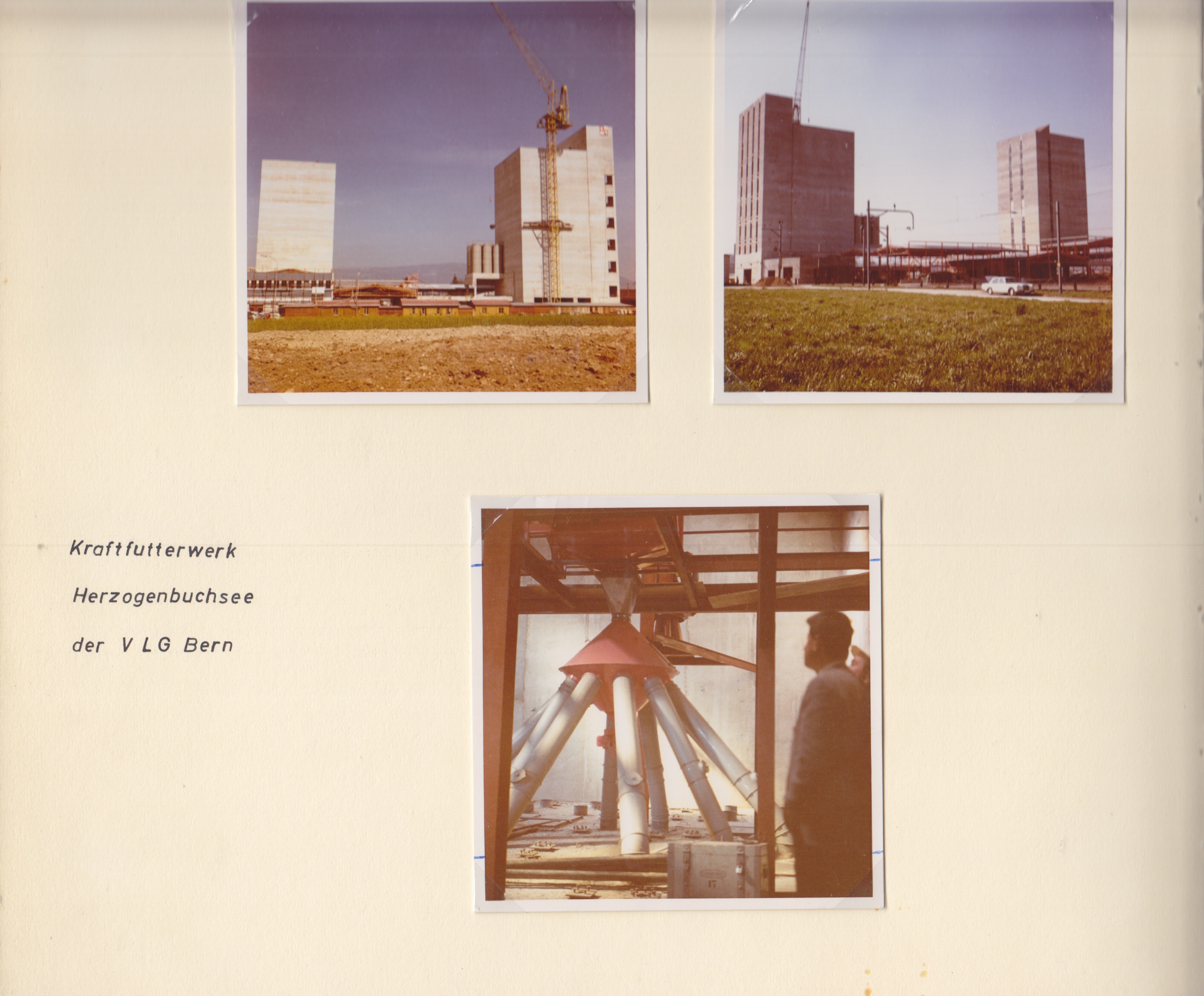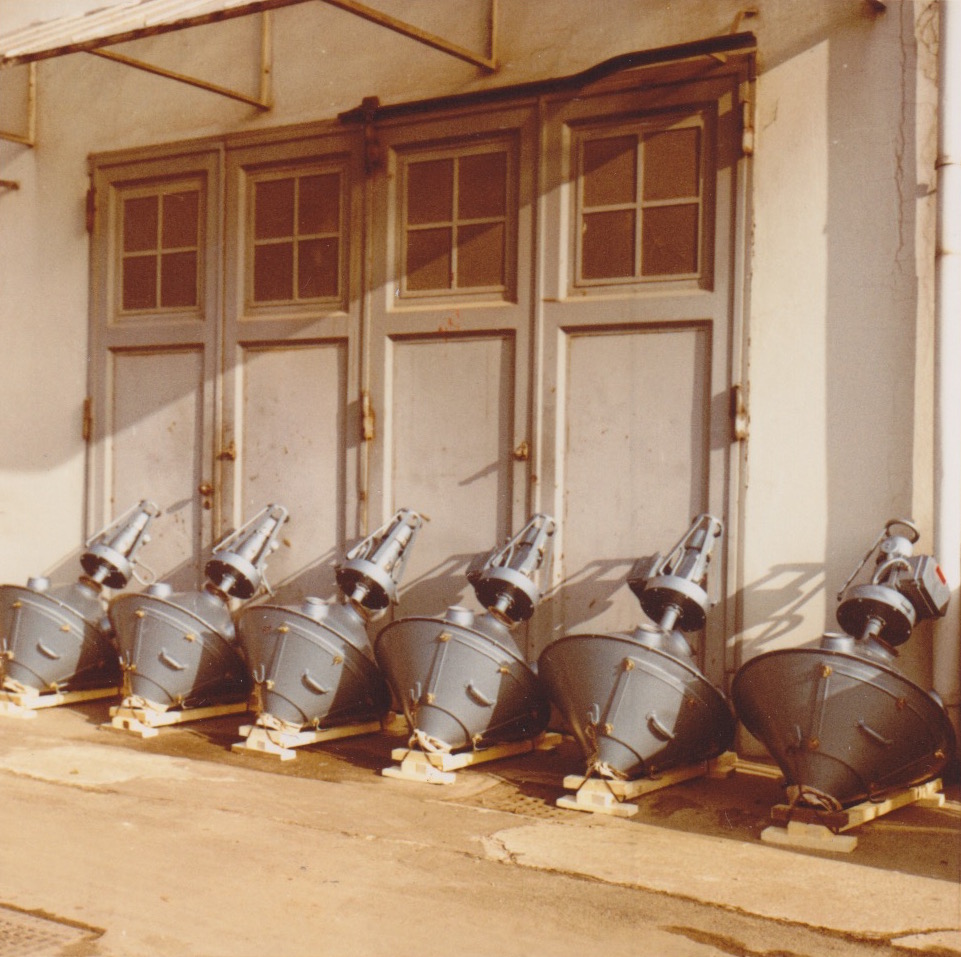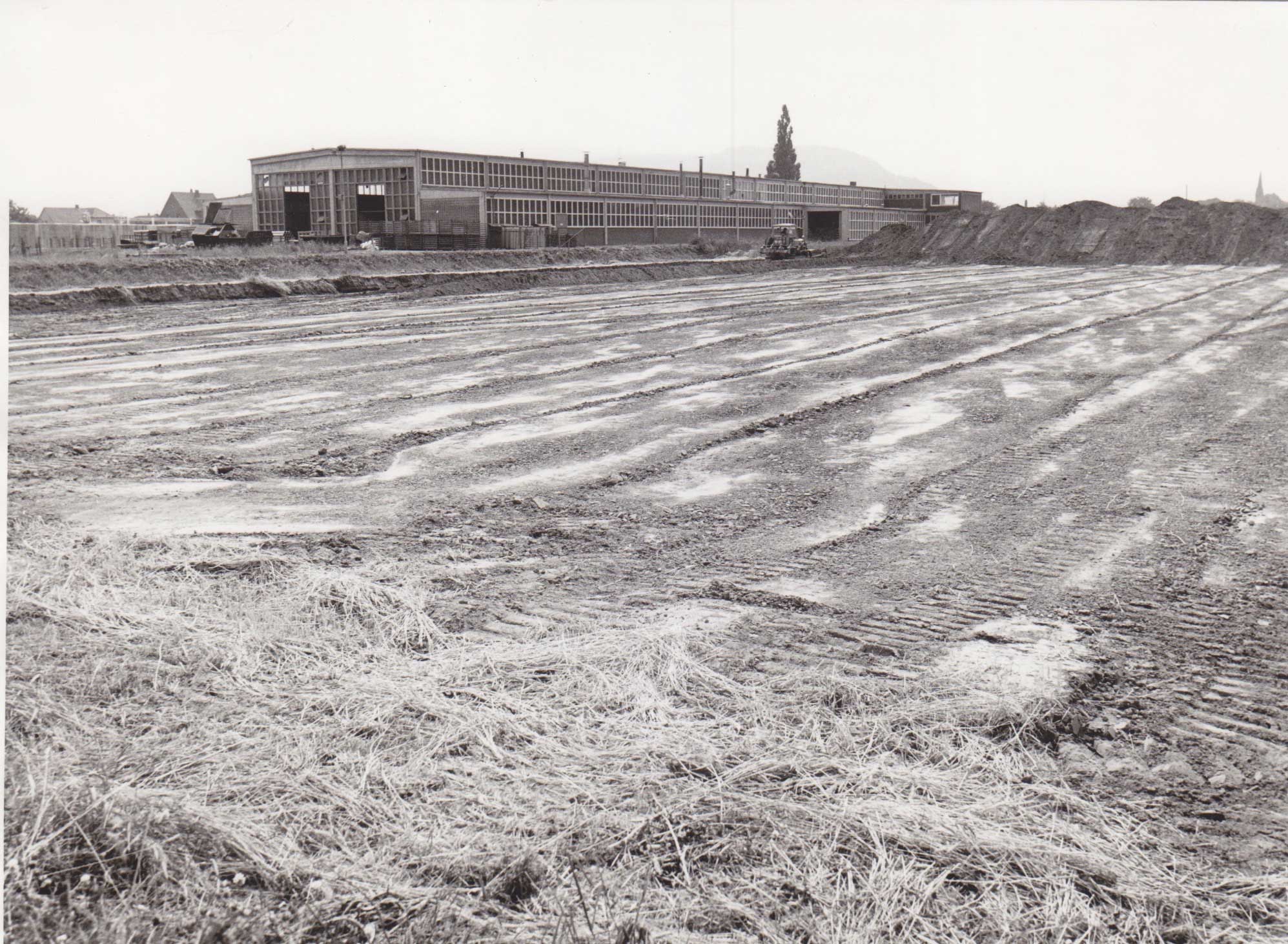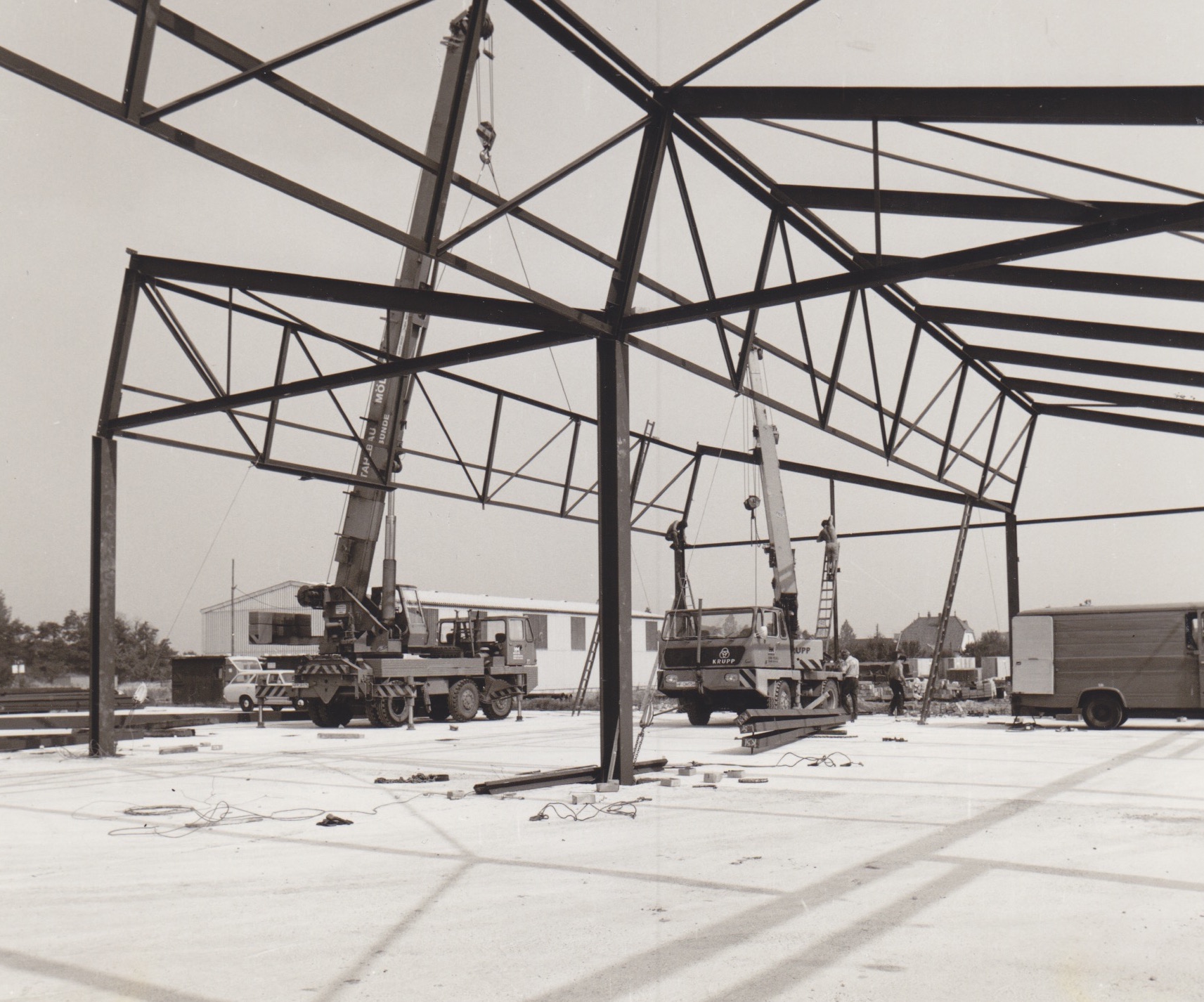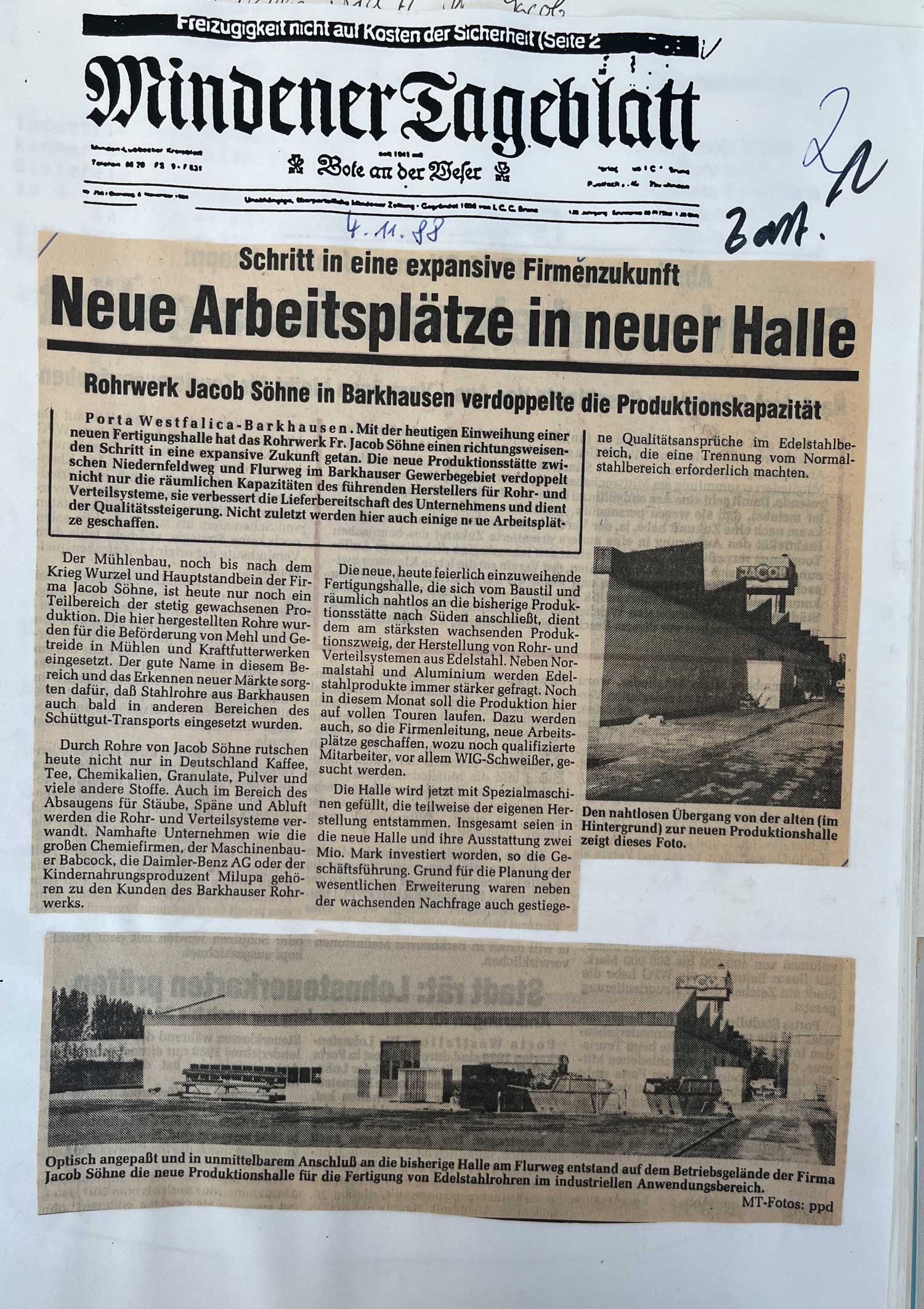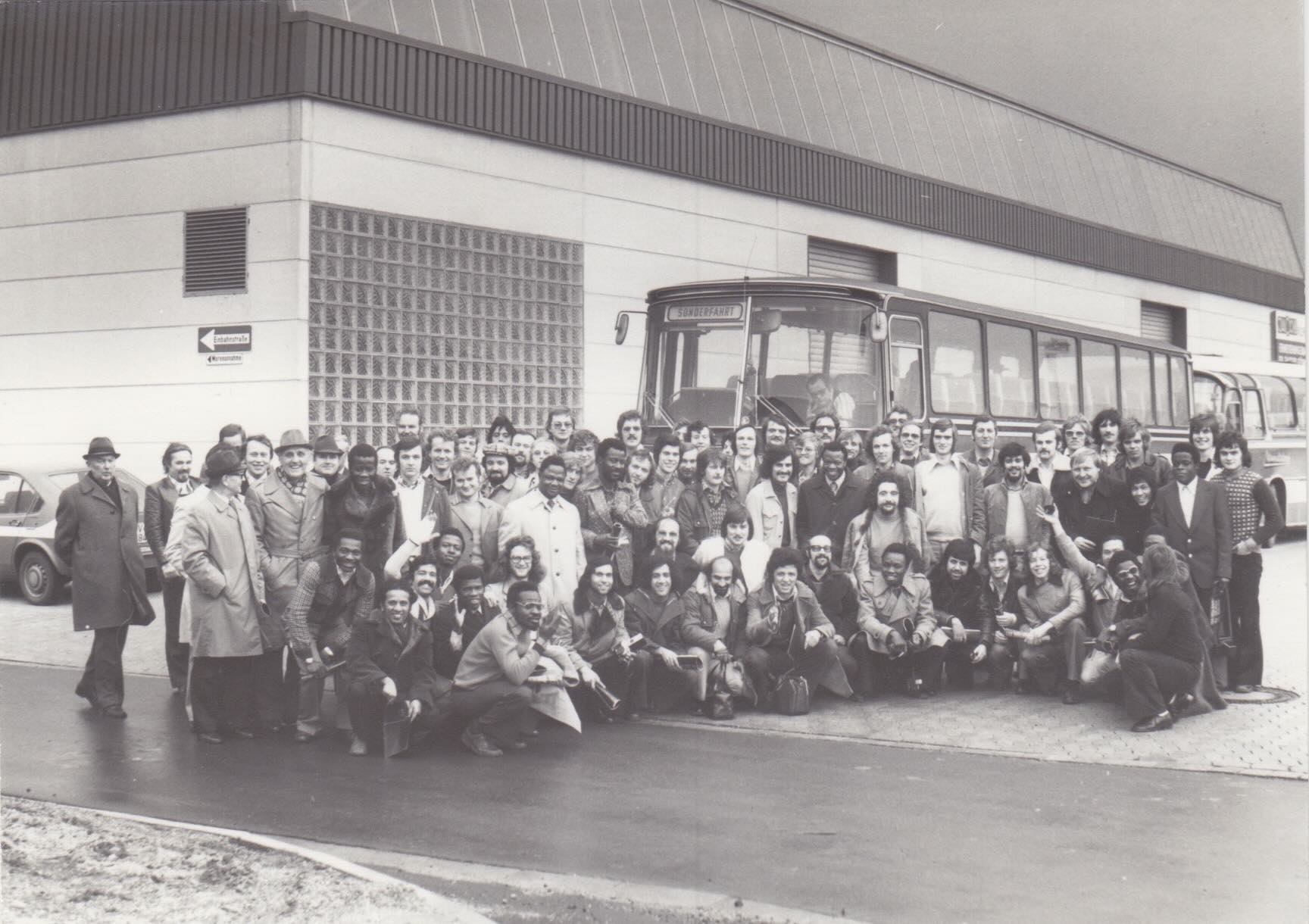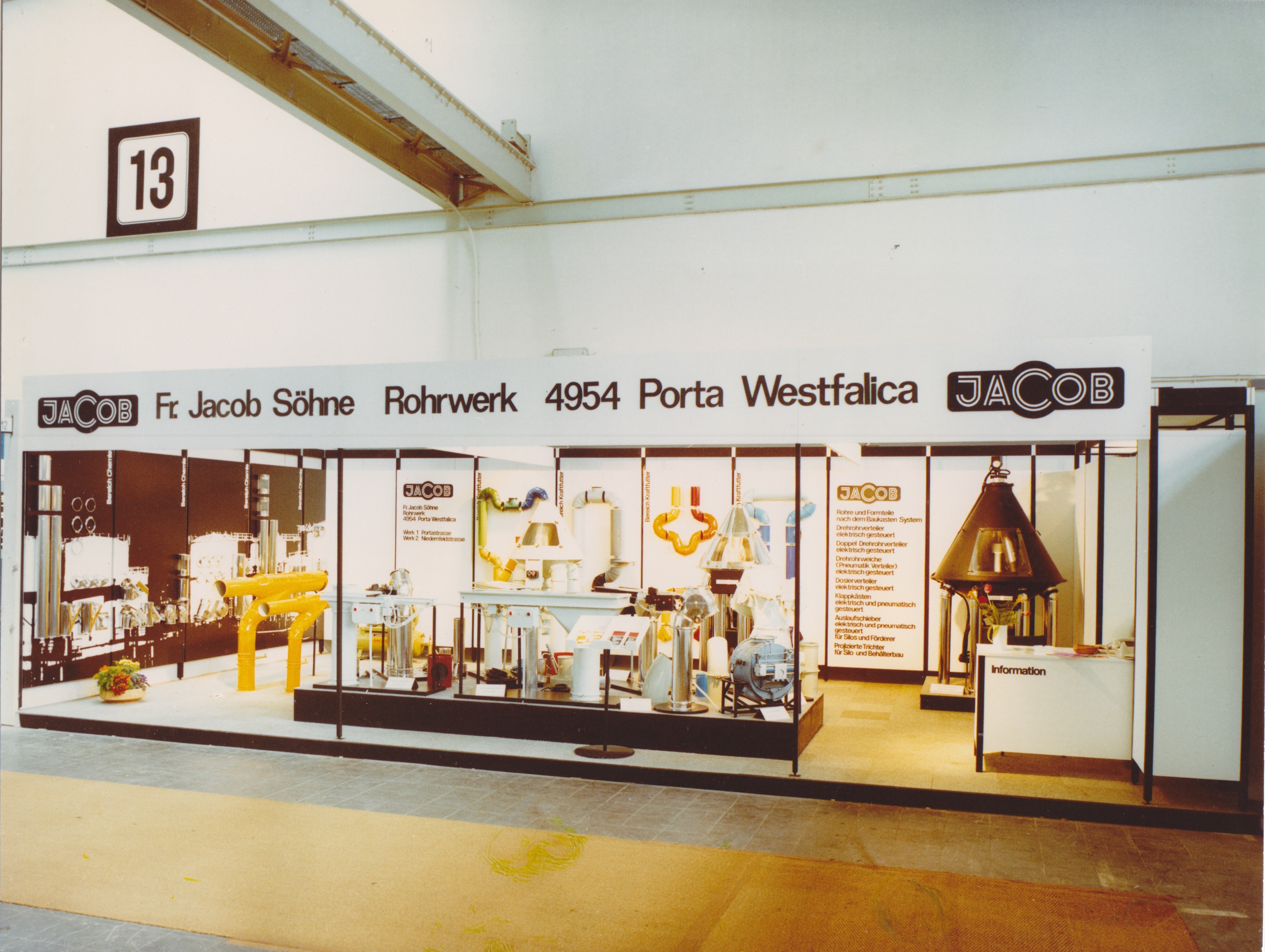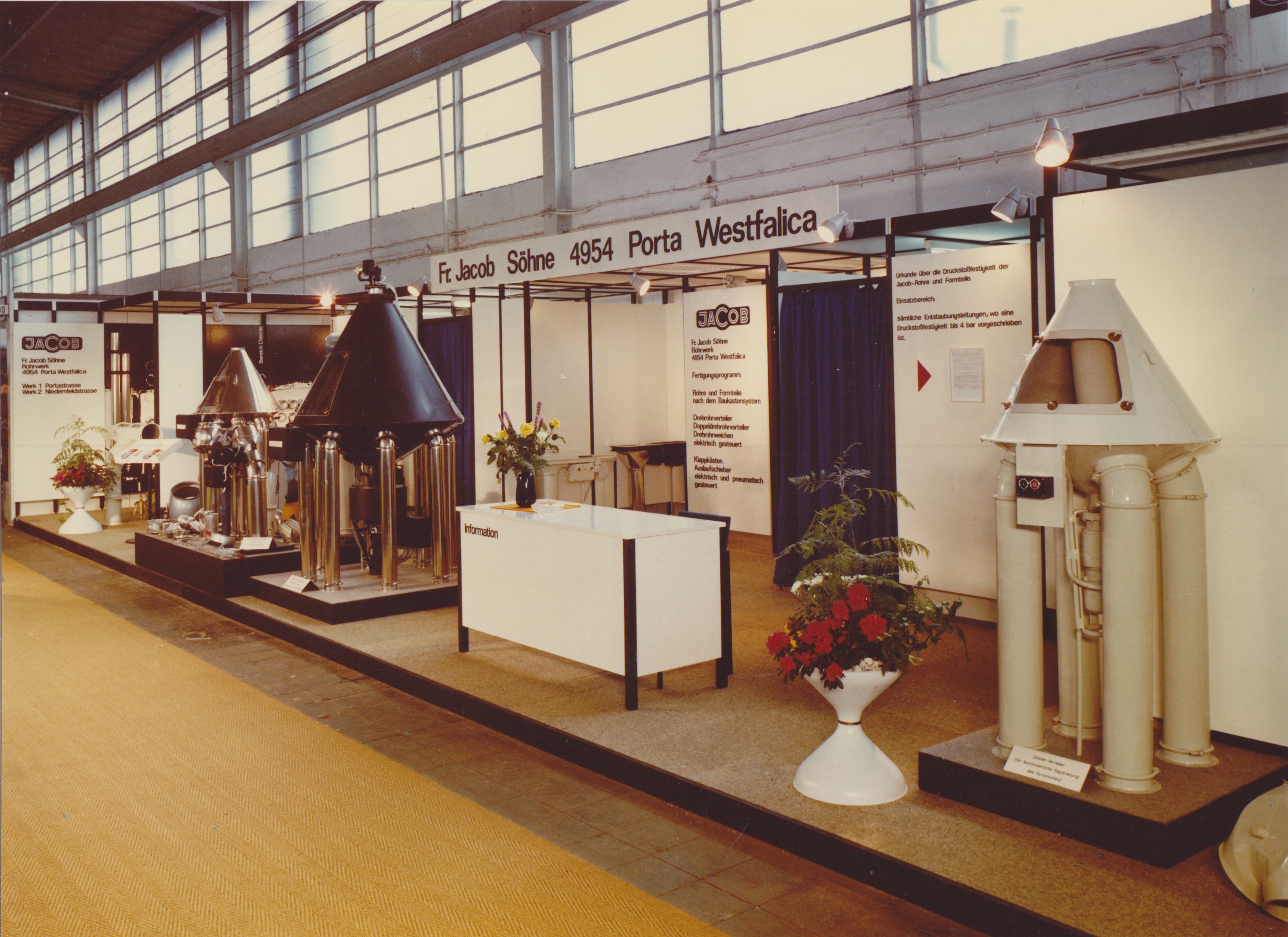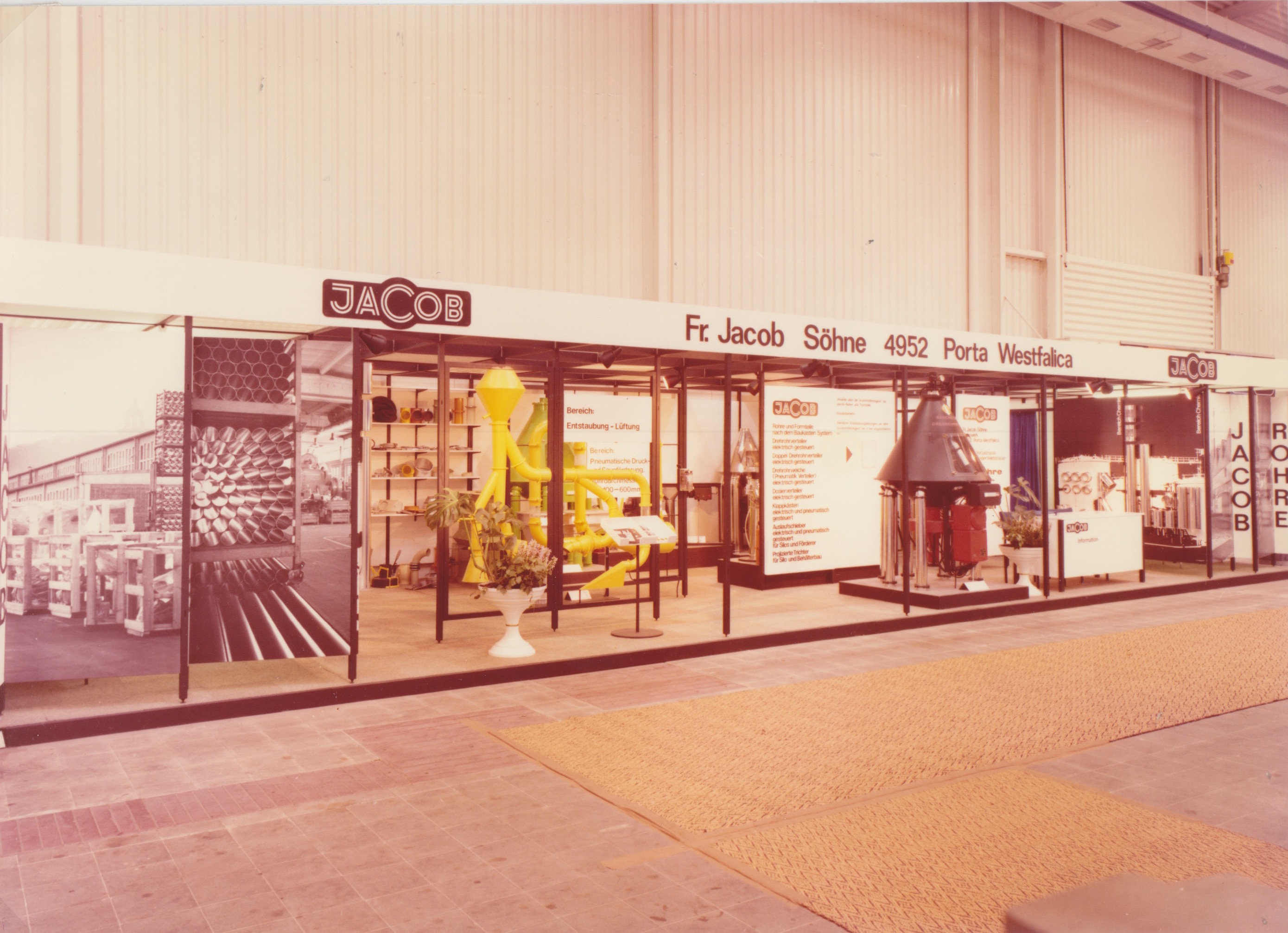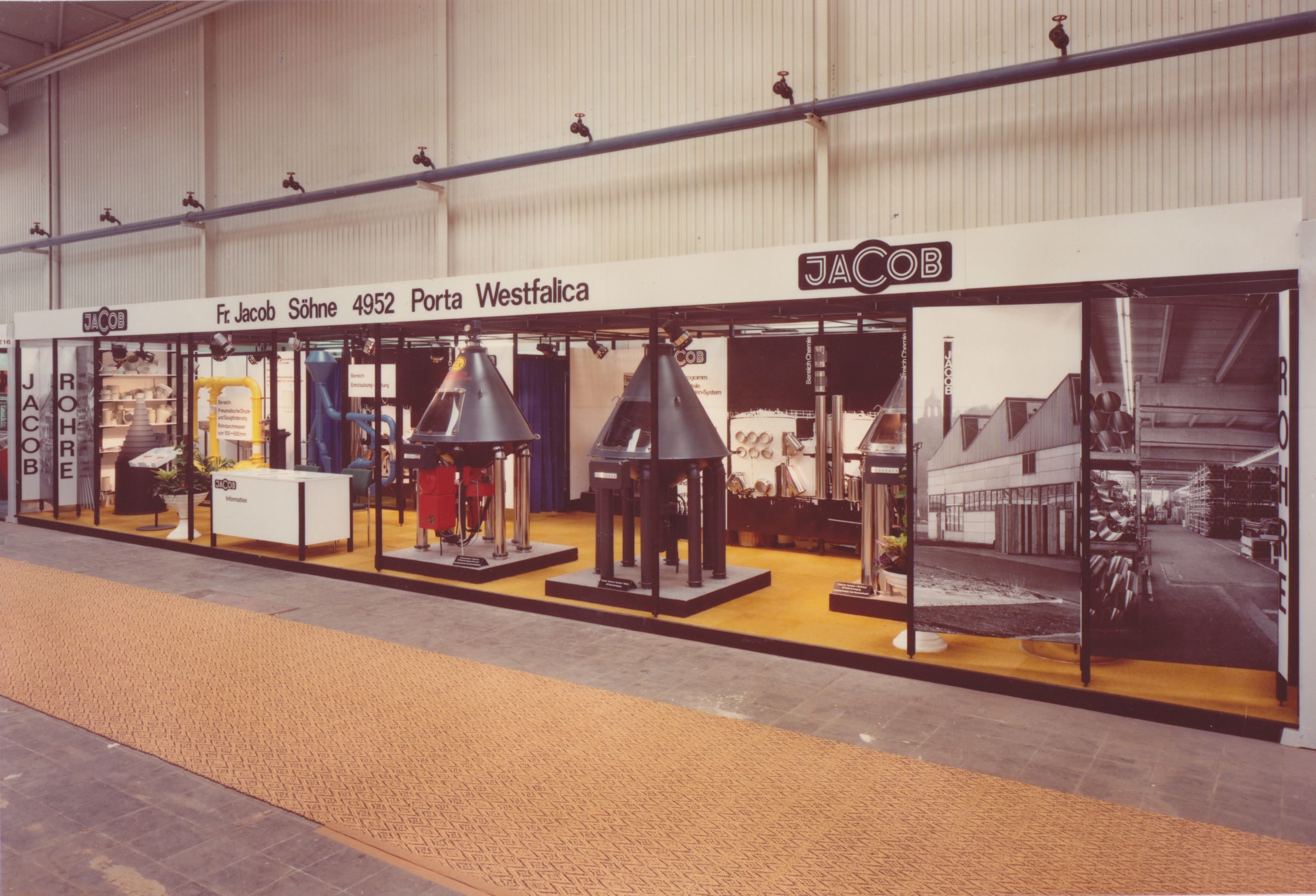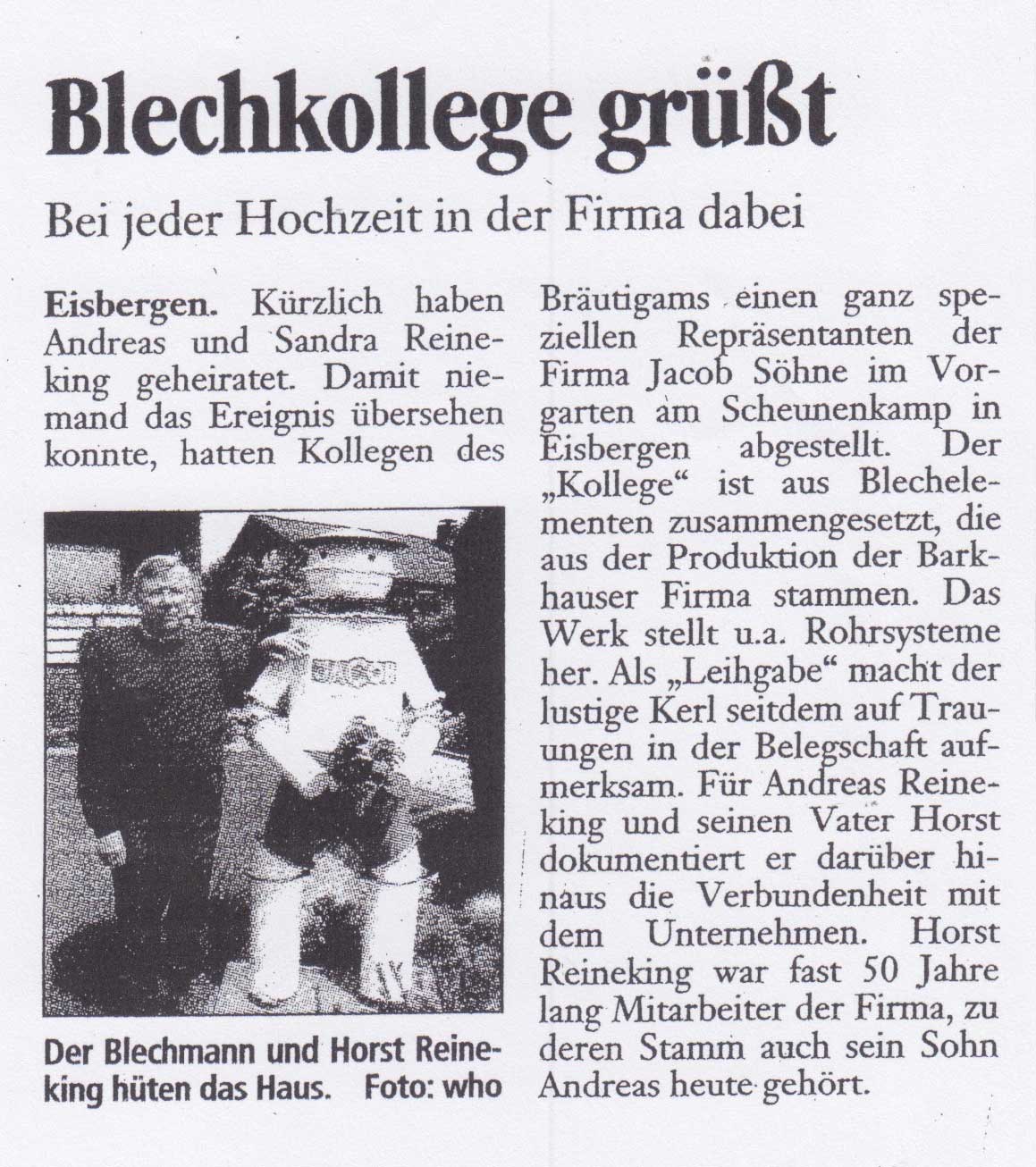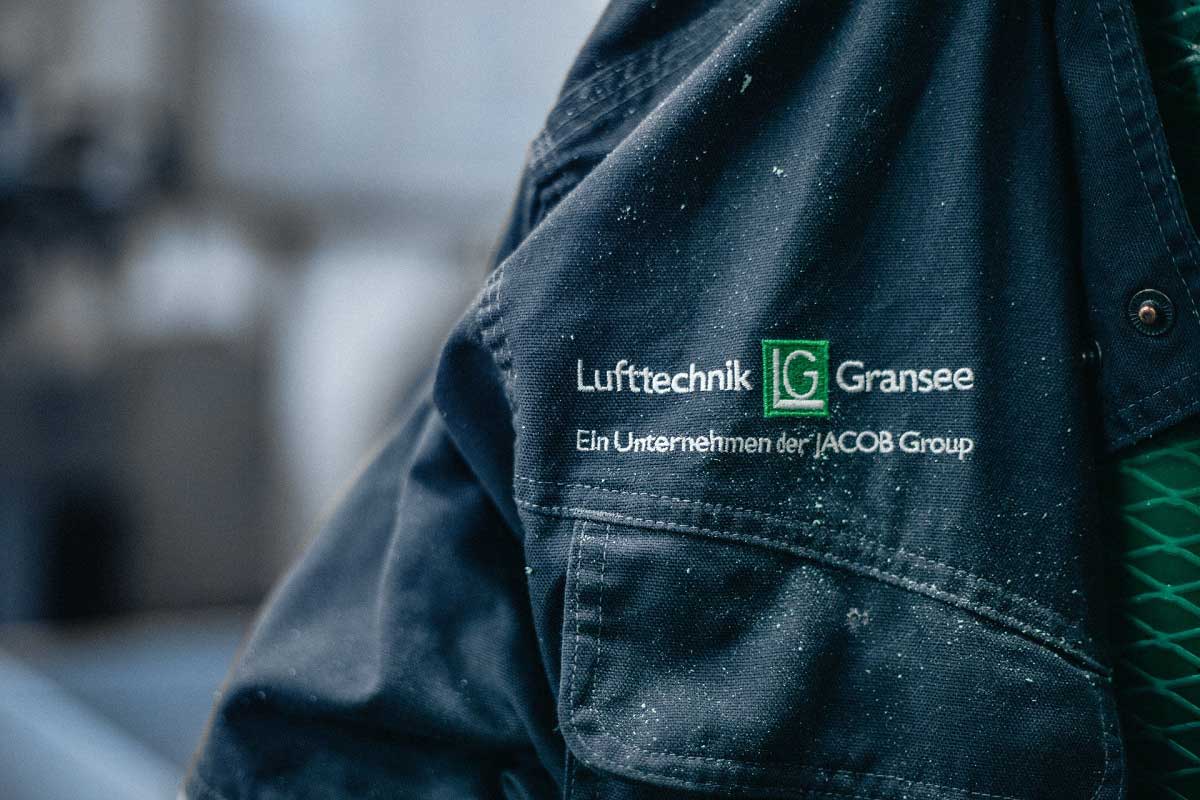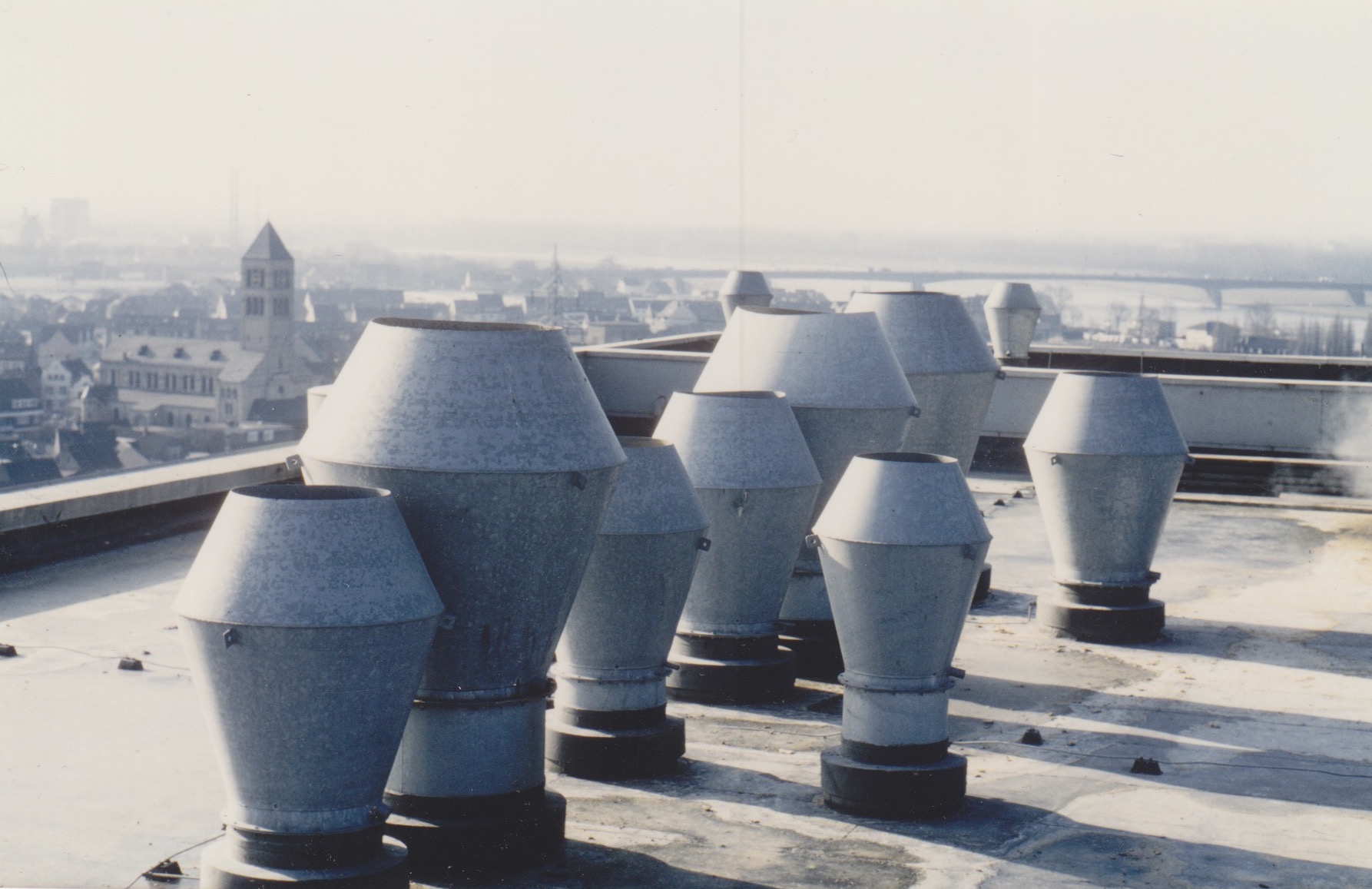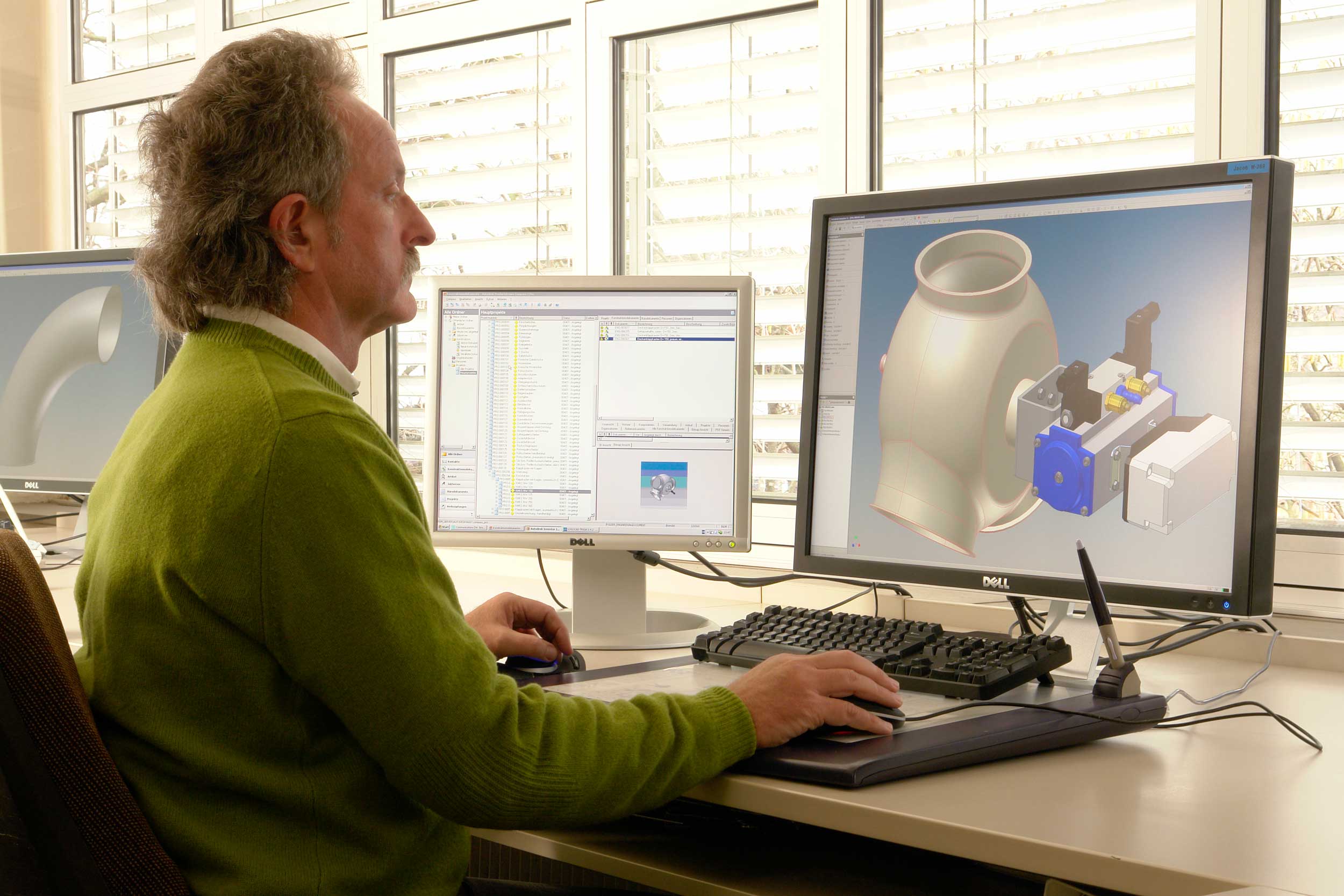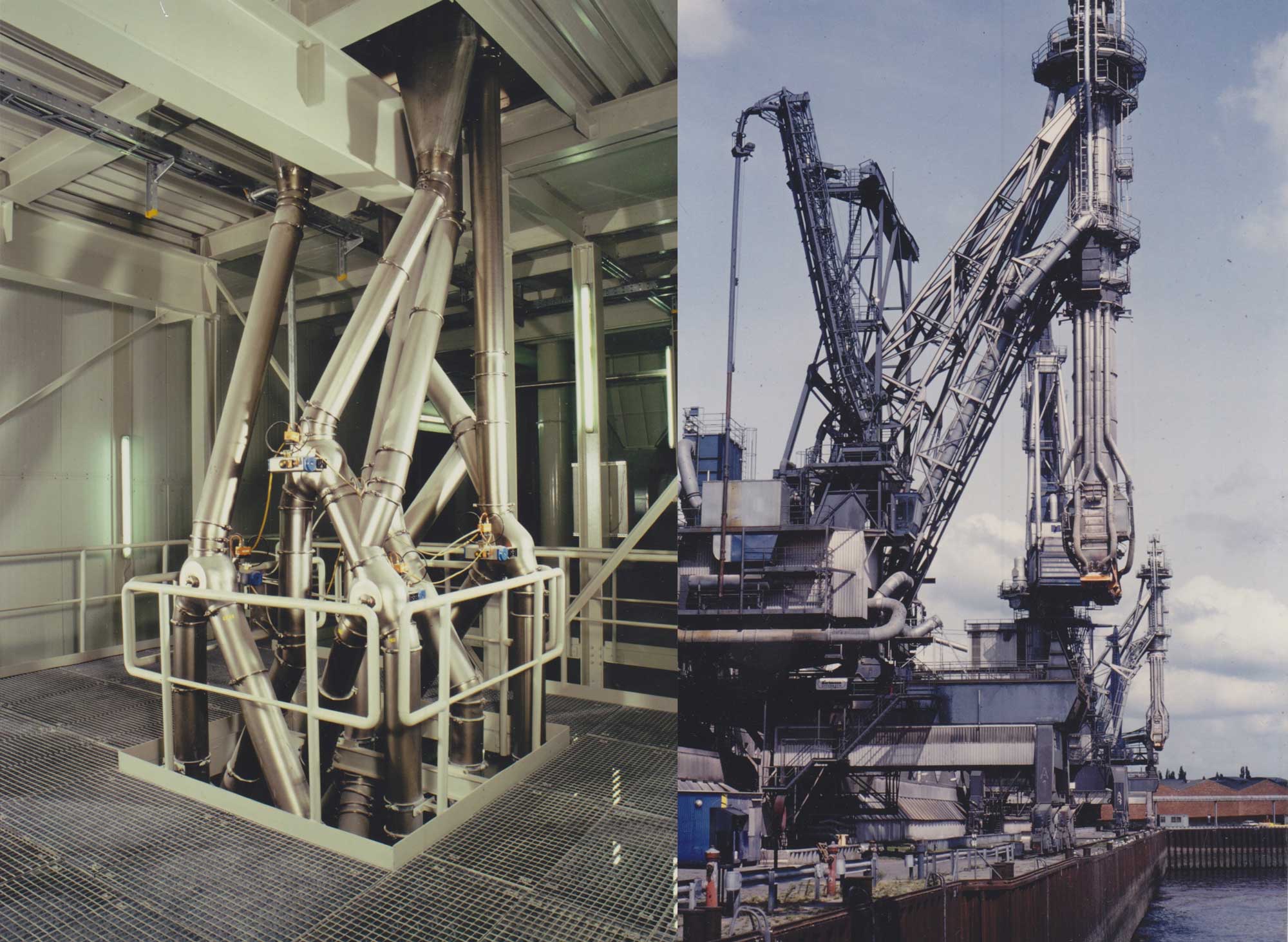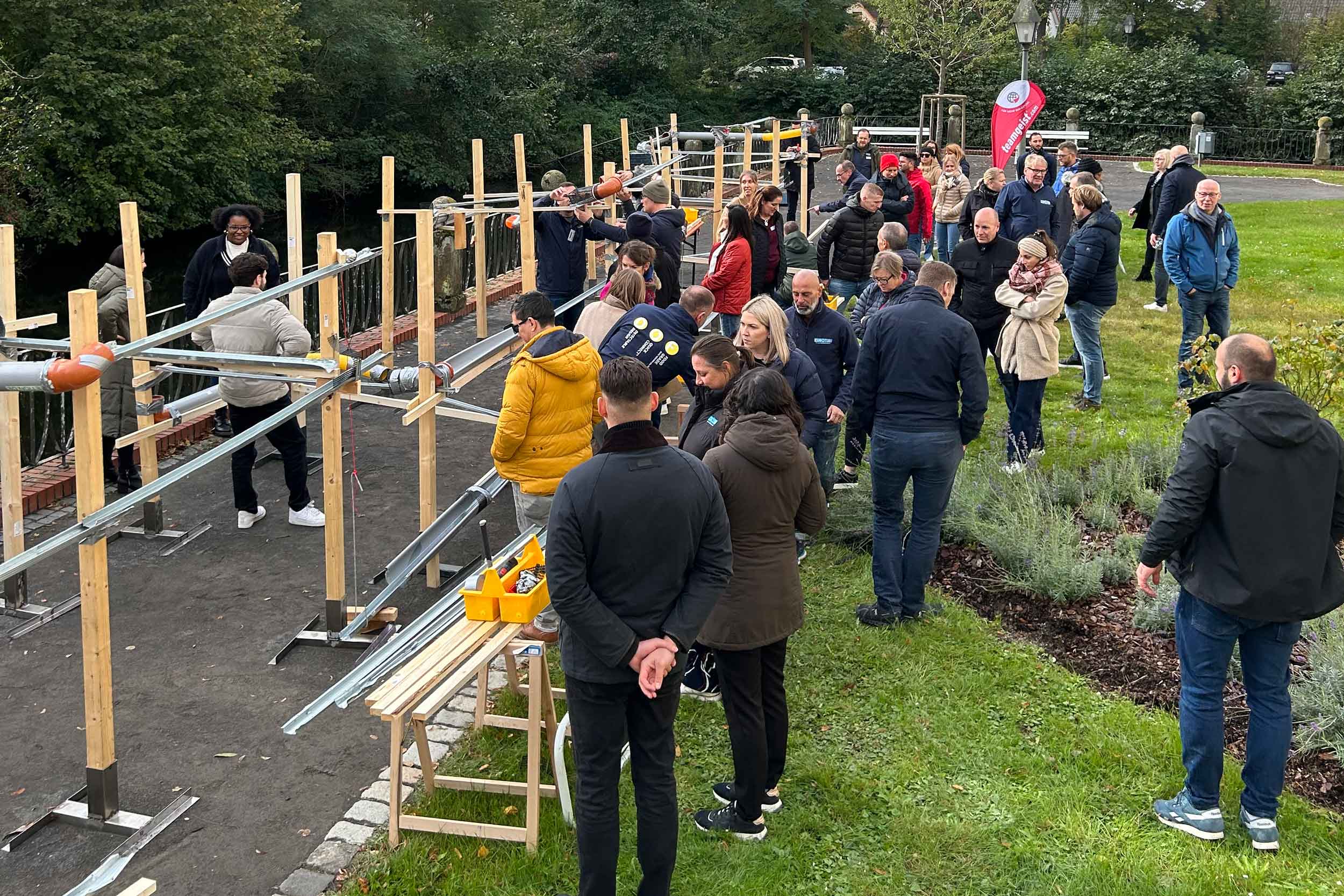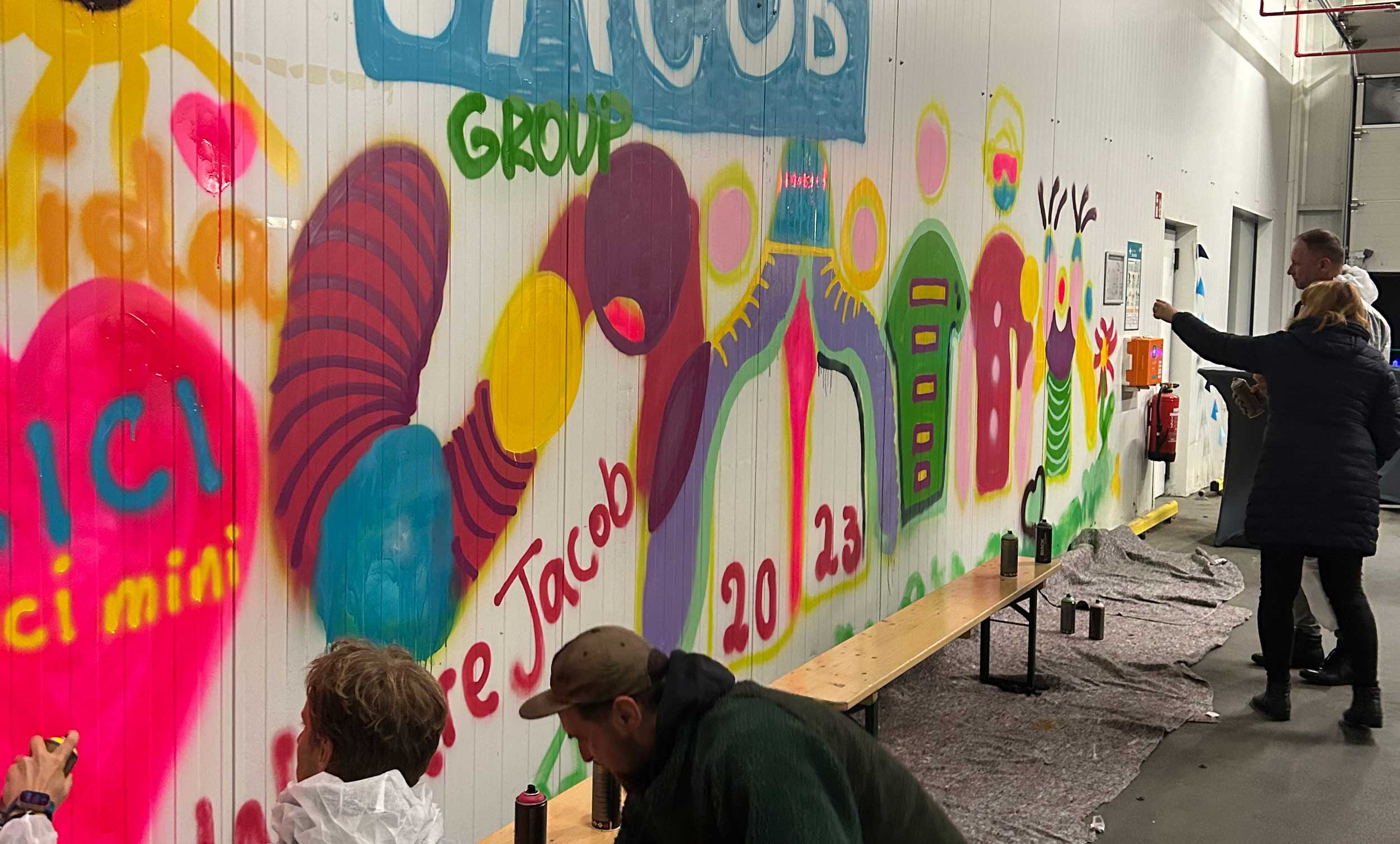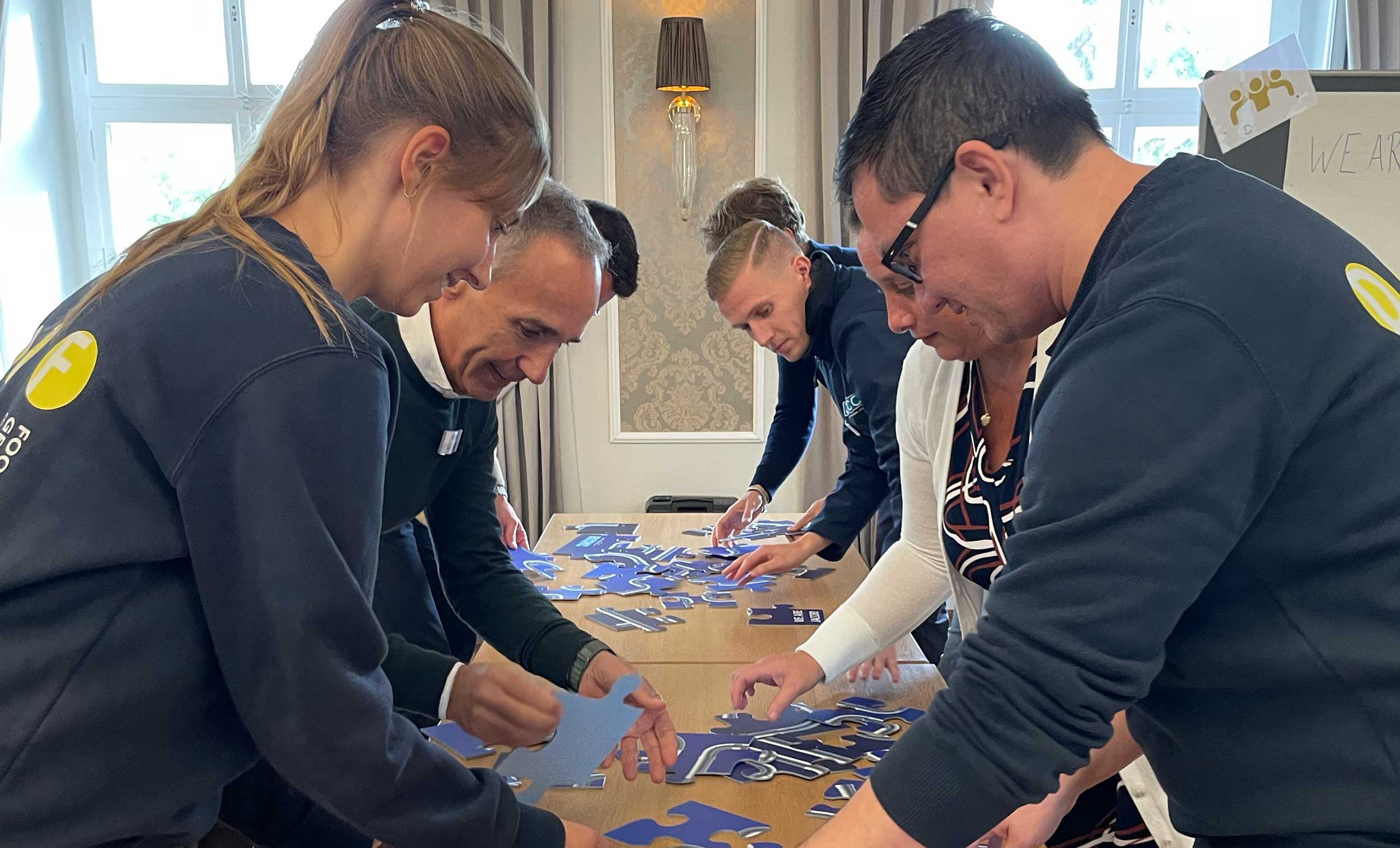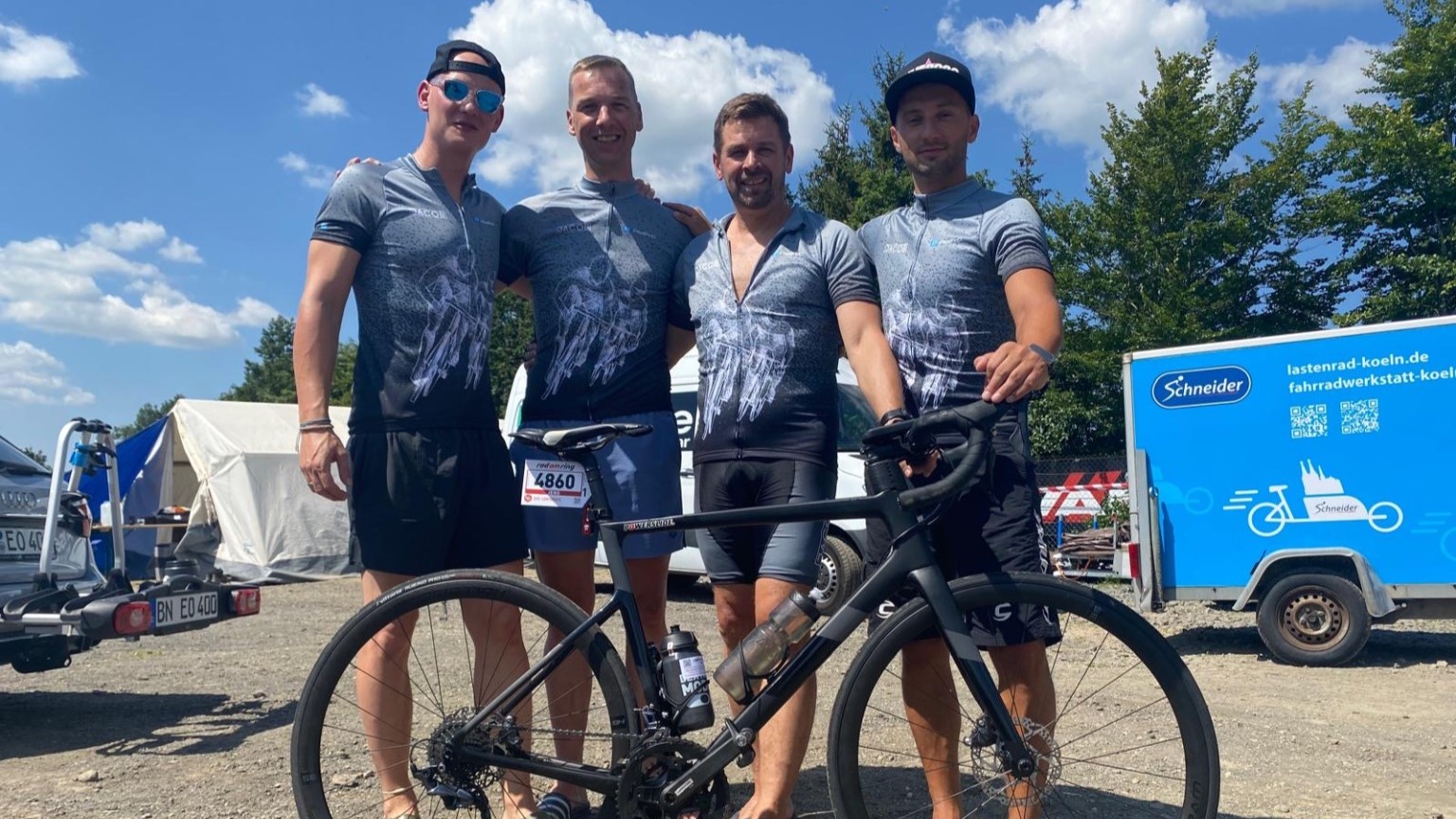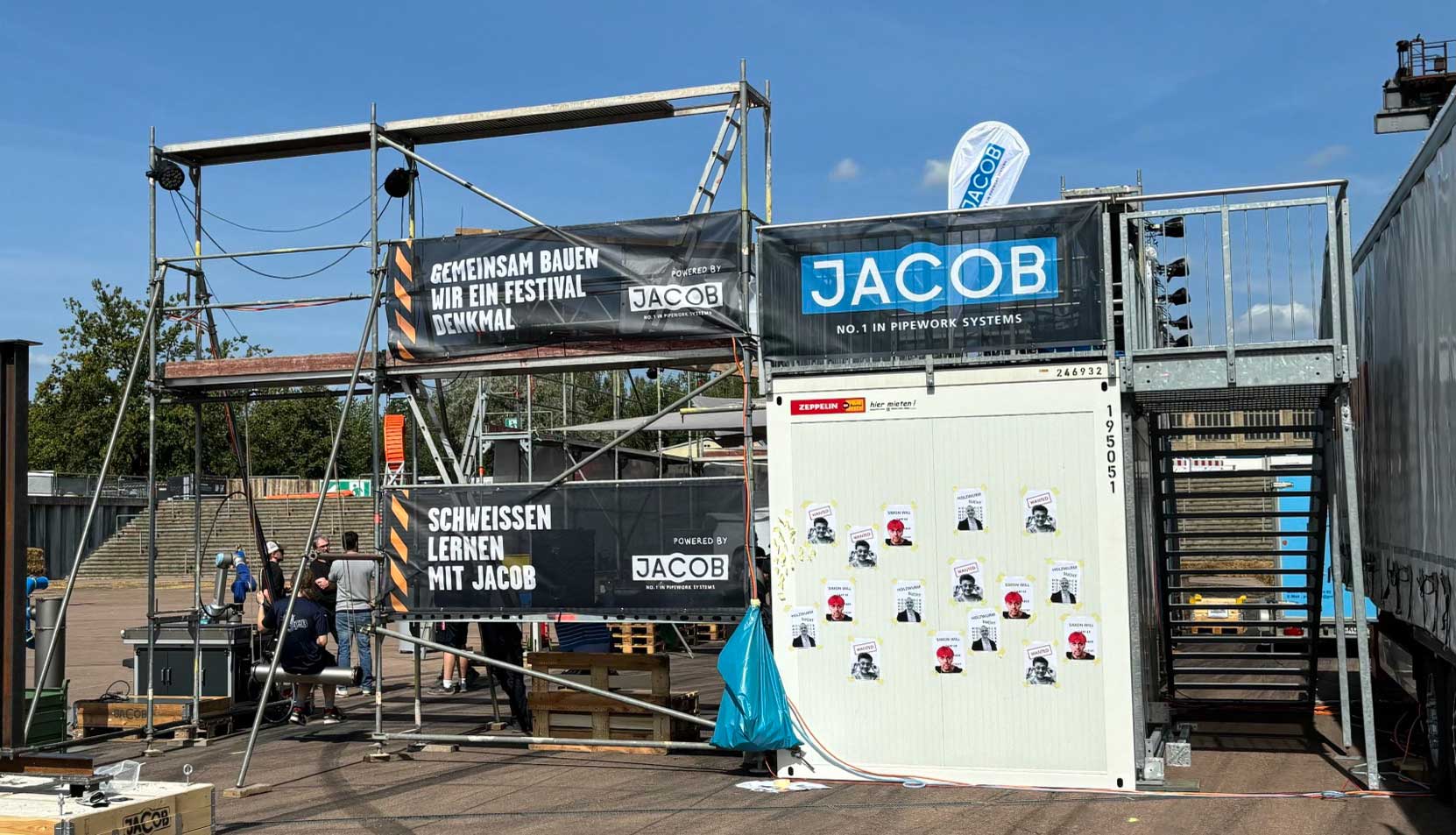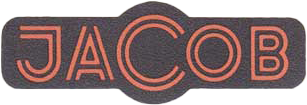
19
20
20
19
30
30
19
40
40
19
50
50
19
60
60
19
70
70
19
80
80
19
90
90
20
00
00
20
10
10
20
20
20

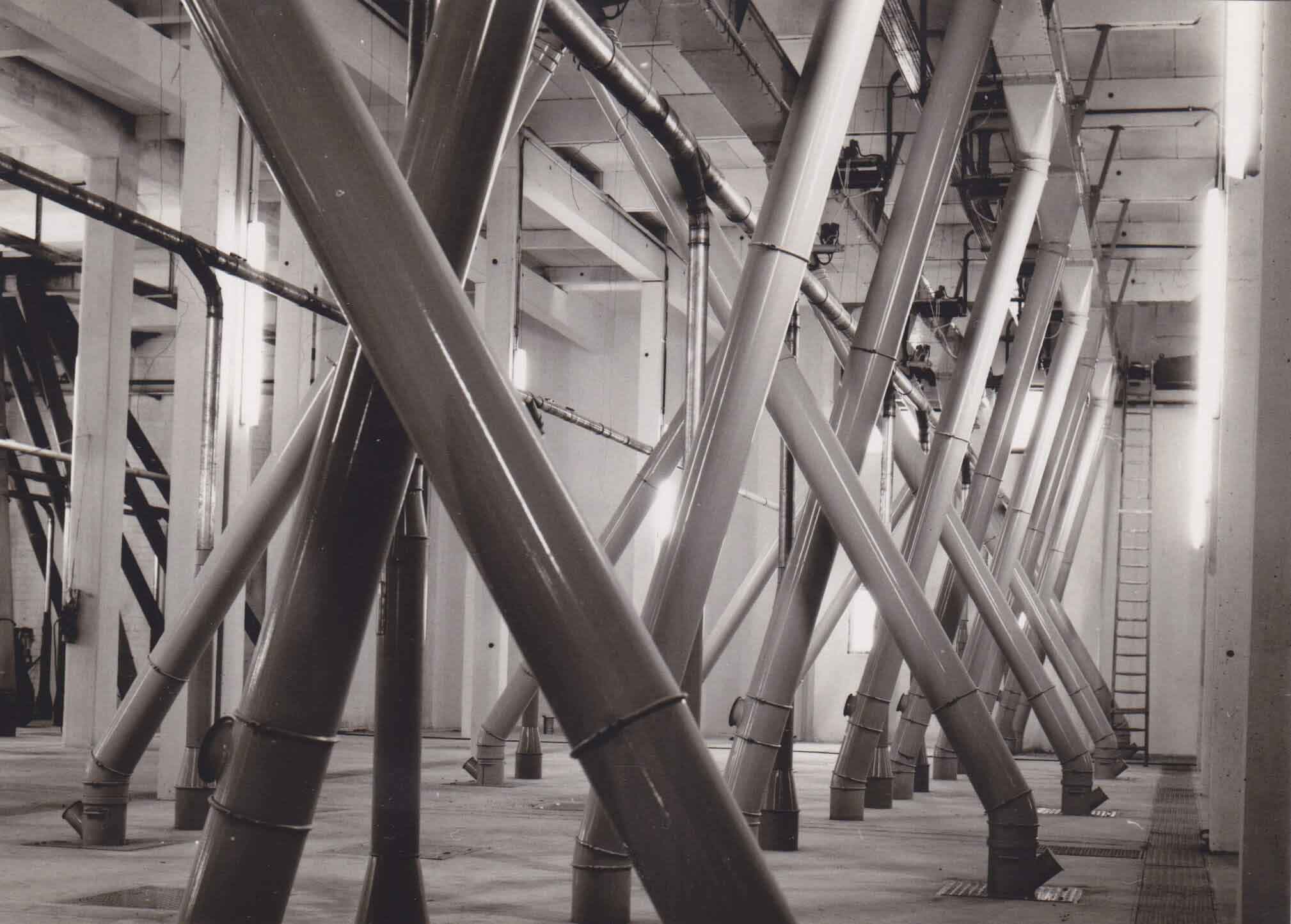
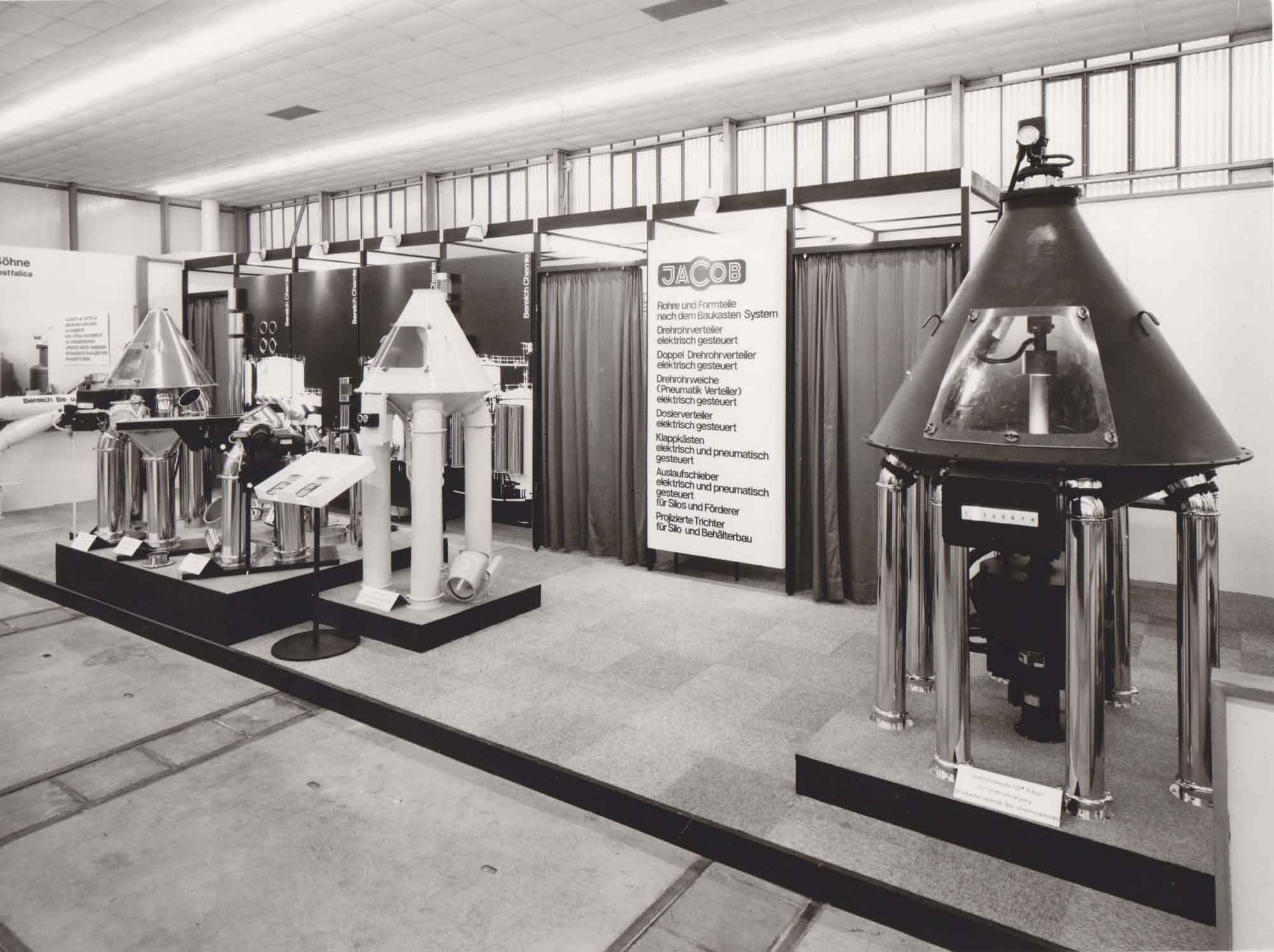
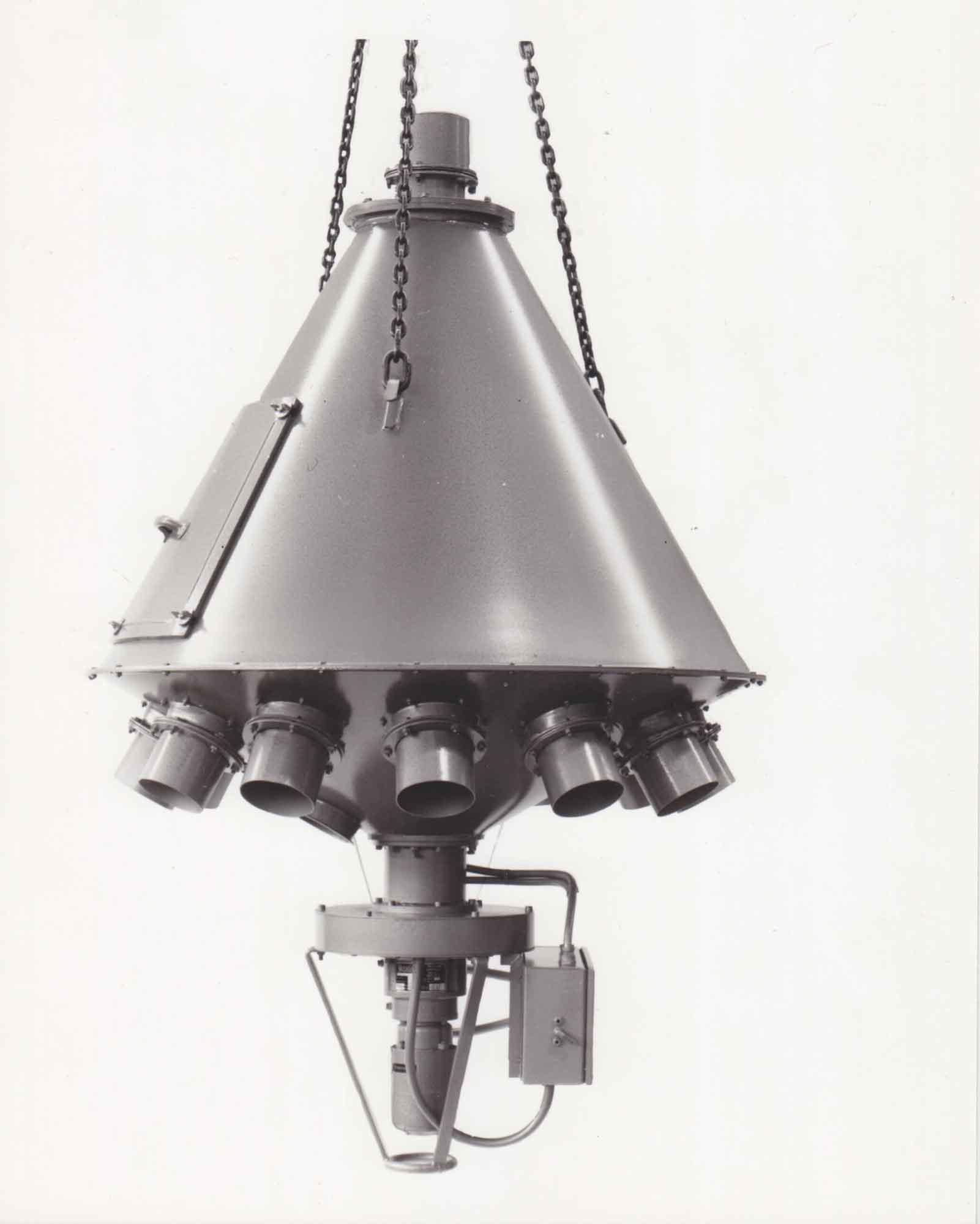
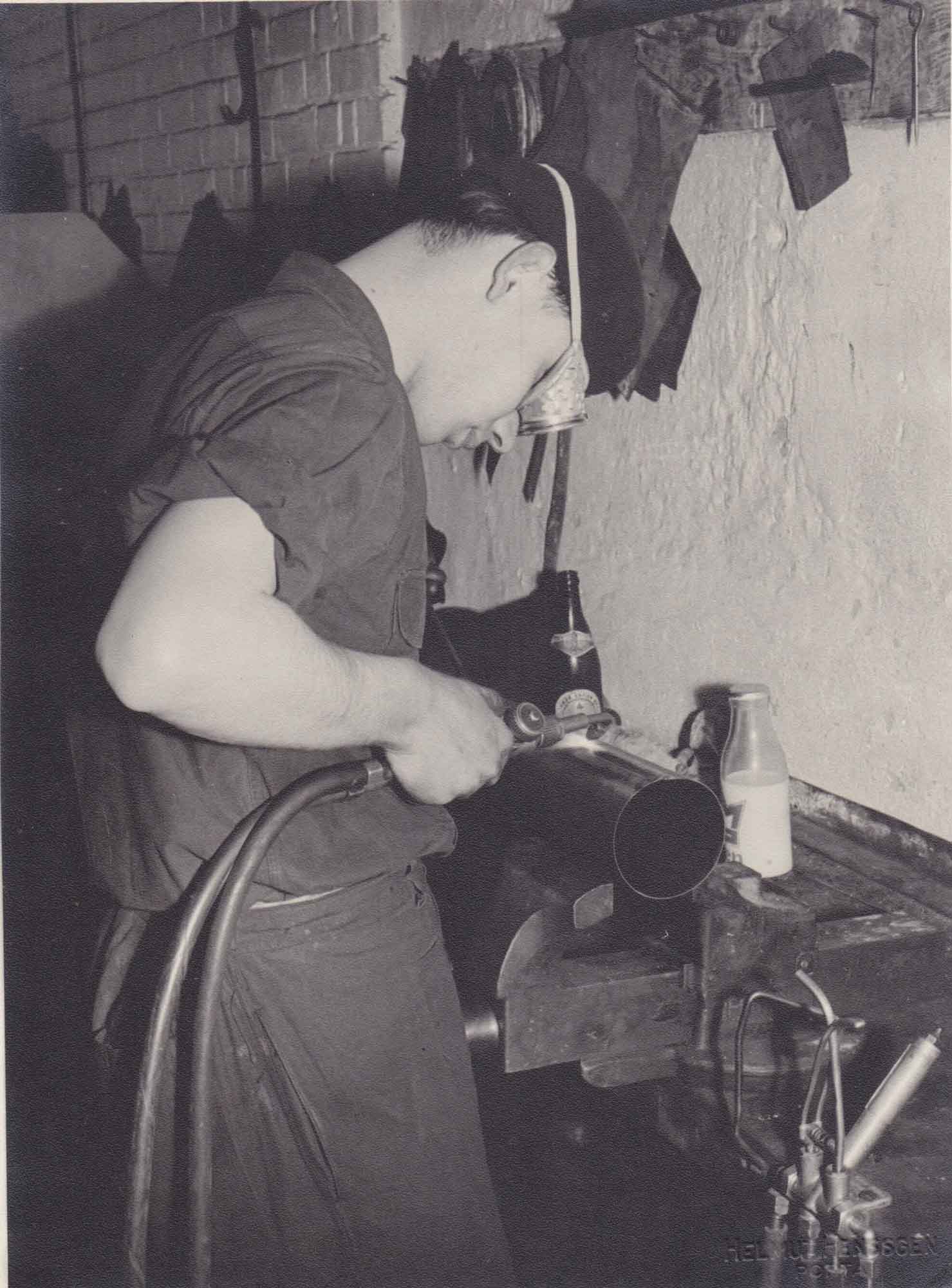
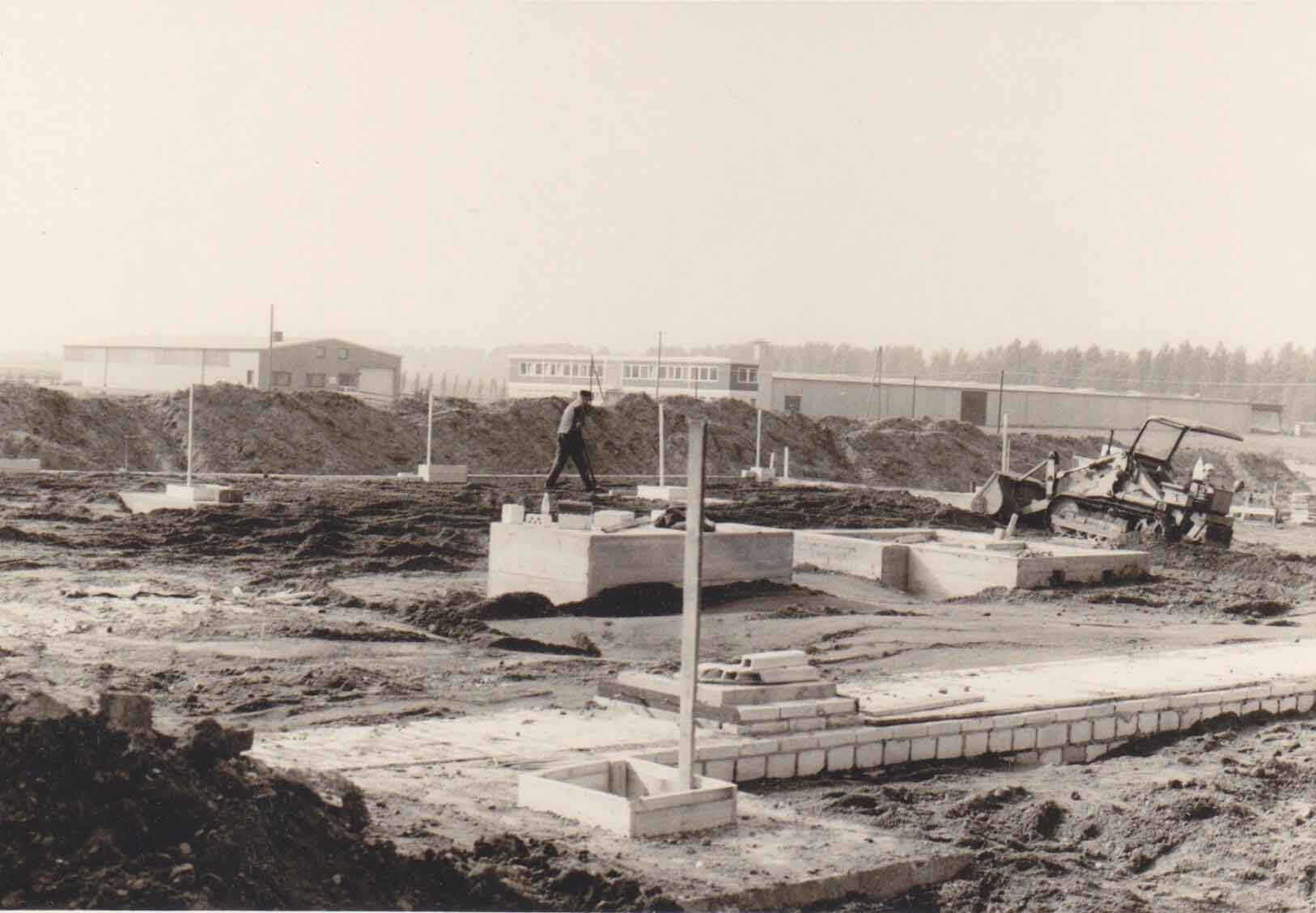
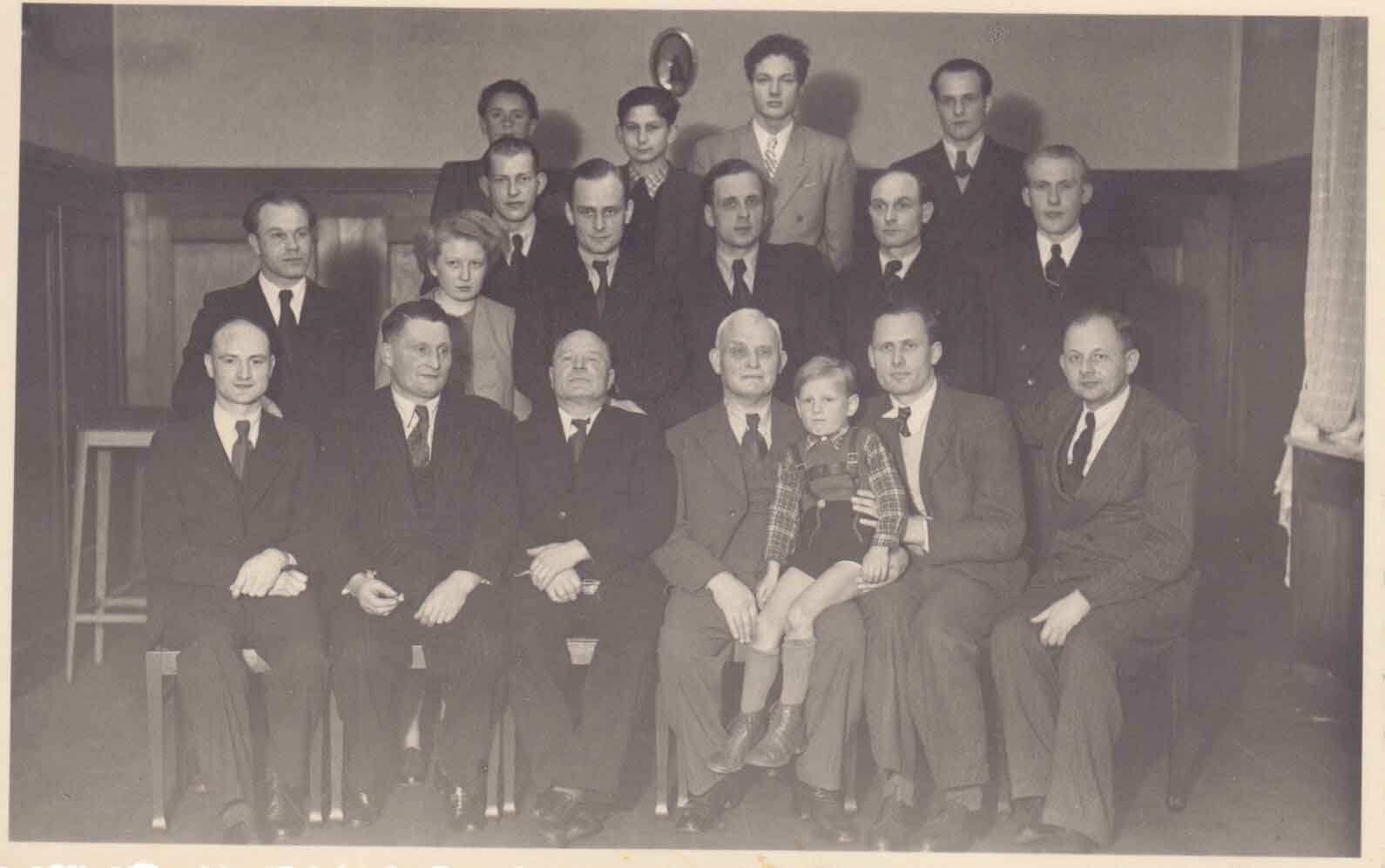
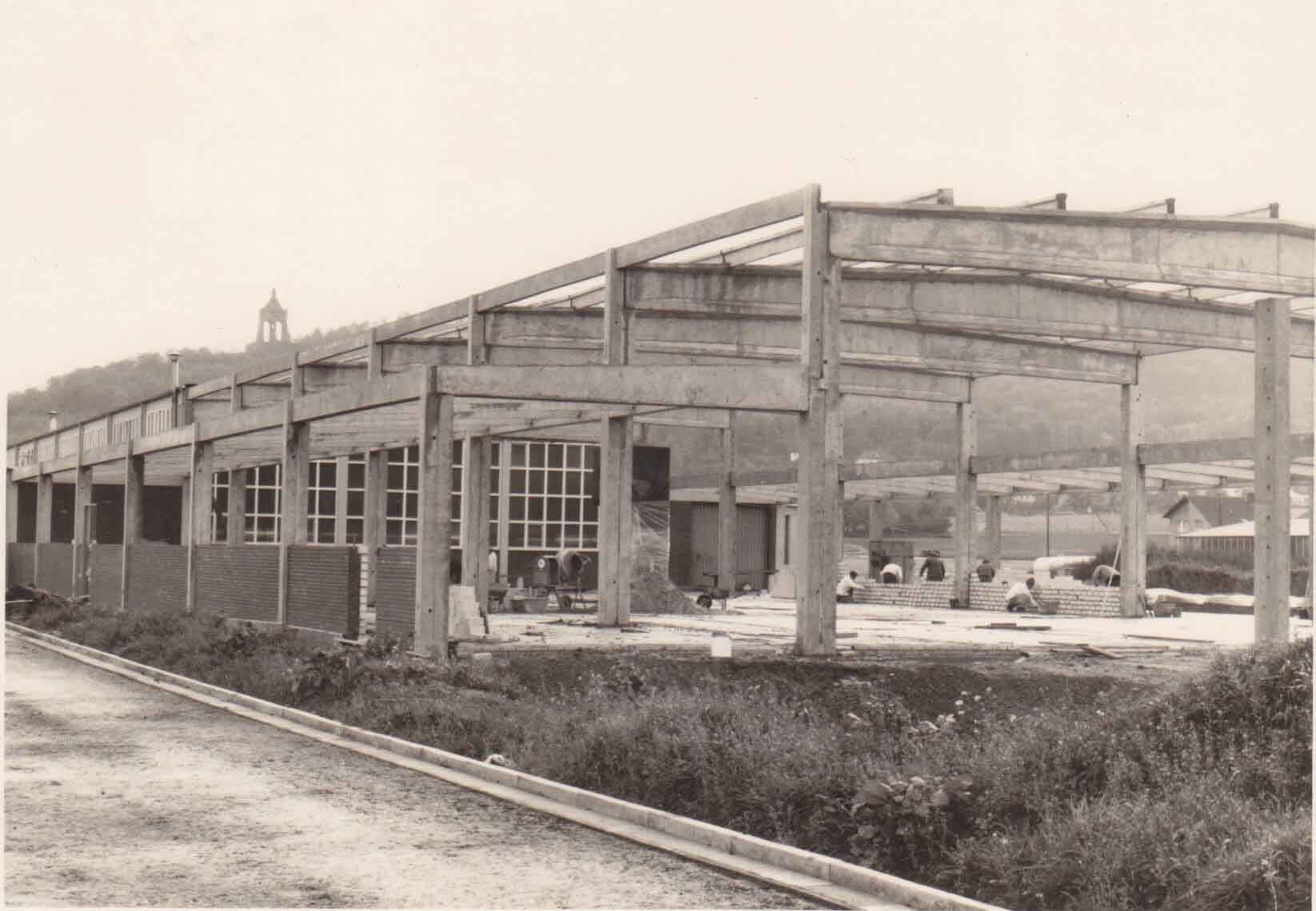
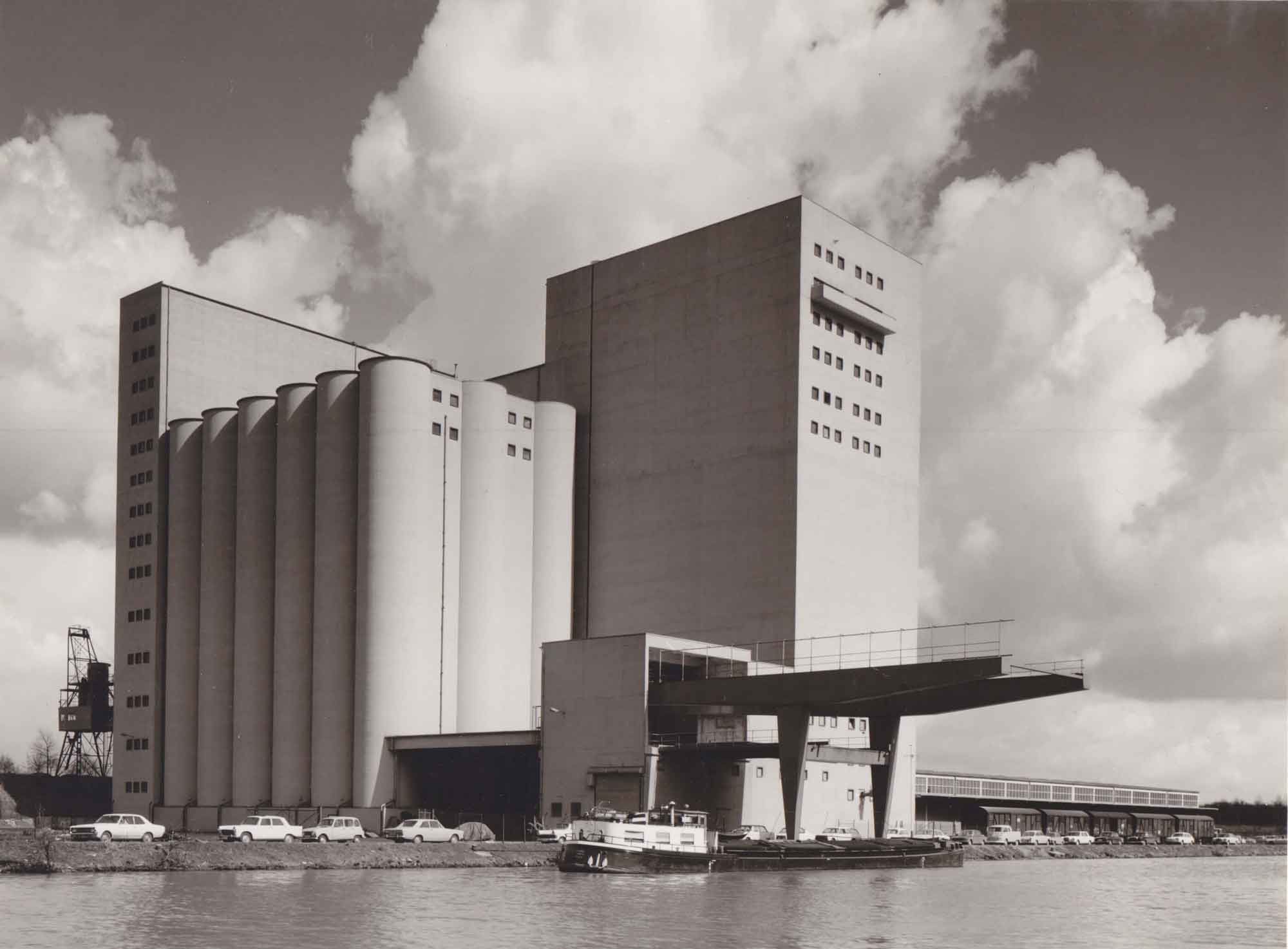
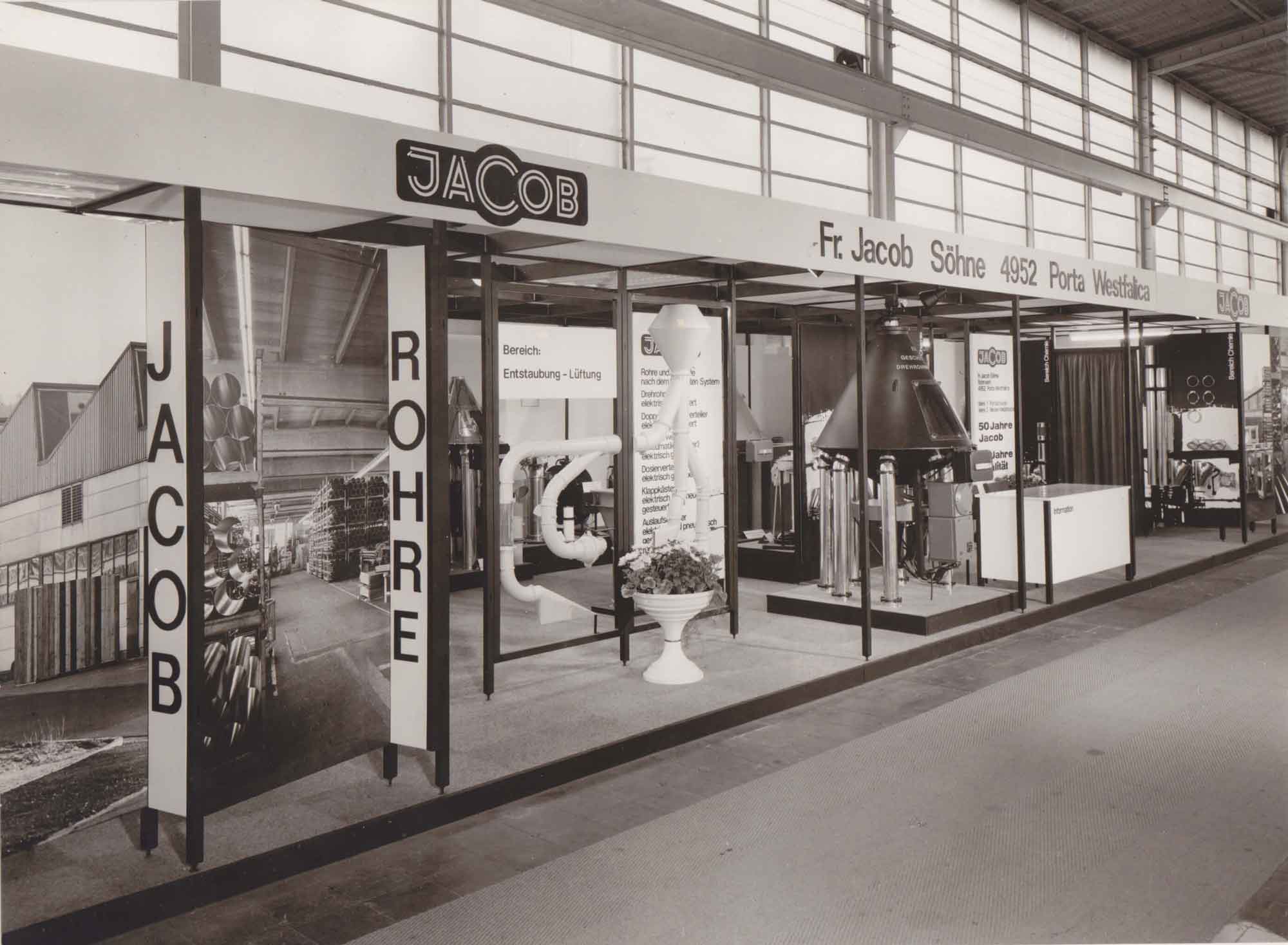
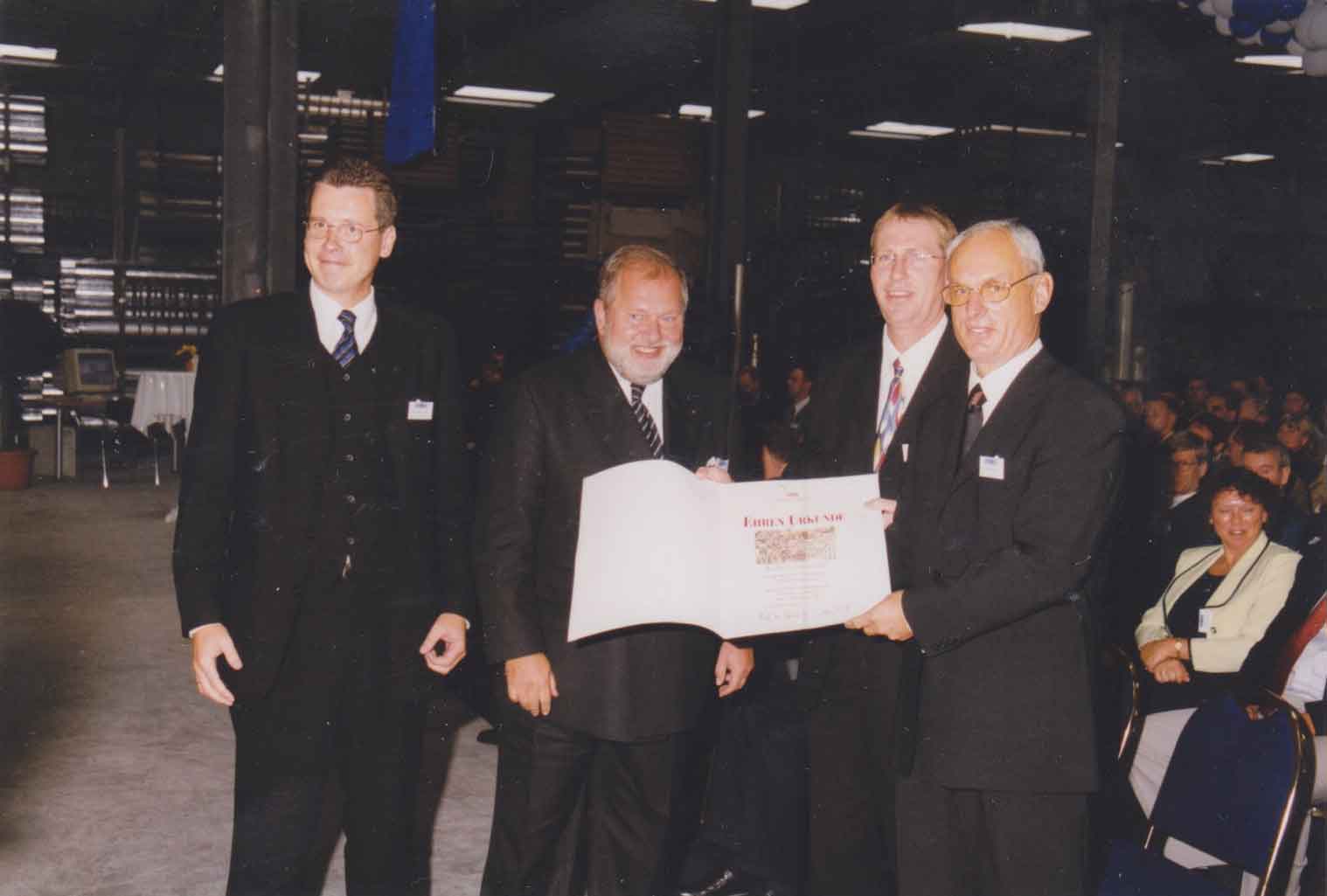
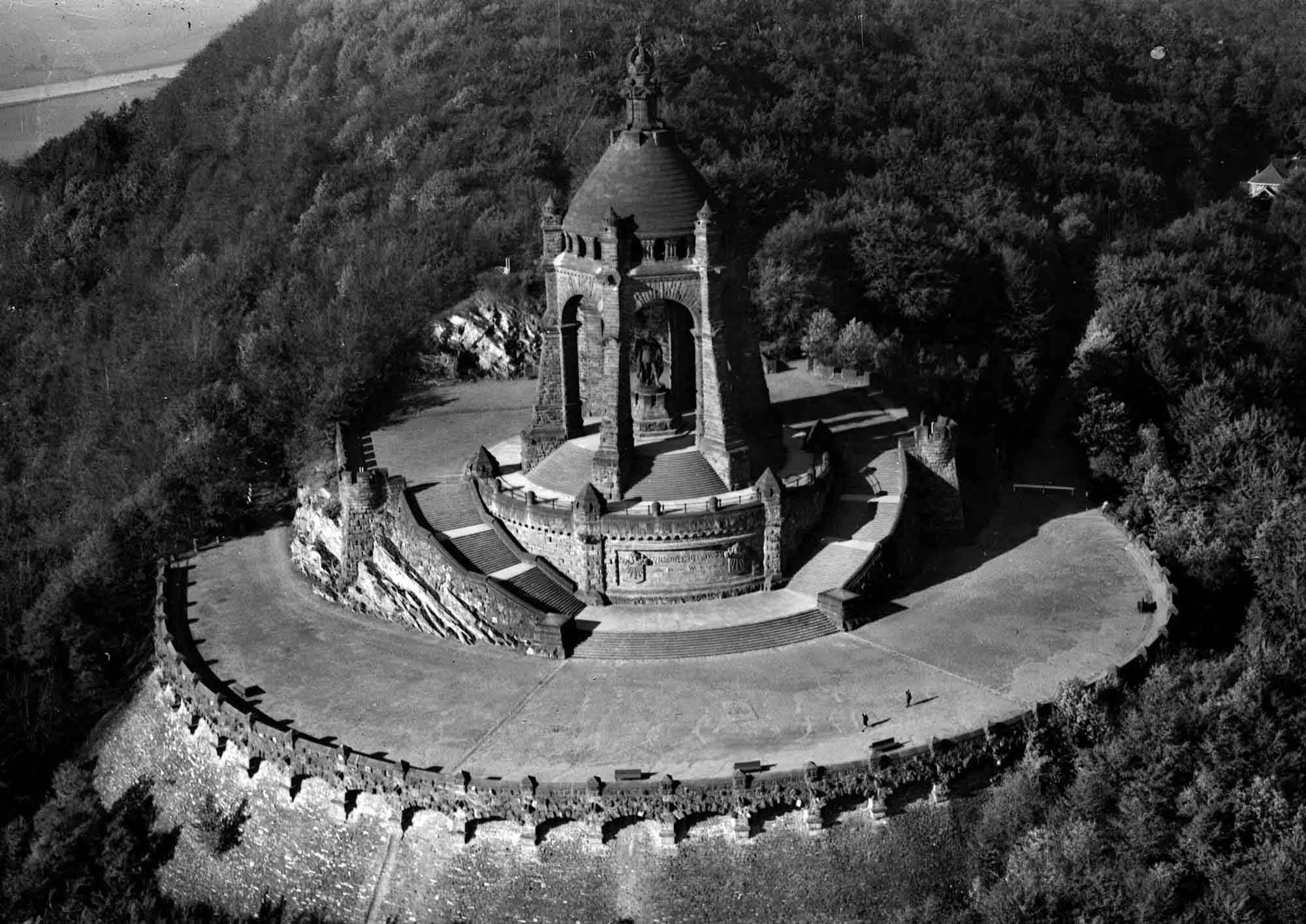
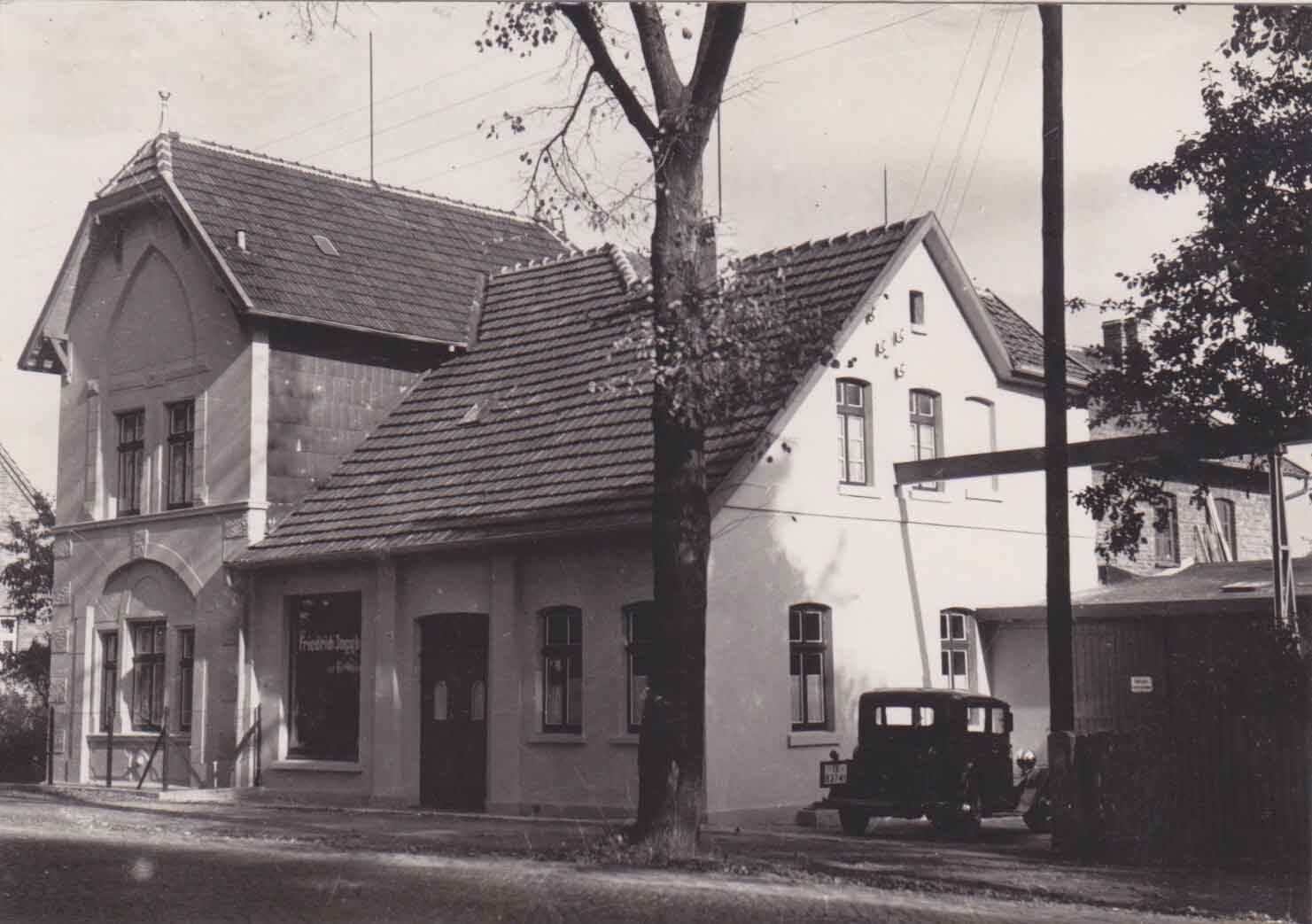
2024
100 years of JACOB Pipework Systems –
a journey through time.

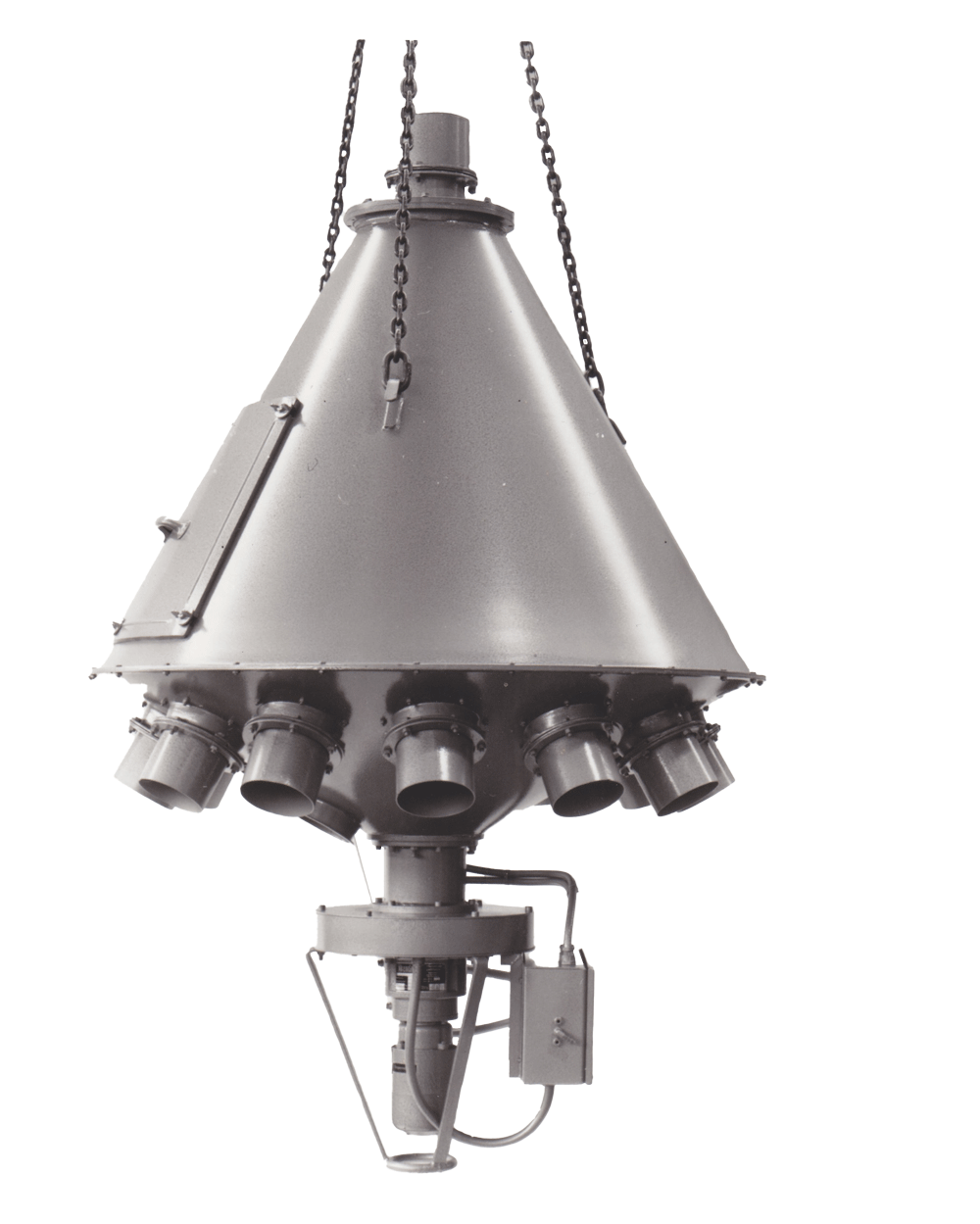
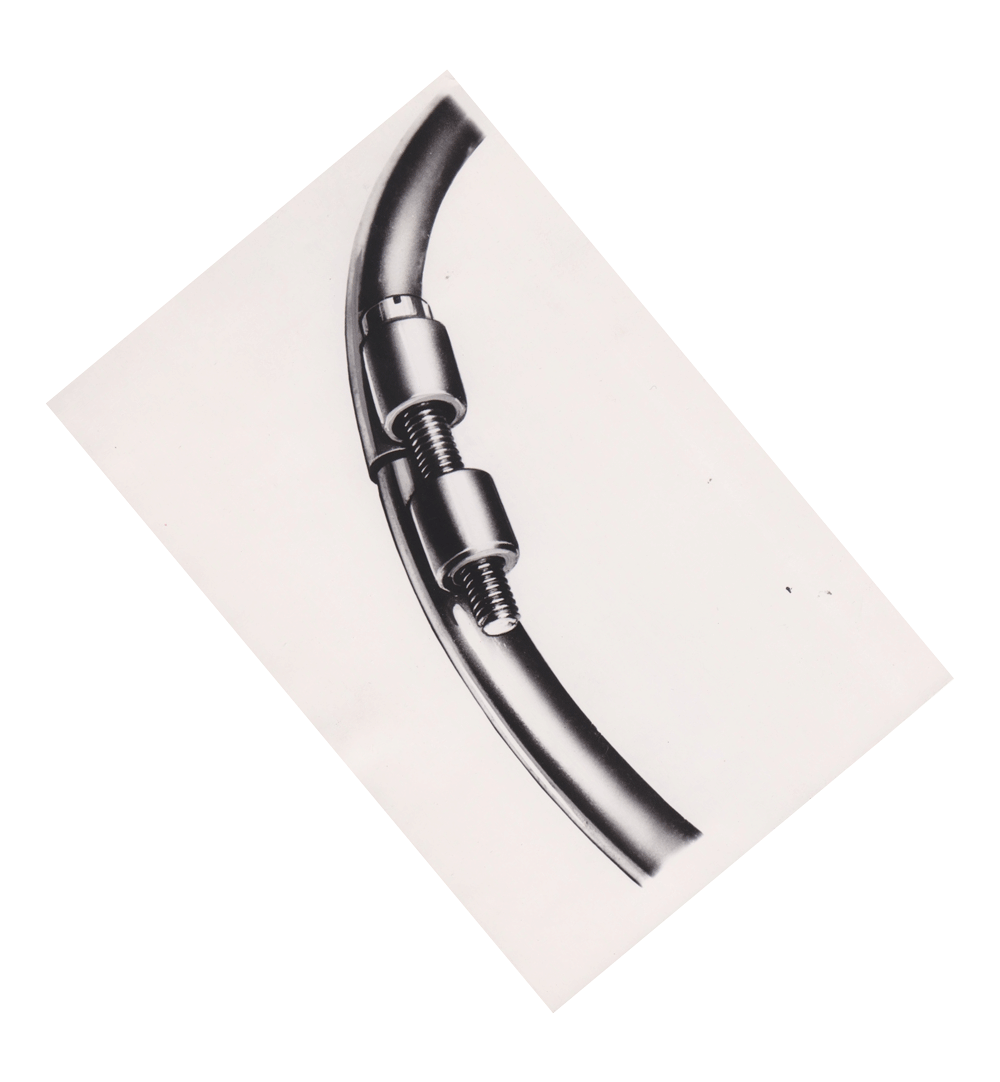
Everything begins
with the people.
The journey begins
1 April
1924
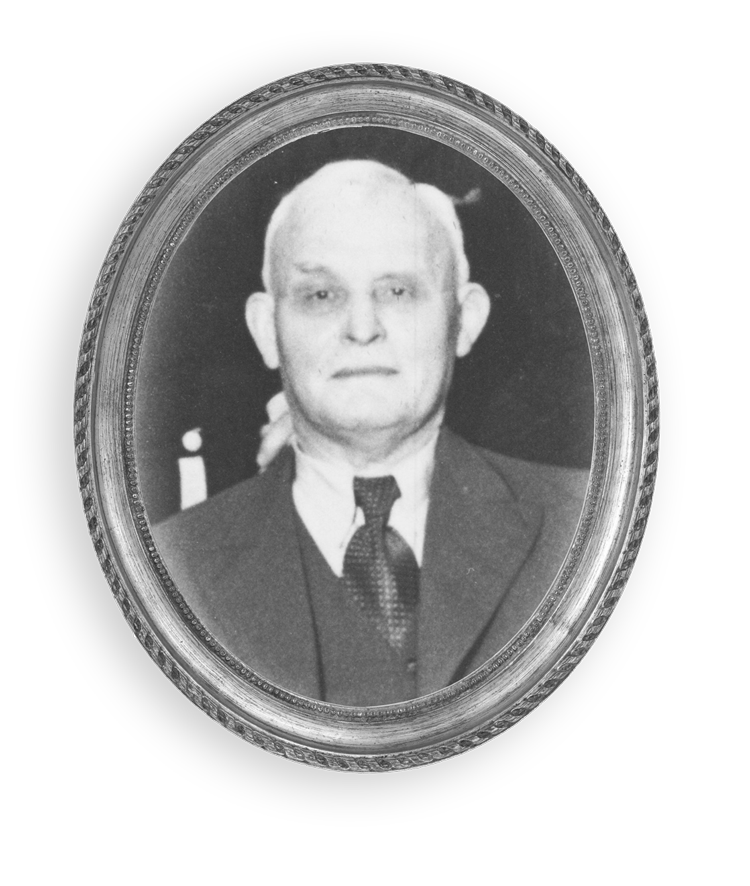 The company founder, at the age of 70
The company founder, at the age of 70
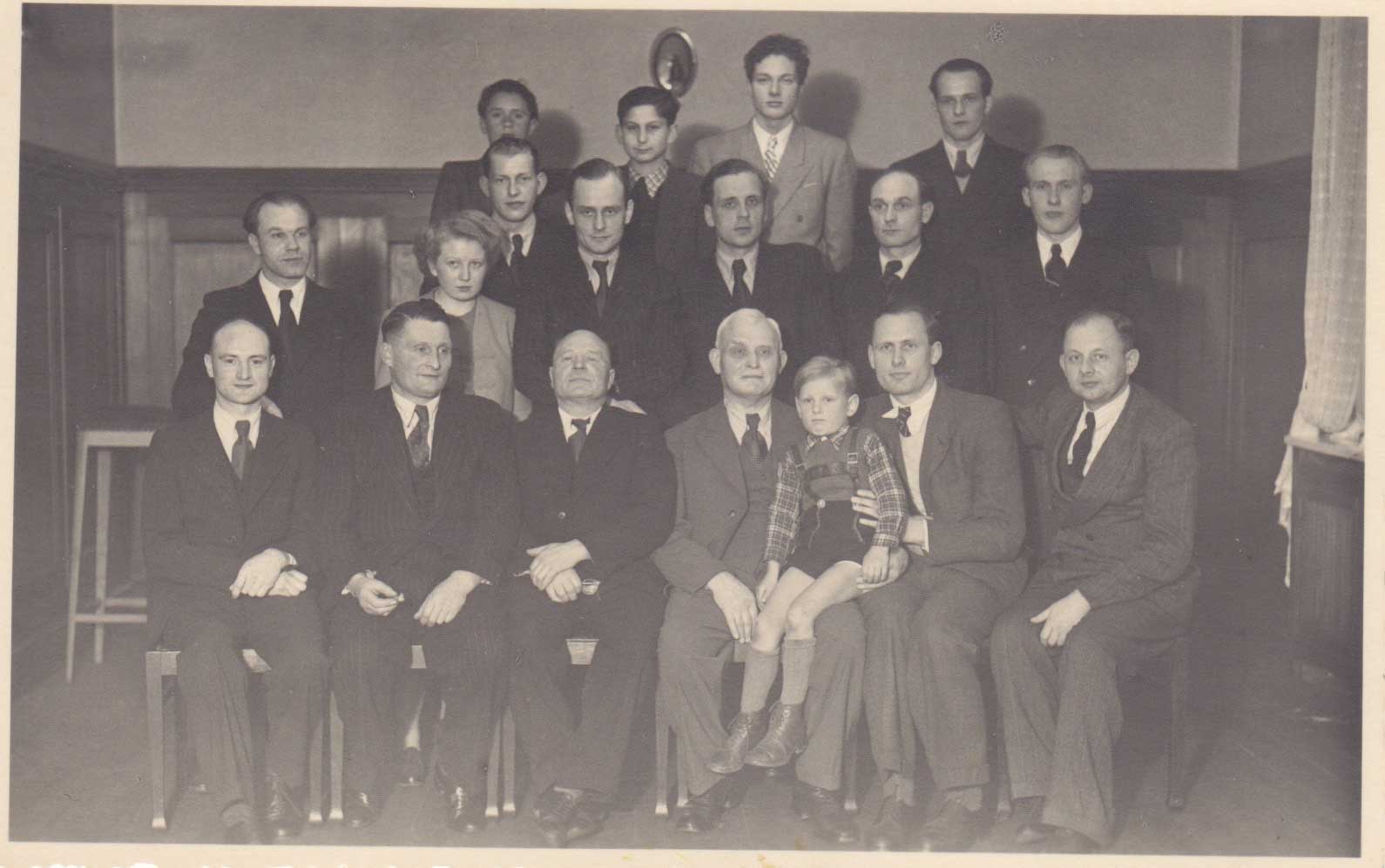
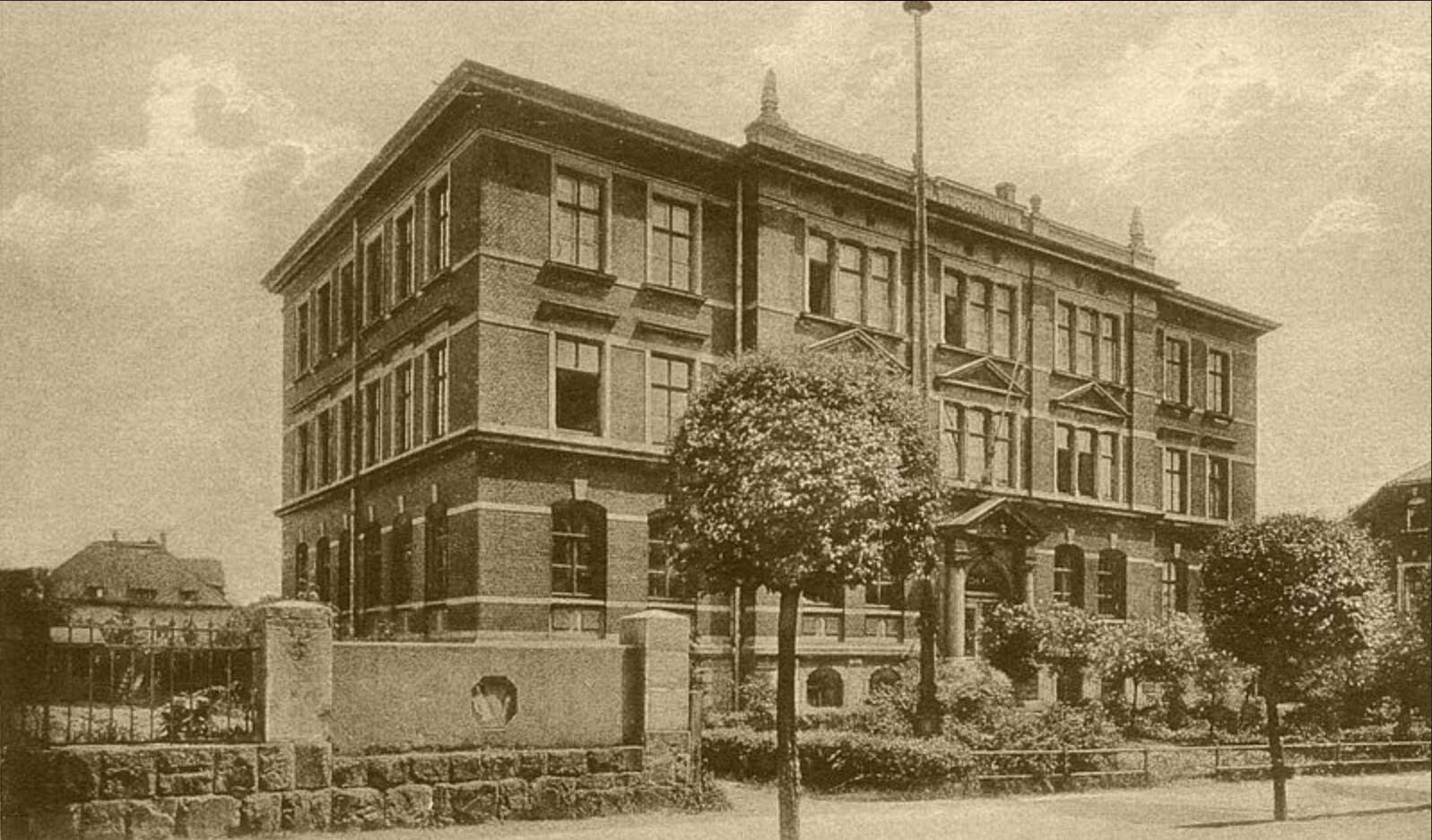
A pioneer sets
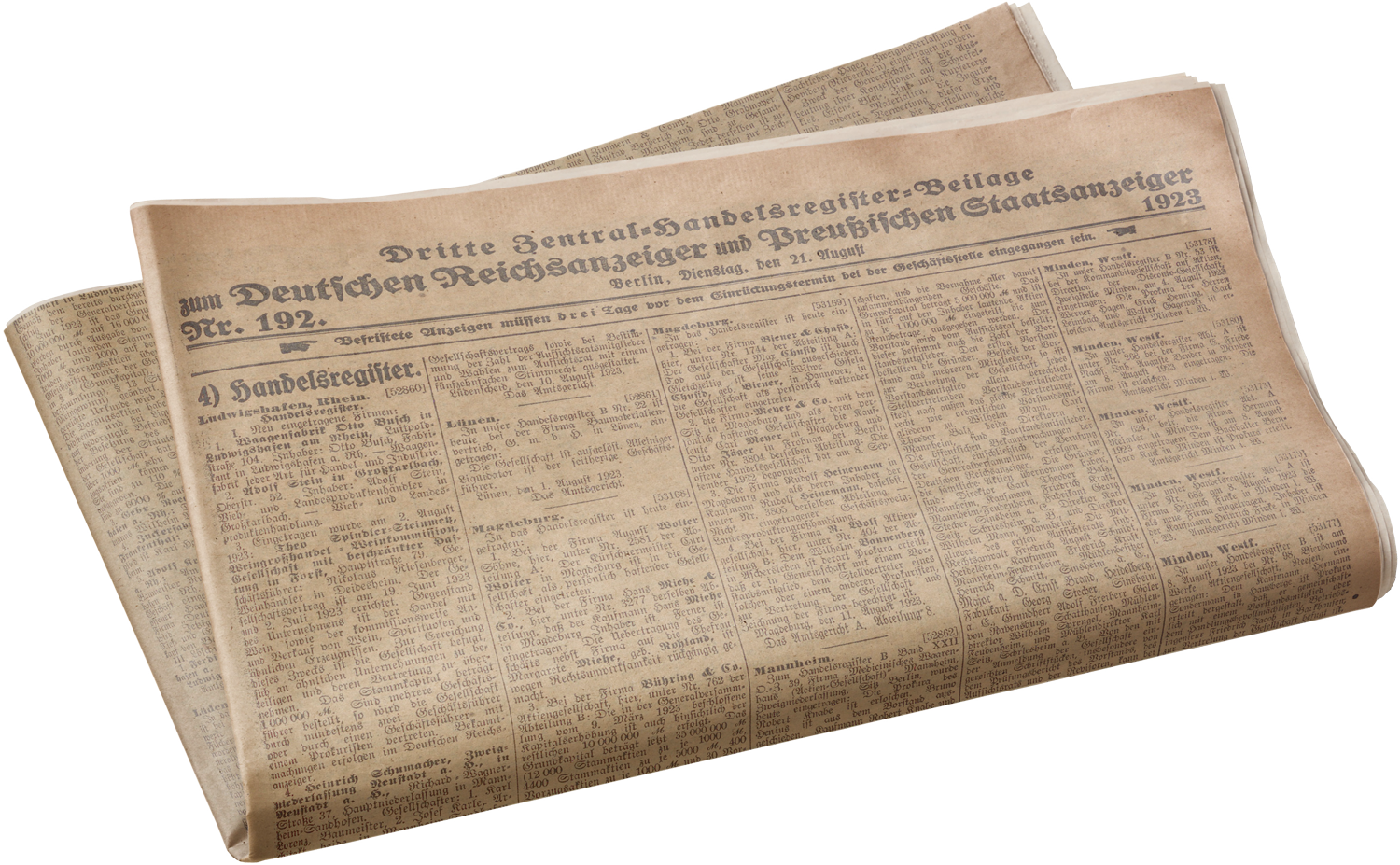
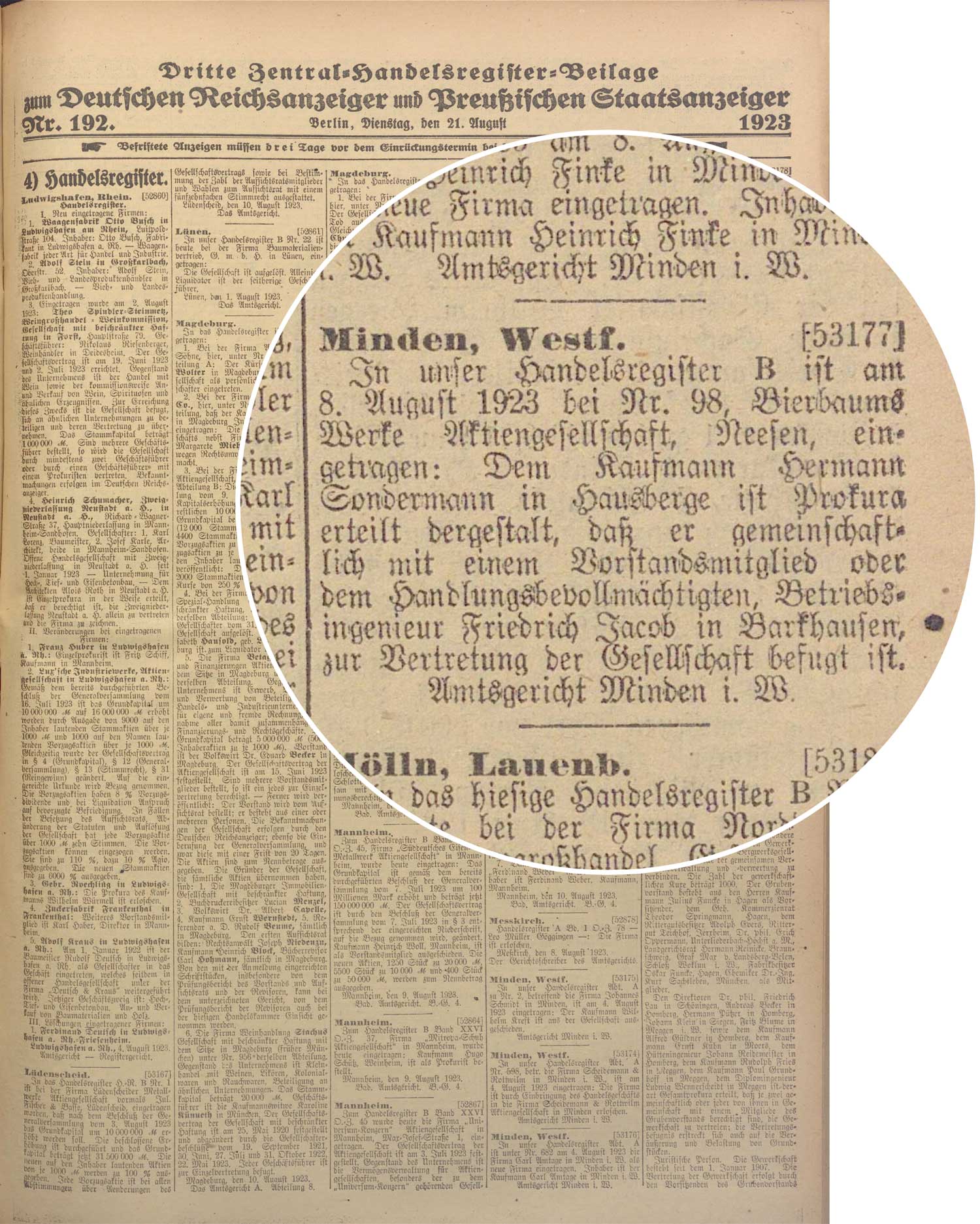
 The company founder, at the age of 70
The company founder, at the age of 70

Pictures like this give a clear indication that family values are particularly important to the founder.
About the founder
Friedrich Jacob is born in 1883 in Niederellenbach, Germany, and grows up there in a grinding mill. As a young man, he gains an engineering degree at the Hainichen Technical College, to the northeast of Chemnitz. After graduation, he takes a job as Works Engineer at the August Bierbaum Millstone and Milling Machinery factory in Porta. In 1918, he is awarded the German Merit Cross for War Aid in honour of his support, as an engineer and civilian, for the troops during the First World War. On 21 January 1958, Friedrich Jacob dies at the age of 75.

From 1900 to 1934, Hainichen Technical College offers young people an education in engineering.
A pioneer sets
up shop in Porta
On 1 April 1924, engineer Friedrich Jacob establishes his business in Porta Westfalica. In doing so, he sets the course for the 100-year international success story of the JACOB family business, starting at the gates of Westphalia.
The founding of the company is perfectly timed. The days when a loaf of rye bread cost 233 billion marks and a kilogram of beef cost 4.8 trillion marks are numbered. By the time Friedrich Jacob starts his company, hyperinflation is over. The economy recovers. The Roaring Twenties. The engineer launches his company at the height of the Golden Twenties.

Detailed registration
Friedrich Jacob is designated as Authorised Works Engineer, in black and white.

Commercial register entry in the German and Prussian Industrial Gazette, No. 192, 21 August 1923
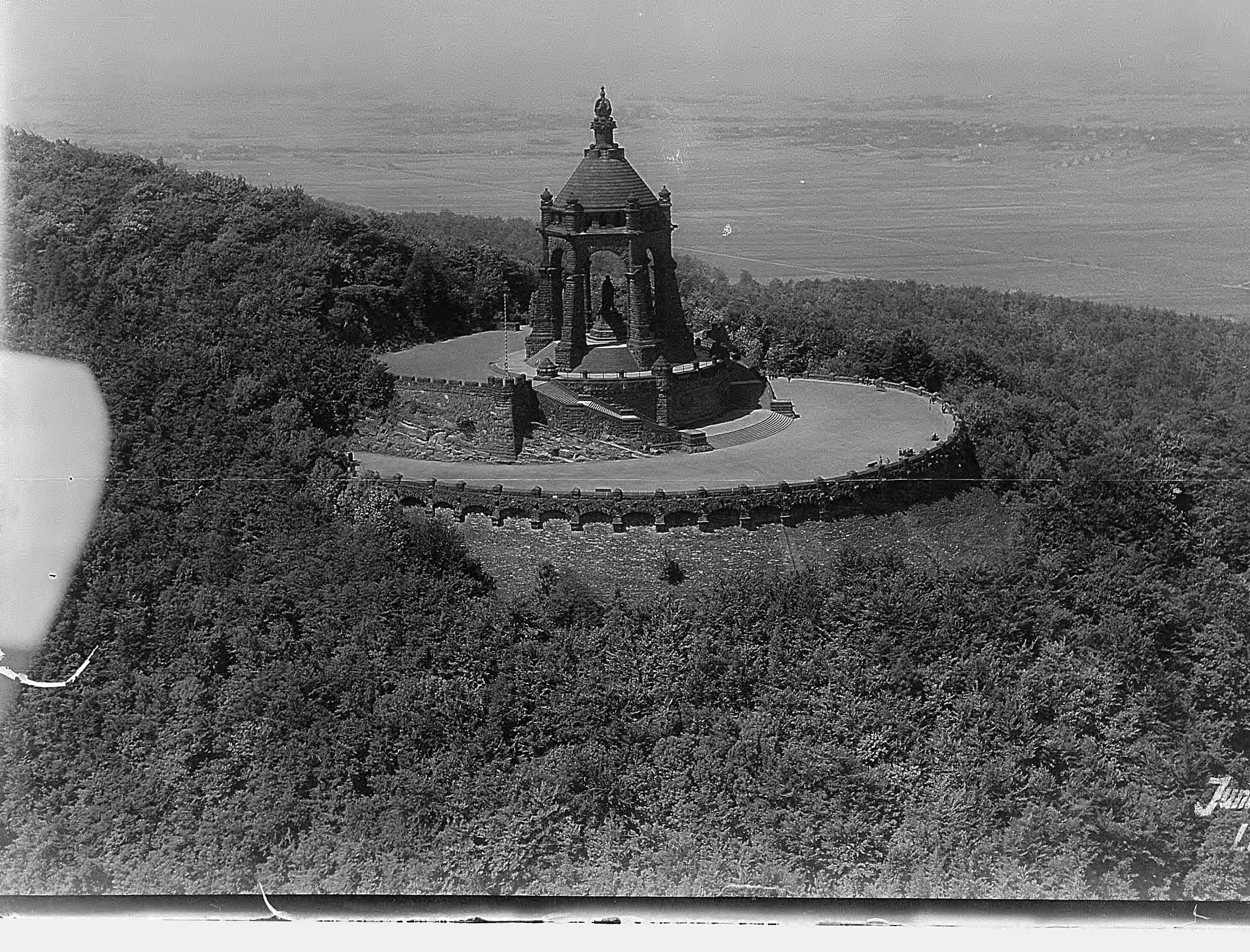
1927
William – an eyewitness
An aerial photograph of the Emperor William Monument taken in 1927 shows the Emperor to be very much interested in the events in and around Porta – including JACOB’s progress.
1920
1930
Grinding mills take centre stage
During the 1930s, JACOB’s core business as an engineering design and planning company involves the planning, construction and modernisation of windmills and watermills. To this end, Friedrich Jacob mainly manufactures square wooden pipes, which he delivers to local mills.
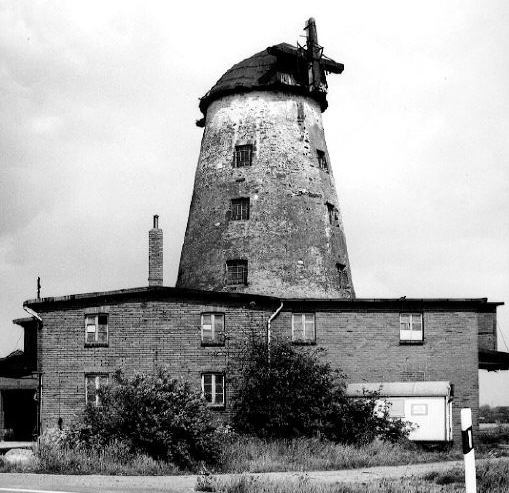
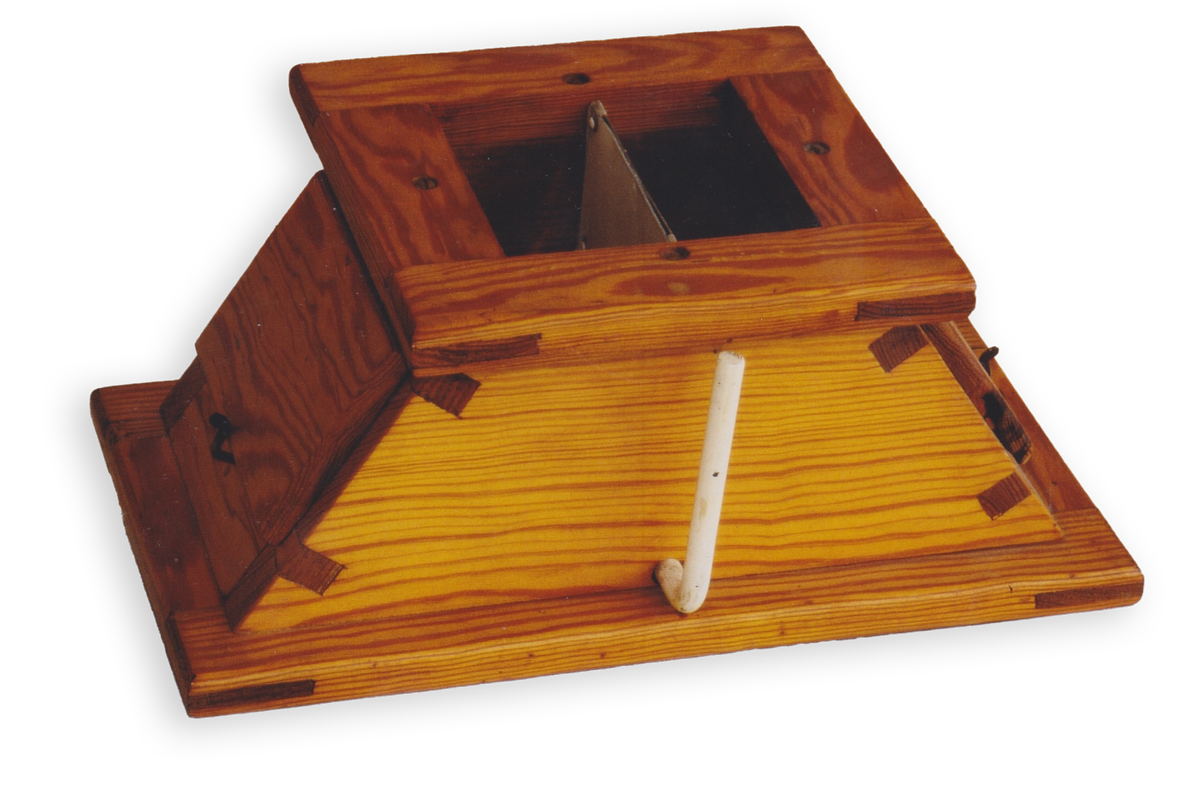
The engineer knows exactly what requirements the wooden products need to fulfil. Partly thanks to his studies at the Hainichen Technical College. But also because Friedrich Jacob actually grew up in a mill and knows from his childhood days what is expected of mill supplies.
A warehouse brimming with special items
Friedrich Jacob knows the industry and exactly what his customers need. This is why he keeps his warehouse stocked with a wide range of replacement parts and special items that leaves nothing to be desired – from iron pulleys through to hemp yarn belts for hoists and lifts.
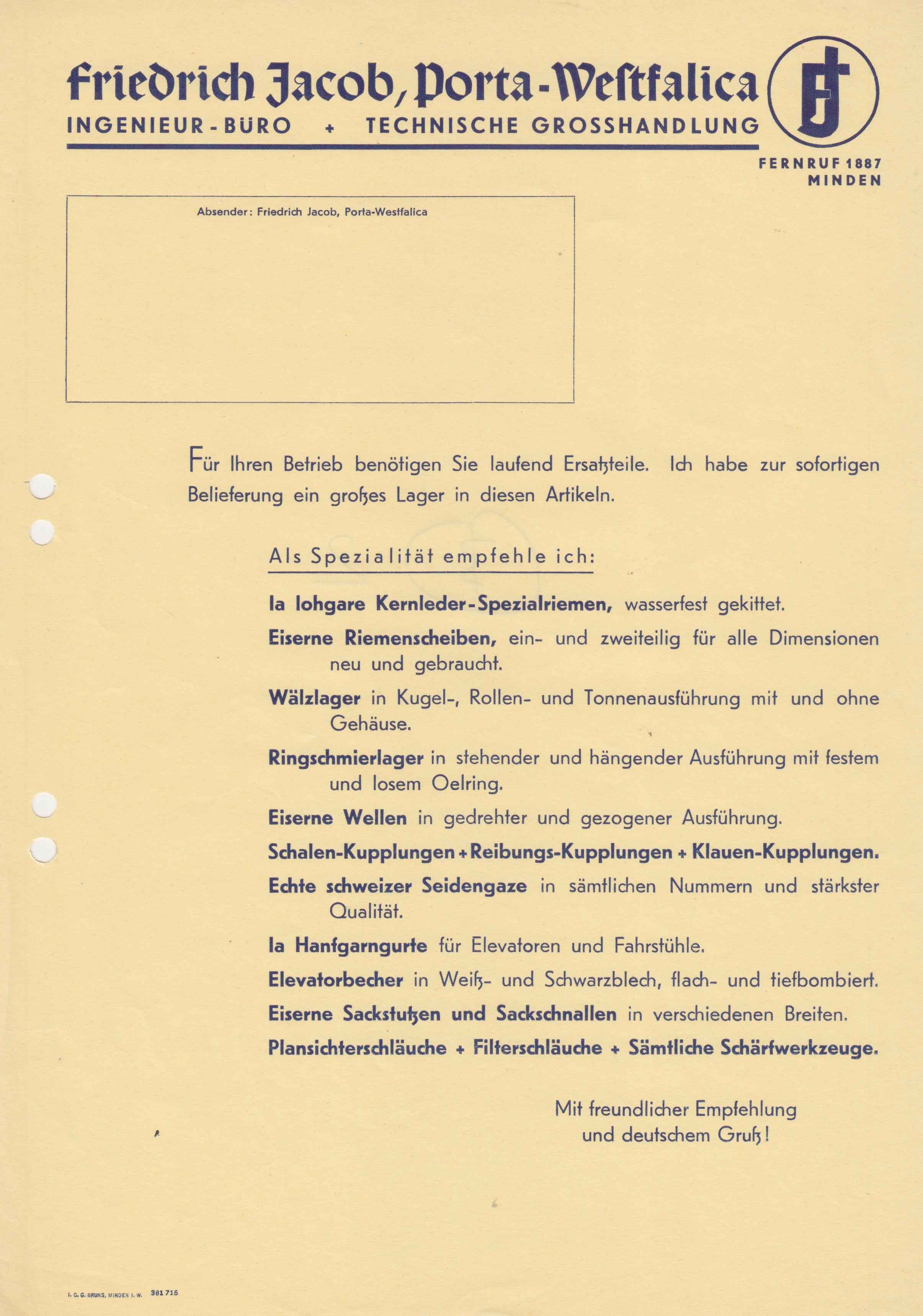
Product recommendations for customers
1930
1940
1940
The next generation
In 1948, Friedrich’s sons Heinrich, Johannes and Helmut Jacob join the company. Perfect timing, once again, since this is the year in which the Deutsche Mark currency is introduced – laying the groundwork for the “Wirtschaftswunder” (economic miracle) and the prosperity of the following decades. Ideal preconditions for the next generation and their employees to write the next chapter of the JACOB success story.
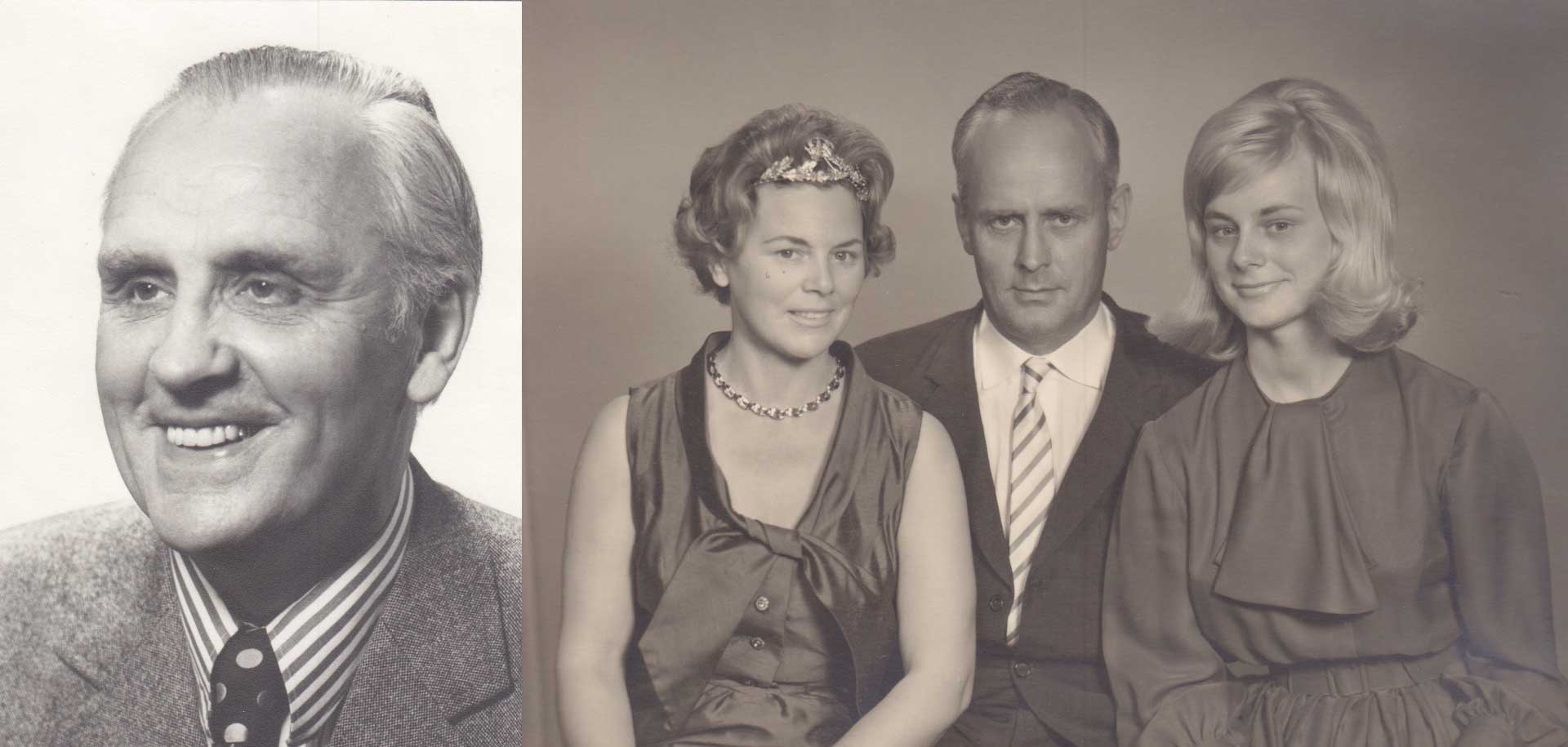
1948
The post-war period is a time of change. During the 1940s, JACOB focuses more and more on production, and manufactures auxiliary machines for mills, bakeries, distilleries and similar facilities.
New generation, new shareholders
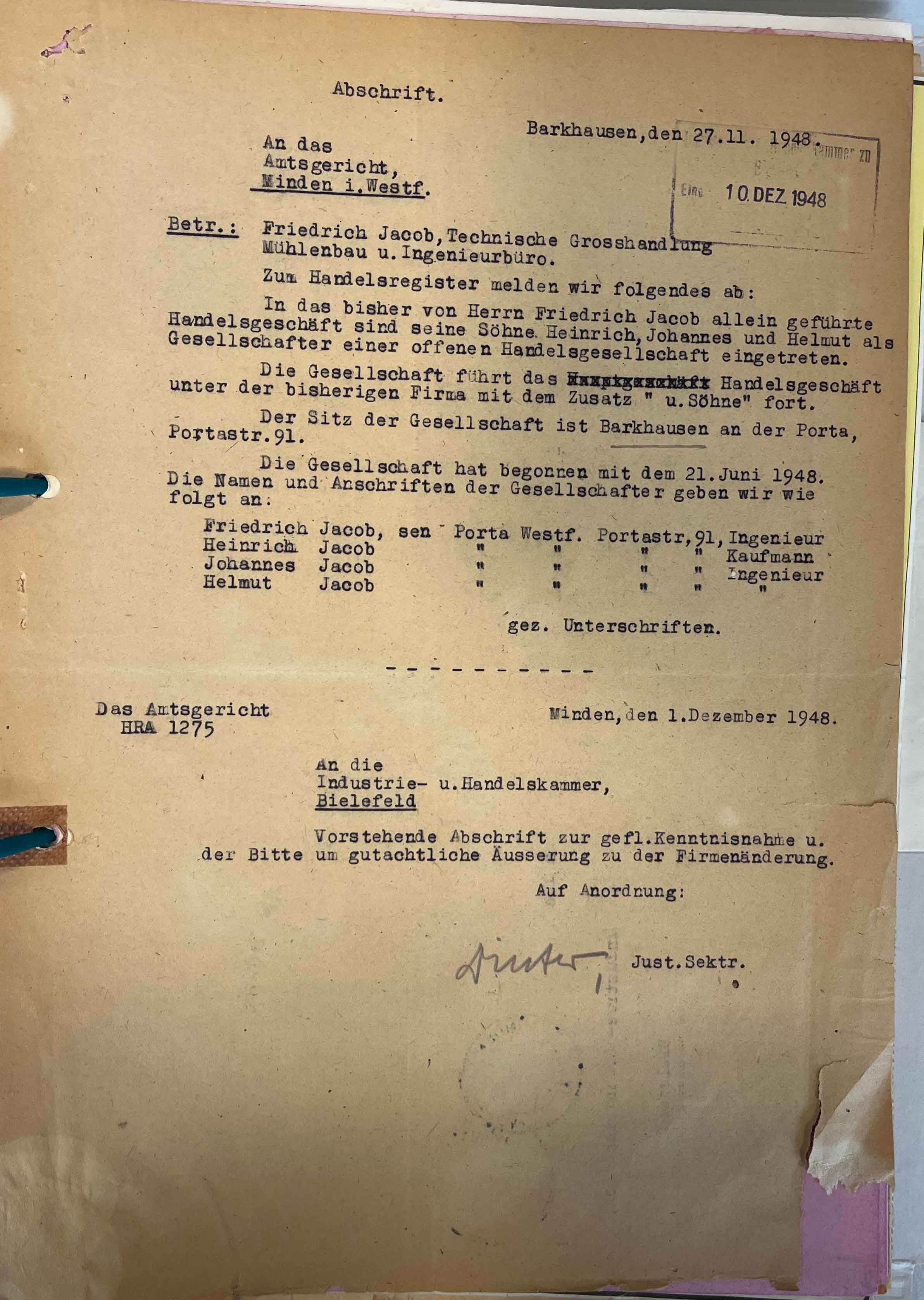
Commercial register extract, 1948
About Heinrich Jacob
Heinrich Jacob is born on 24 Oktober 1913 in Nuremberg, Germany. Two years later, the family moves to Porta Westfalica. From 1923 to 1928, he attends the Bessel Secondary School in Minden. After the tenth grade, he has a secondary school leaving certificate under his belt.
He then gains his first vocational experience, as a trainee in a carpentry and cabinetmaking company, before joining his father’s engineering company in 1930 and working there for several years as a millwright.
Later, Heinrich is promoted to the management board and given both technical and economic responsibilities. Heinrich learns everything he can about the design and construction of mills and becomes a real master of his trade – in the true sense of the word. Conclusive proof: on 26 July 1958, Heinrich passes his final examination to become a master craftsman in mill design and construction. Undoubtedly a proud moment for his father, who unfortunately dies later that year.
With his brother Johannes, Heinrich takes over management of the company as a worthy successor and continues to expand his expertise in mill design and construction. This results in him becoming, among other things, a sworn expert regarding mill and granary design and construction, and a member of examination boards for apprenticeships. Heinrich embodies the tradition of mill construction – like father, like son. And this is one of the reasons that the Mühlen- und Müllereimaschinenbauer e. V. trade association elects him as its second chairman on 1 June 1960. Heinrich continues to move JACOB’s success story forward until his death on 6 June 1997.
About Johannes Jacob
Johannes Jacob is born in 1913. From an early age, he is interested in technical matters, which leads him to take a course in engineering. An expedient decision, since, between them, Heinrich and Johannes now bring both commercial and technical expertise to the company.
After Friedrich Jacob’s death in 1958, the brothers share responsibility for managing the family business. Johannes focuses predominantly on the technical side – he is, after all, the “tinkerer” of the family. In the early 1960s, he opens an engineering consultancy and works for the Bielefeld Chamber of Commerce and Industry as an expert appraiser of mill construction and hydroelectric power plants.
Johannes makes his mark on product development at JACOB with his technical contributions. In 1969, for example, he registers a utility model: the “pull-ring with quick release for pipes”. Henceforth, JACOB Pipework Systems are assembled “with a click” – a revolutionary idea.
With his brother Heinrich, Johannes remains in his post as director and owner throughout the following decades until he leaves the family business in May 1991 and passes the baton to his daughter Sigrid Bopst, née Jacob.
Quote regarding Heinrich Jacob
I can still hear his words: “If I am earning”, he said, “my people should be earning too”.
Christel Könemann
With the company from 1967 to 2012 (Administration/Marketing)
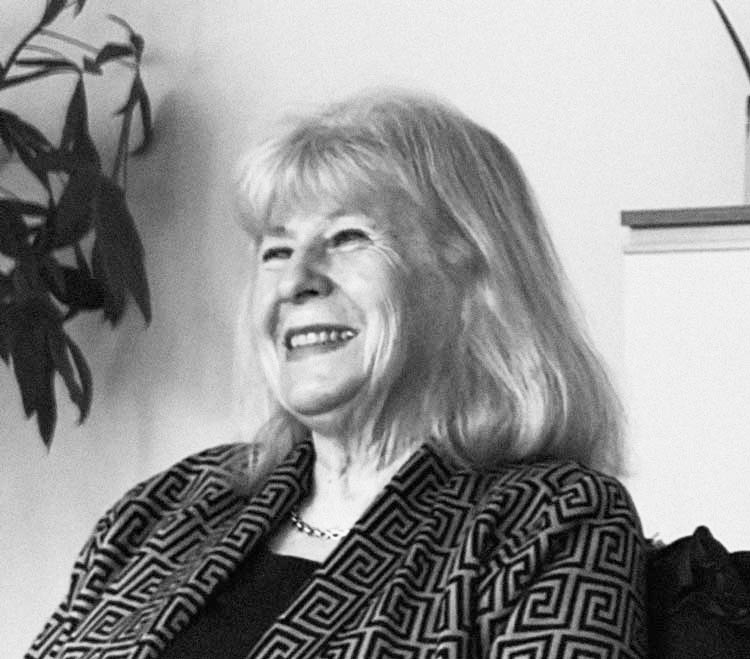
1940
1950
1950
On the road to success
The catchword of the 1950s: Growth! The company’s building at number 91 Portastrasse is expanded and the number of storeys increased.
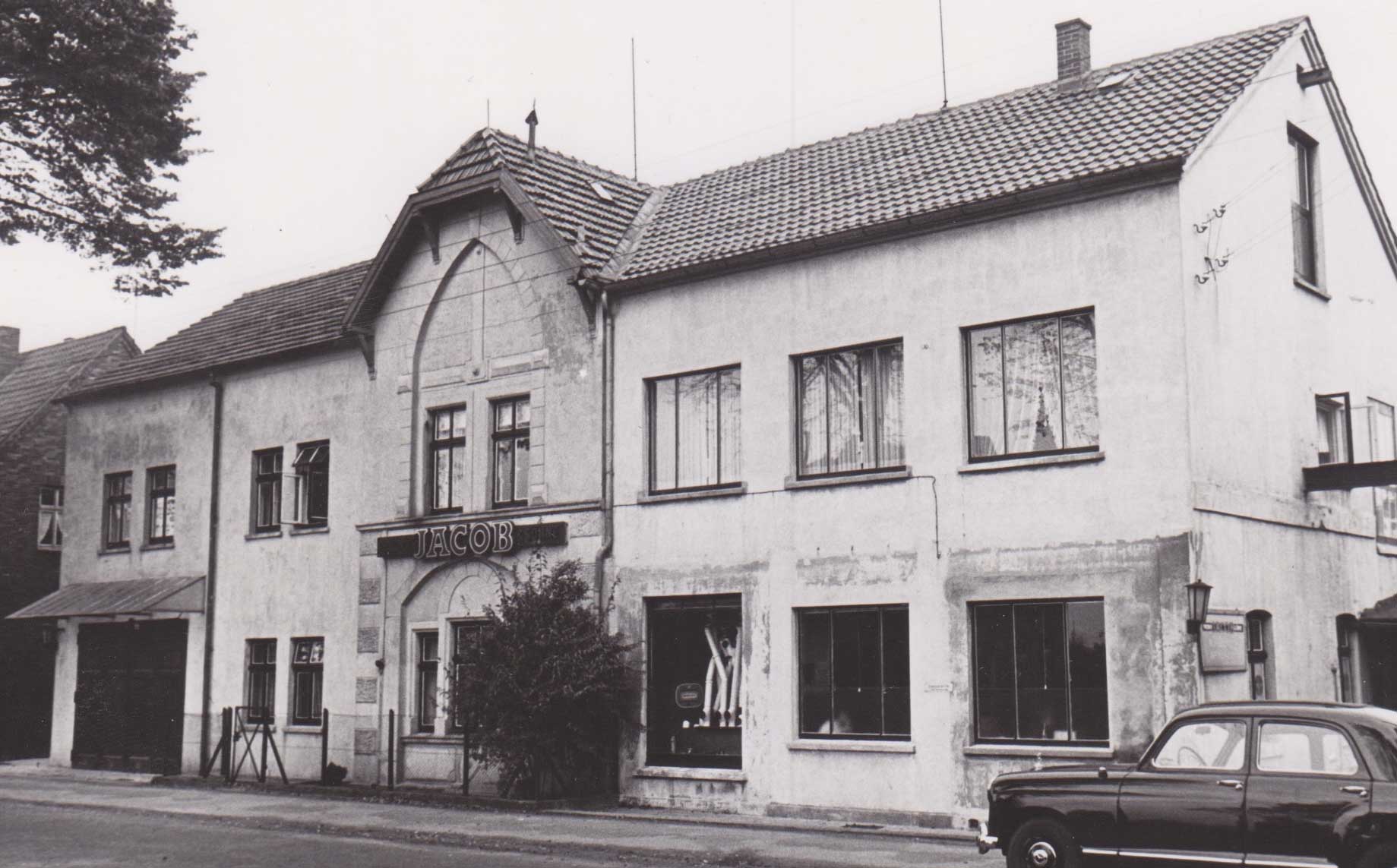
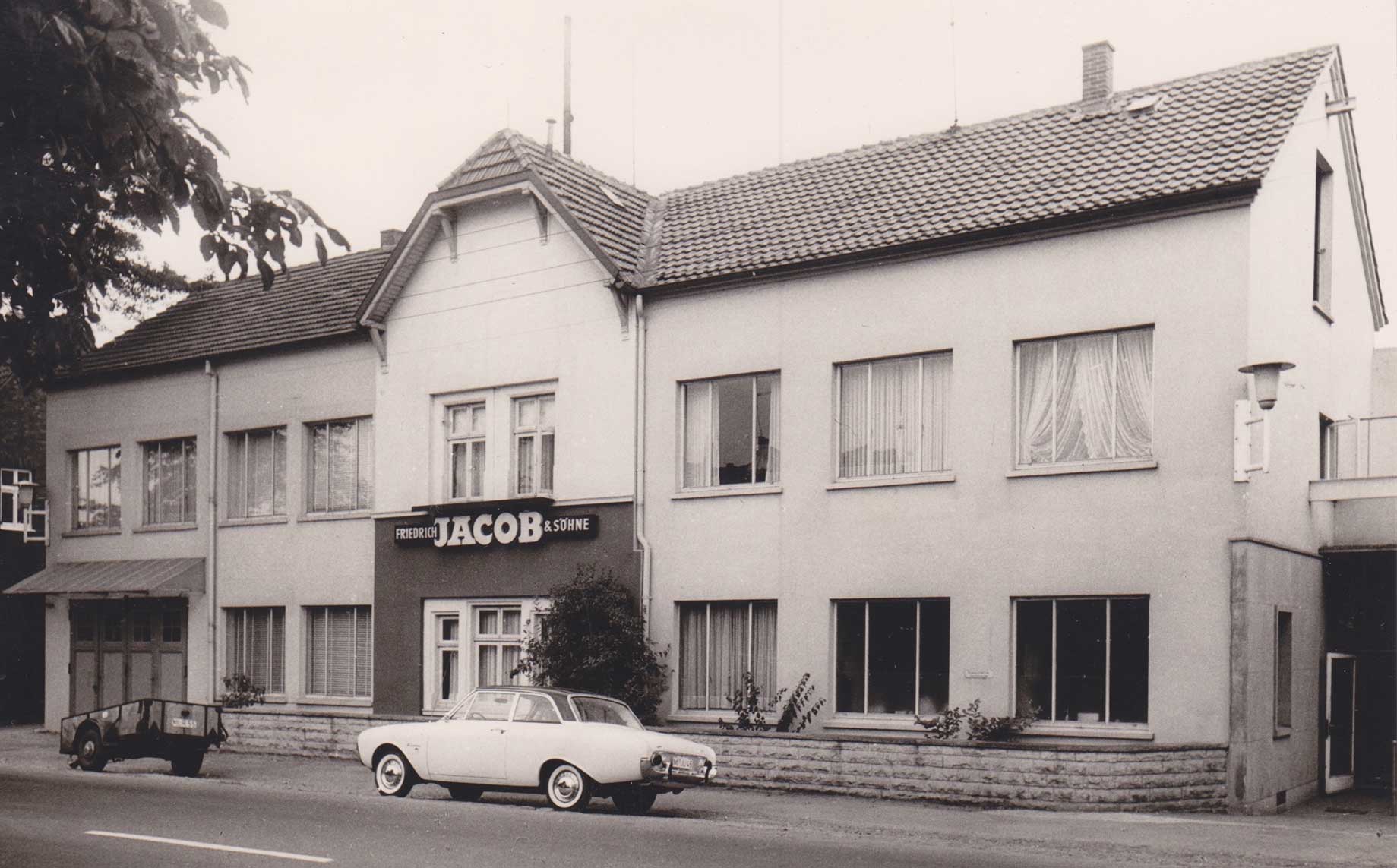
1950

From wood to metal
Key factors for growth and success in the 1950s: the conversion of small grinding mills to incorporate pneumatic conveying systems, and a change of raw material – moving away from wood. JACOB becomes a specialist in the manufacture of pipes made from sheet steel, for use in grinding mills and silo systems.
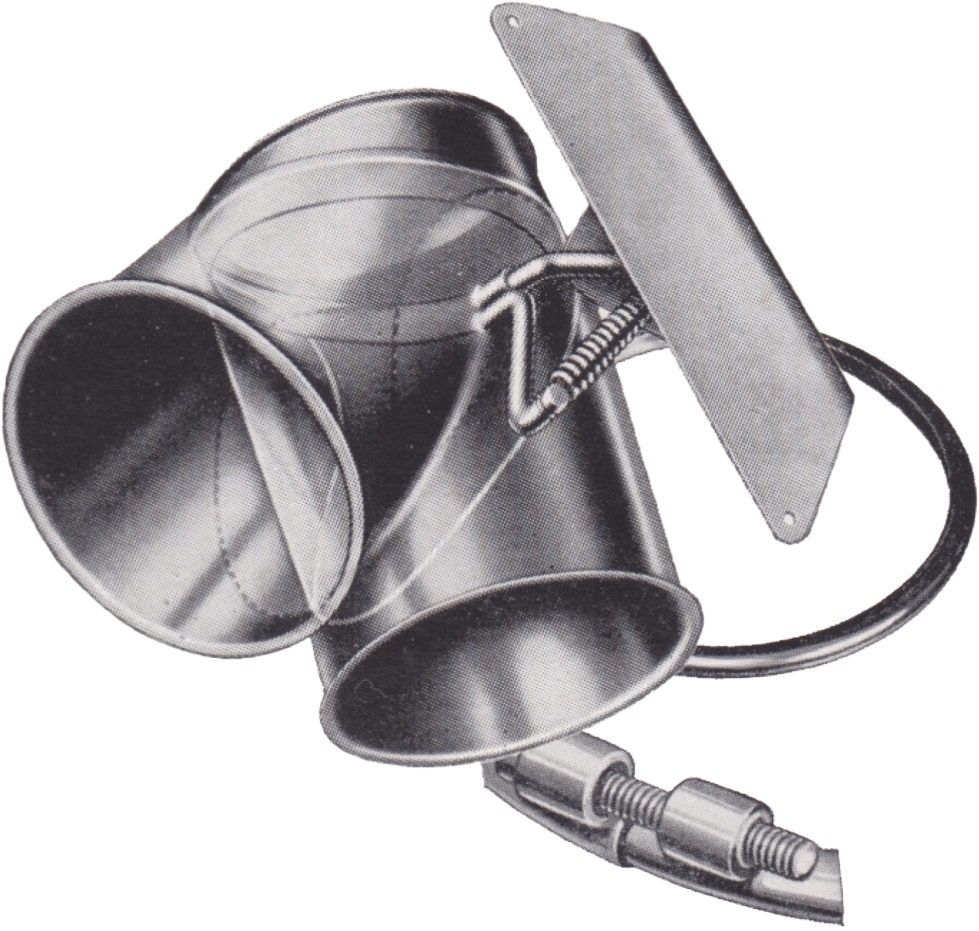
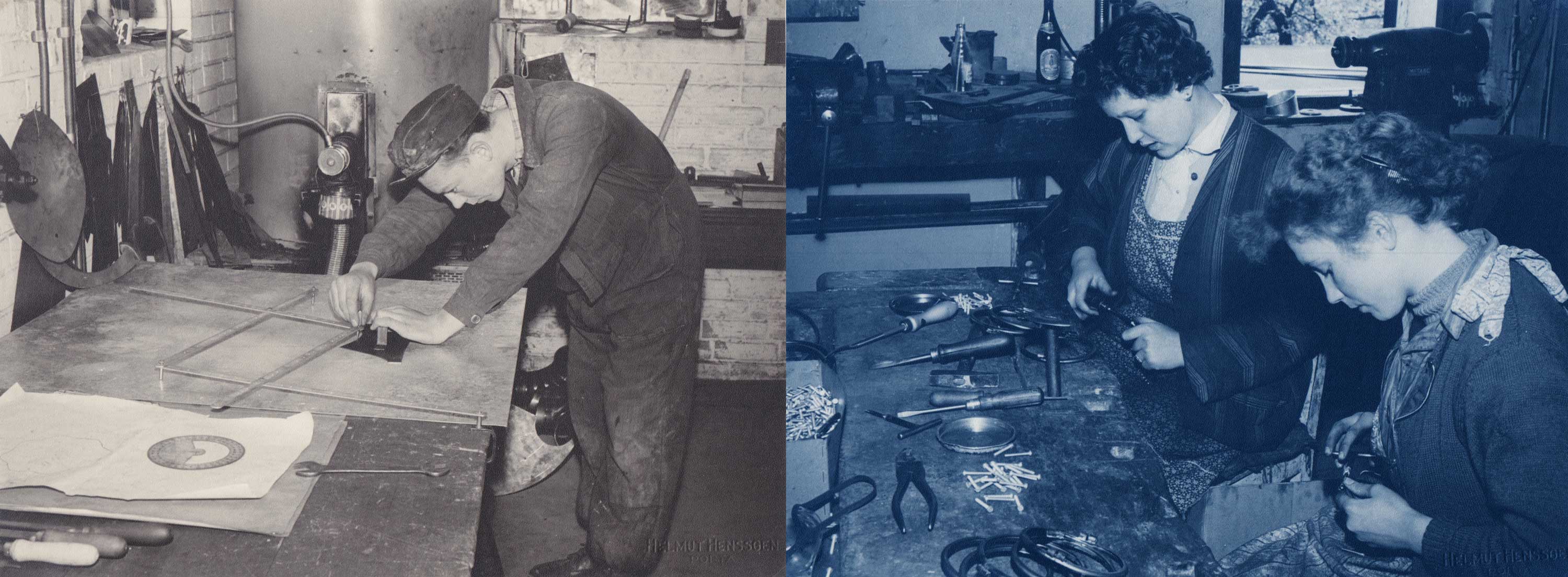
The Jacob culture
„You really felt at home. And the sense of community was amazing.”
Uwe Berkenbrink
With the company from 1973 to 2022 (starting out as a toolmaker)
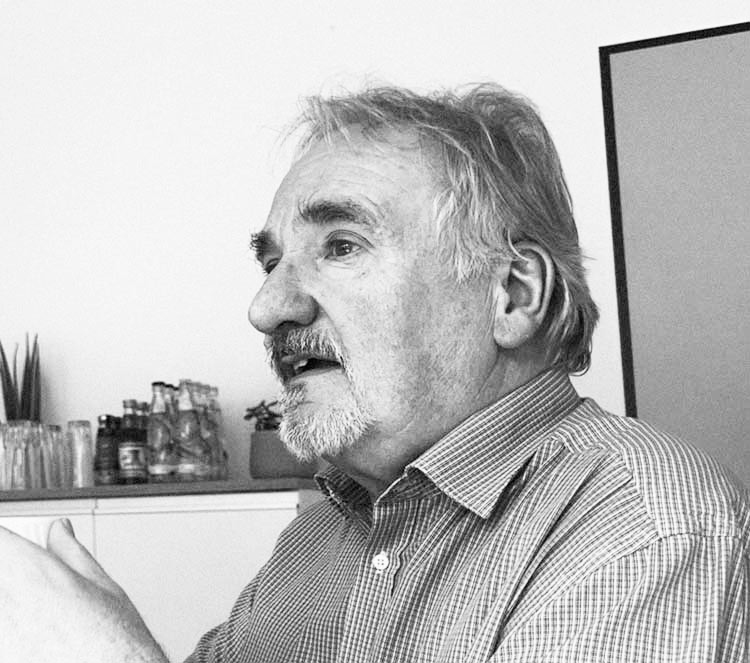
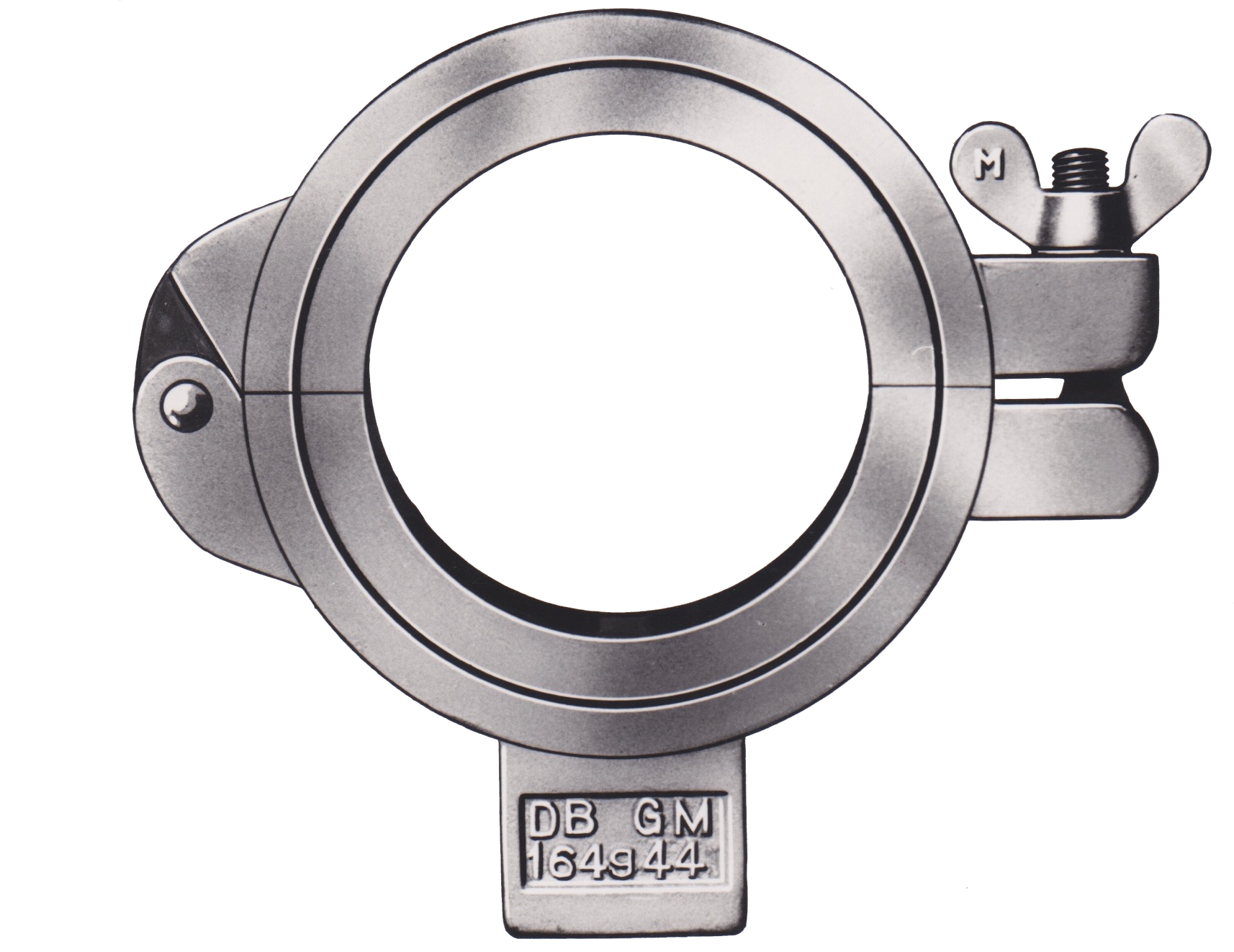
Product development goes full speed ahead
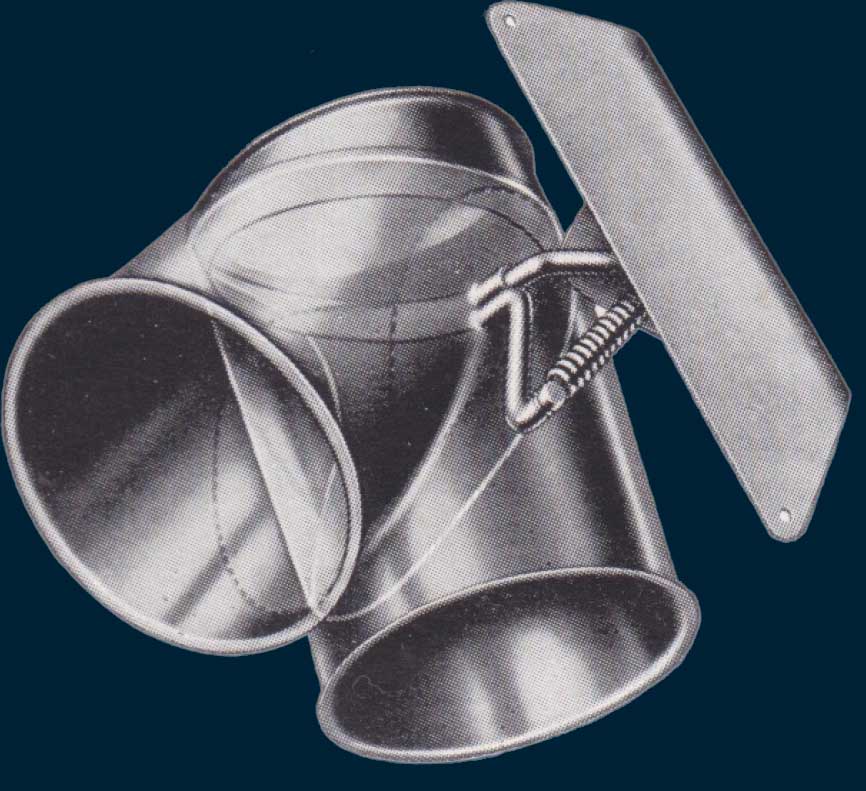
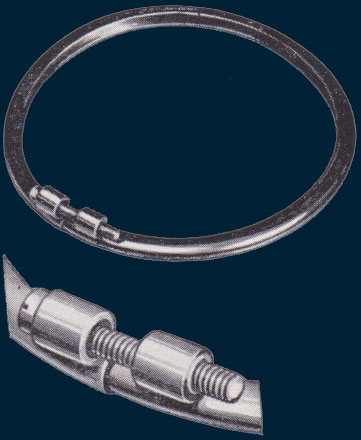
New developments include: the first pipes made of sheet metal, the JACOB two-way valve, single and double distributors, and one-piece pull-rings.
In the 1950s alone, five patents and 14 utility models were registered.
A patently innovative company
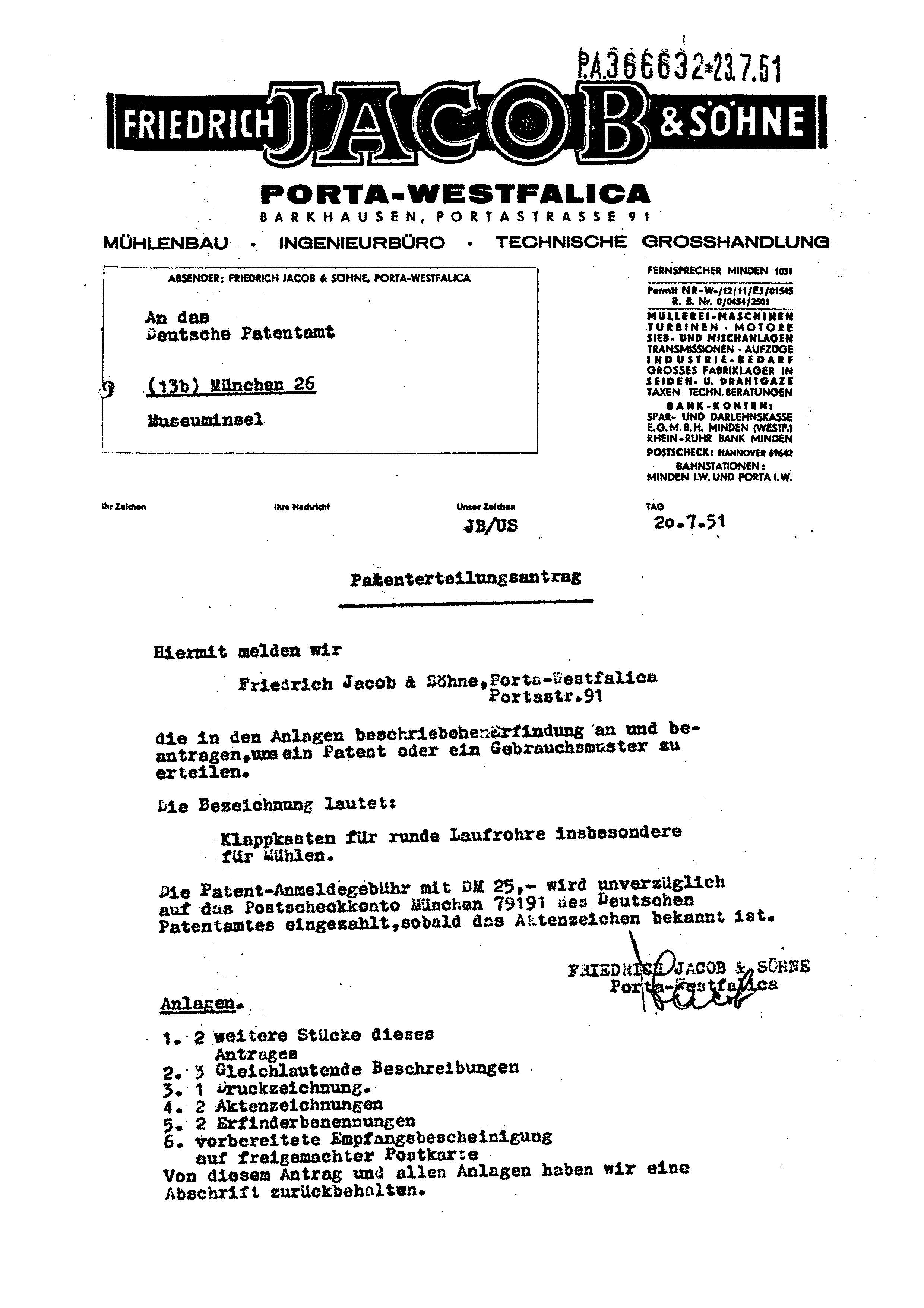
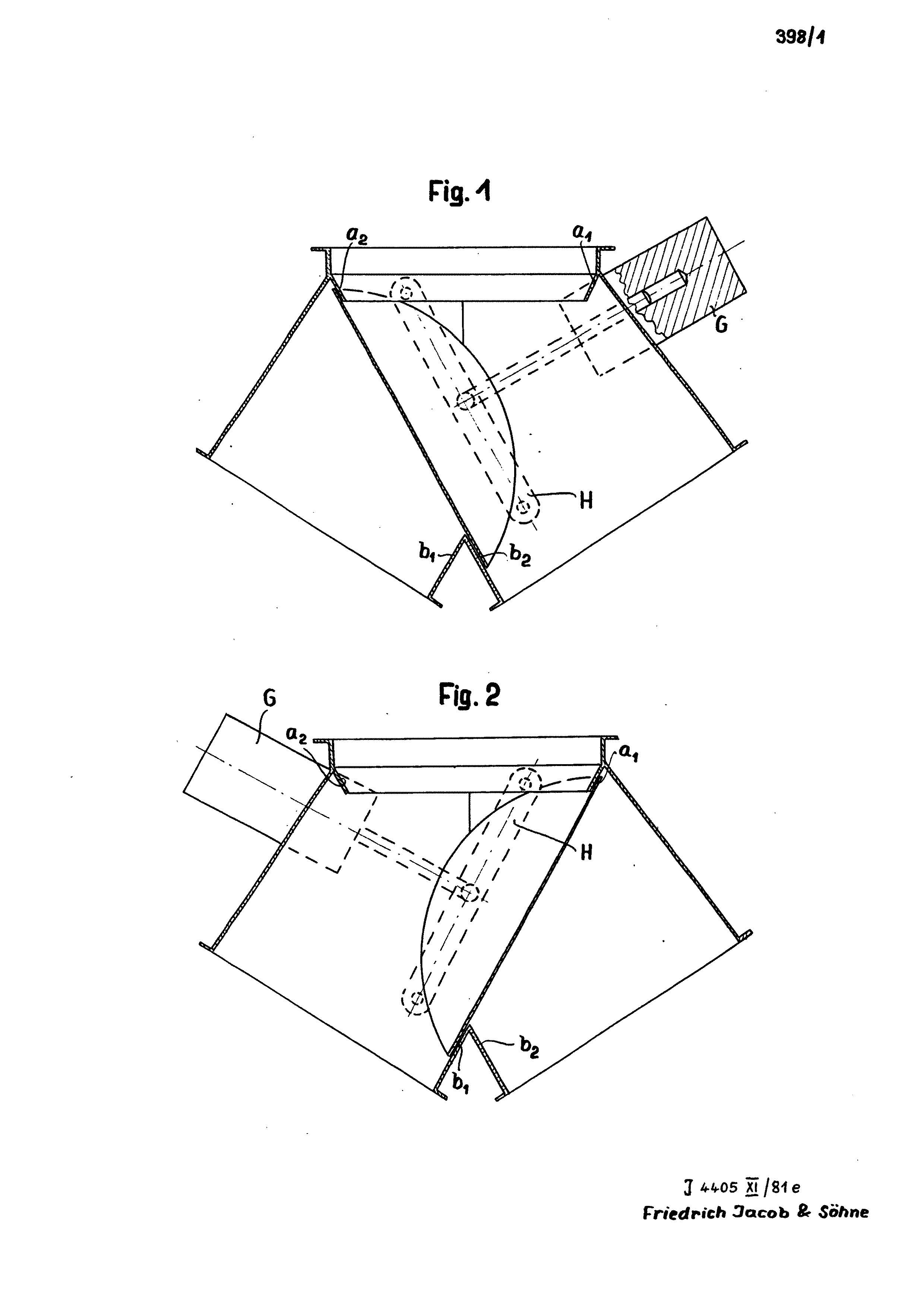
Patent application: Two-way valve for round gravity-chute pipes, 1951
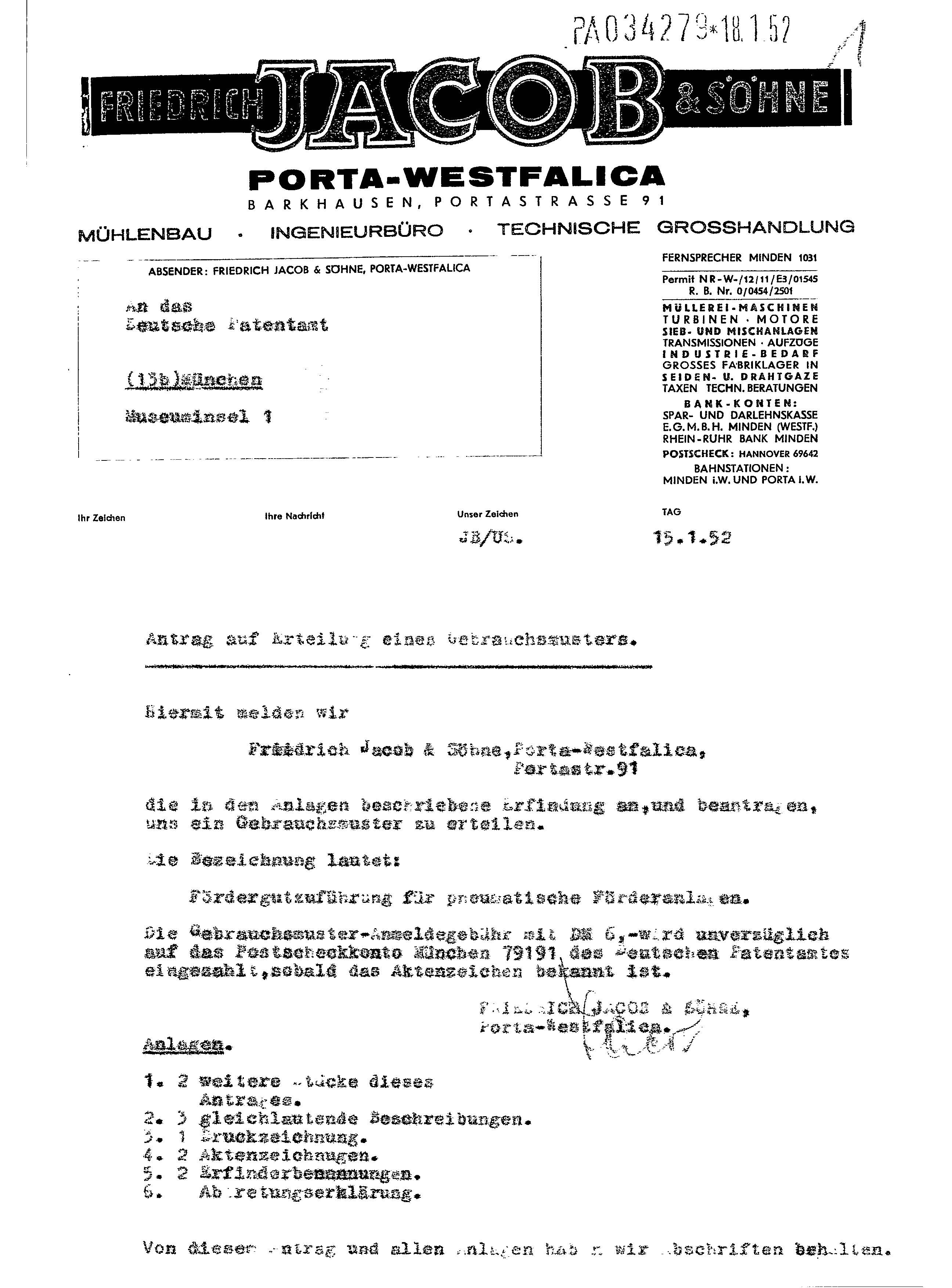
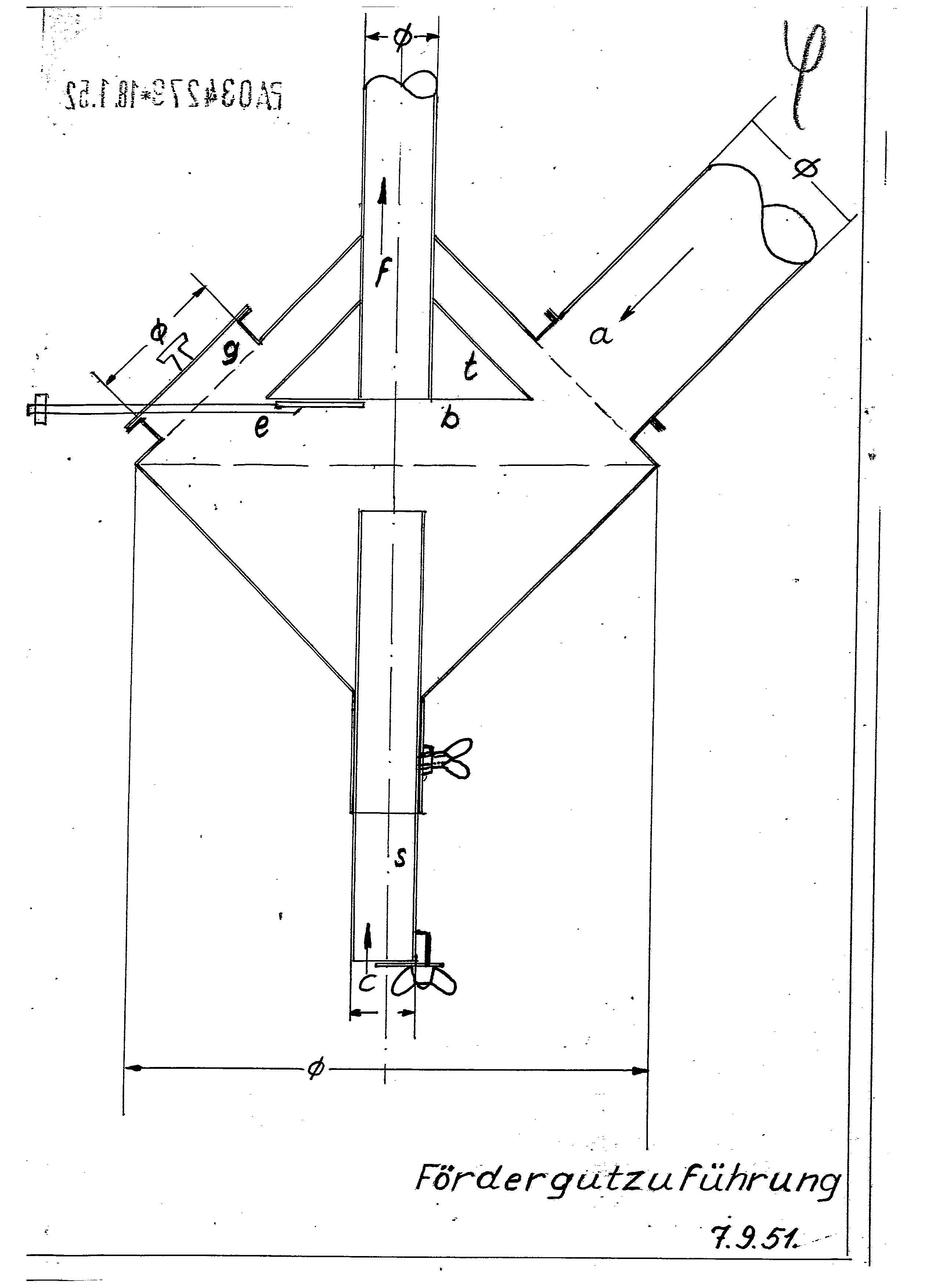
Utility model application: Infeed of bulk goods for pneumatic conveyor systems, 1952
1958
Following the founder’s death
Thanks for everything,
Friedrich
Friedrich
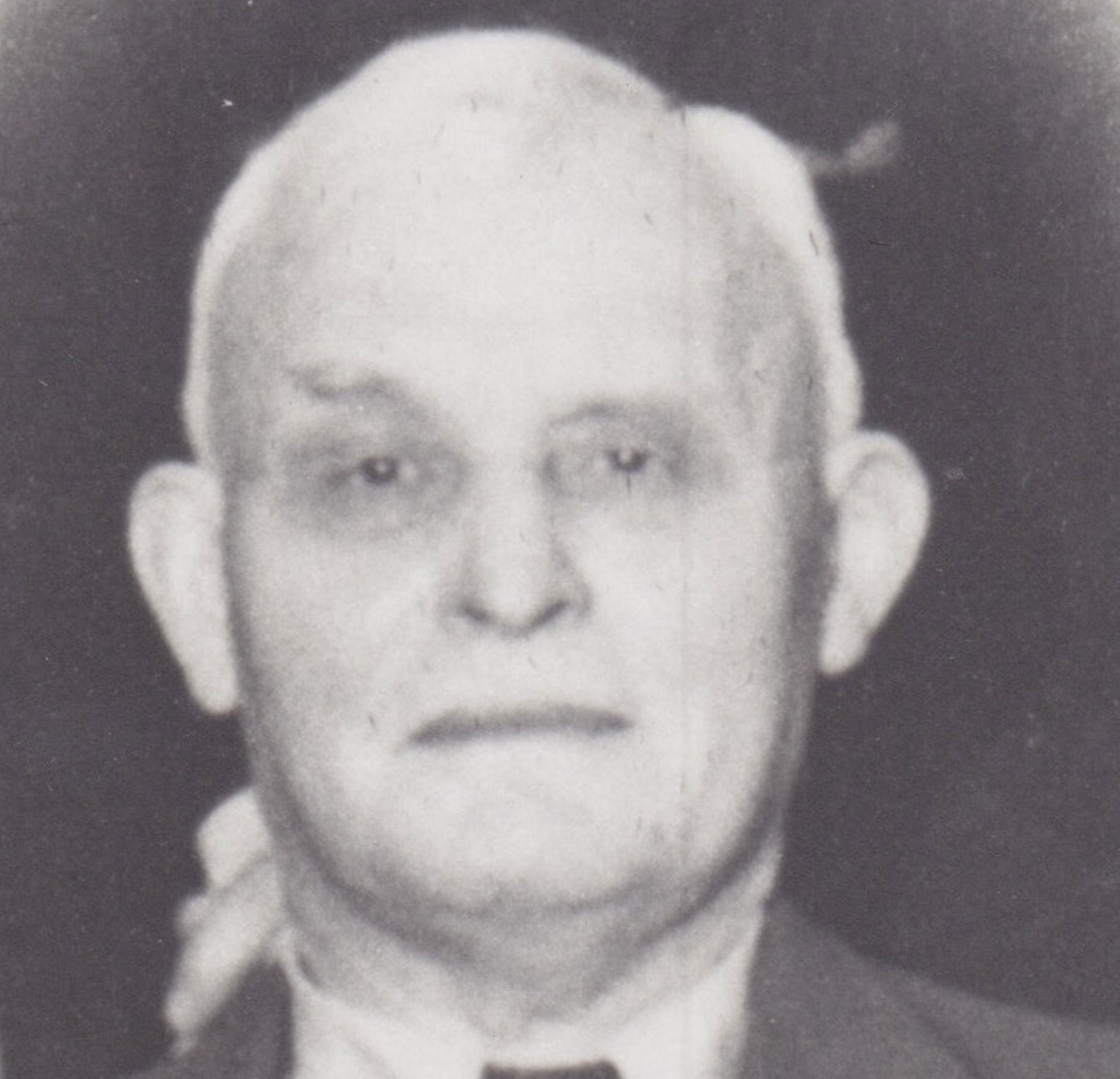
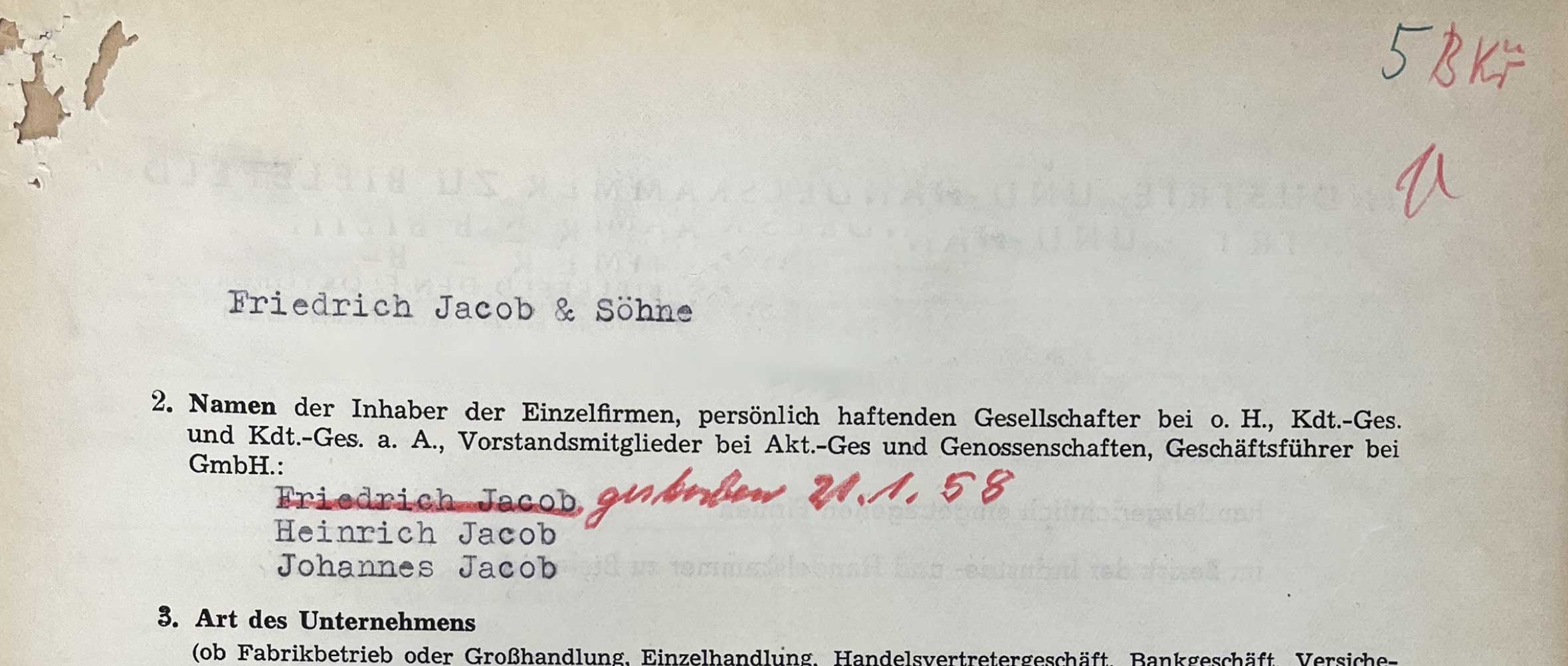
The children step up
After the death of their father, the brothers Heinrich and Johannes Jacob inherit the company and take the reins.

Heinrich and Johannes as Managing Directors
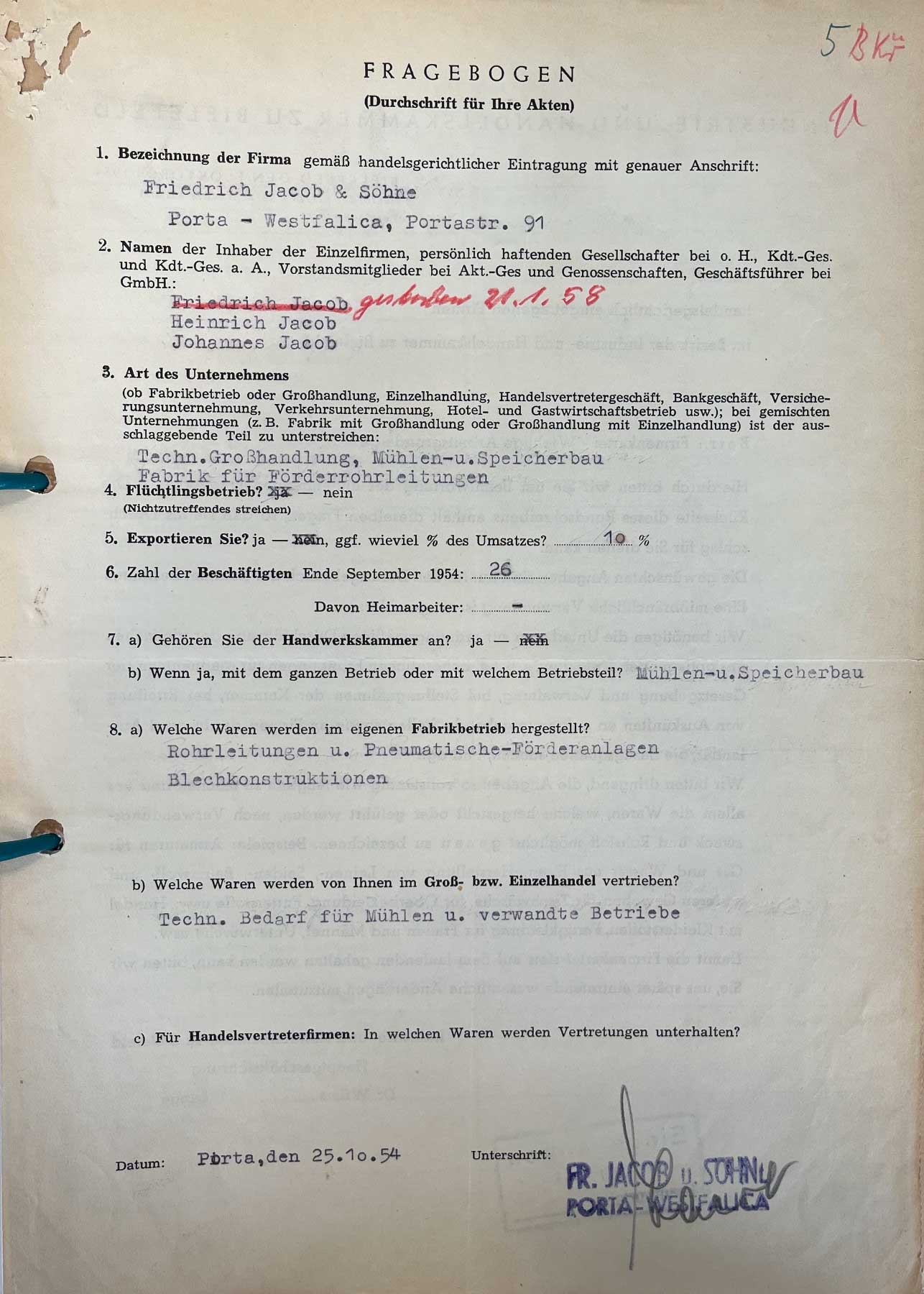
Chamber of Commerce and Industry questionnaire, 1954
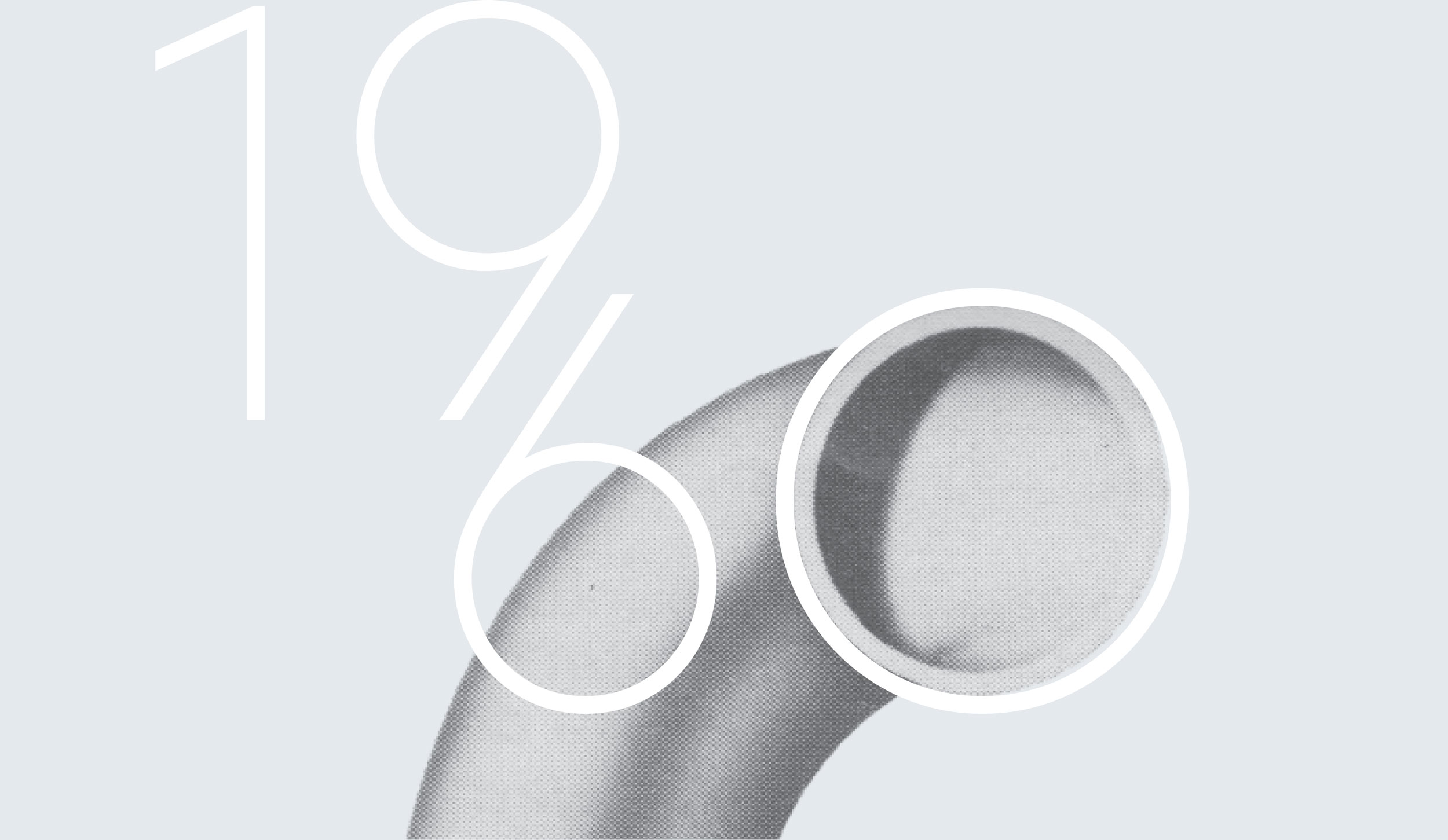
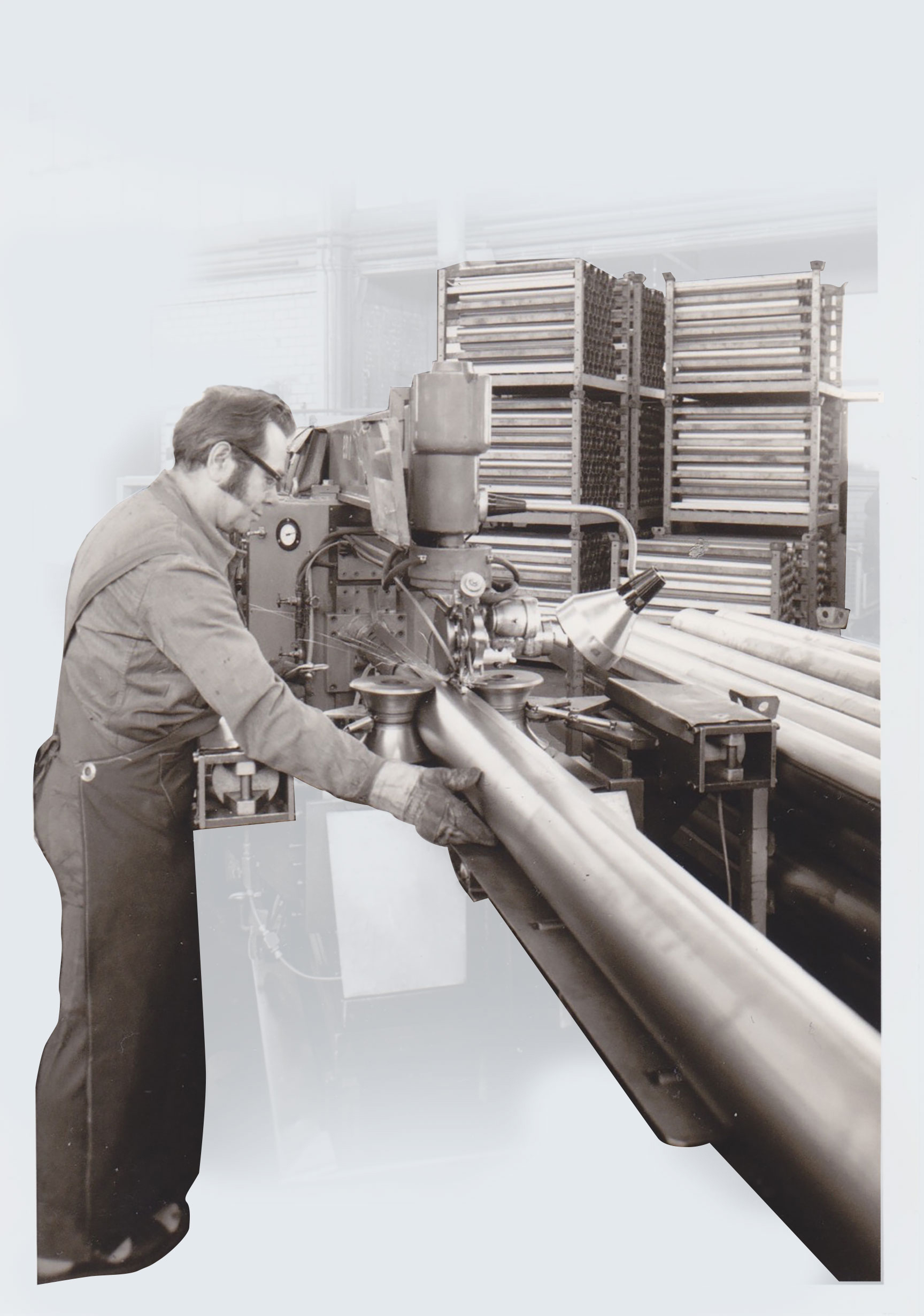
Pipes, pipes and more pipes
In the 1960s, JACOB concentrates on the manufacture of pipework systems. A particularly clever move. Mill construction companies previously in competition with JACOB now cease production and buy from JACOB instead – business booms.
What’s your guess?
What was JACOB’s turnover in 1963?
In-house vocabulary
To ensure that all the employees understand each other – quite literally – JACOB includes a few valuable tips for communication in the first edition of its company magazine, the “New Pipe-Magazine”. Special in-house “technical terms” are explained so that everyone knows the actual meaning behind specific formulations.
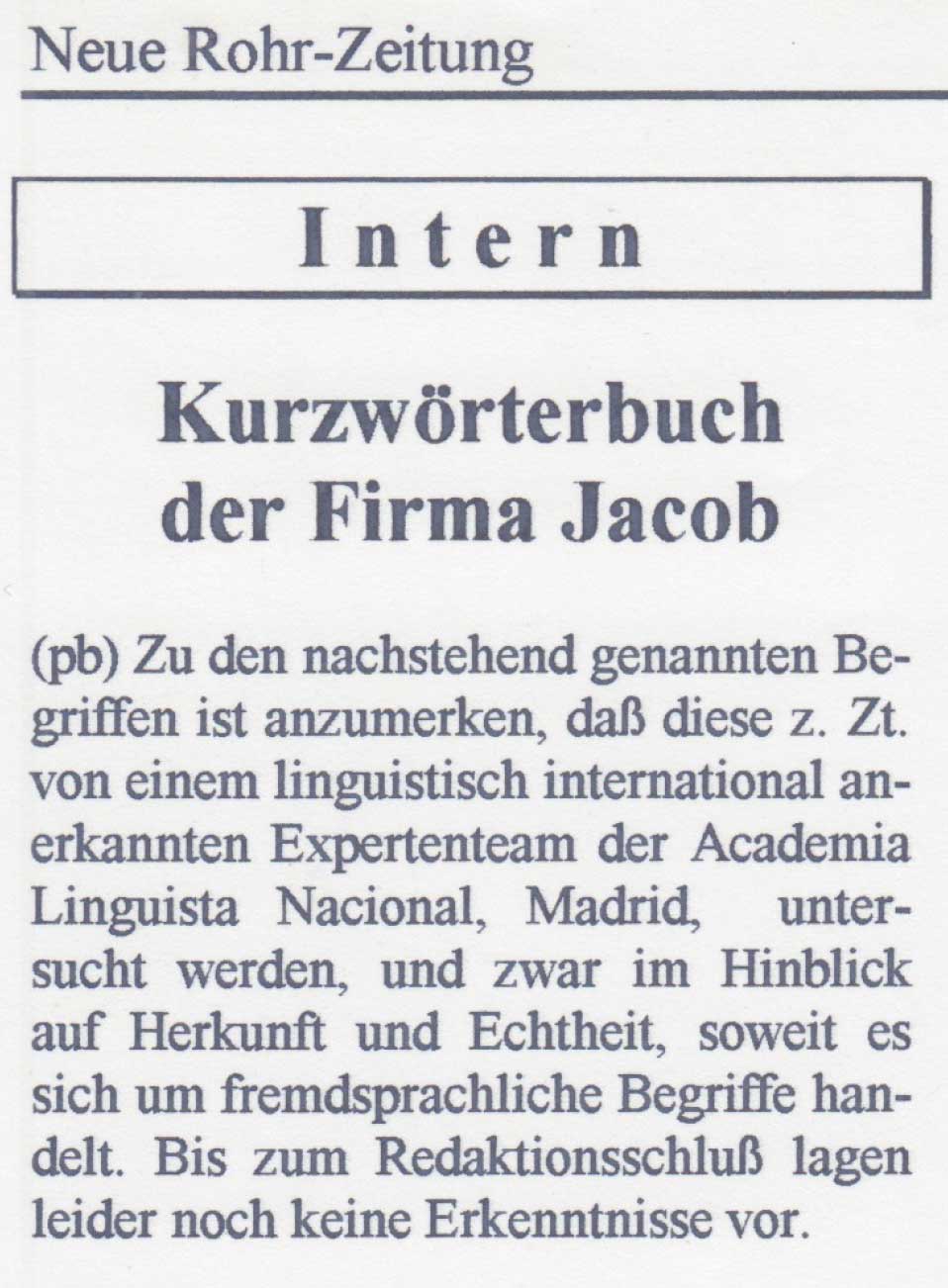
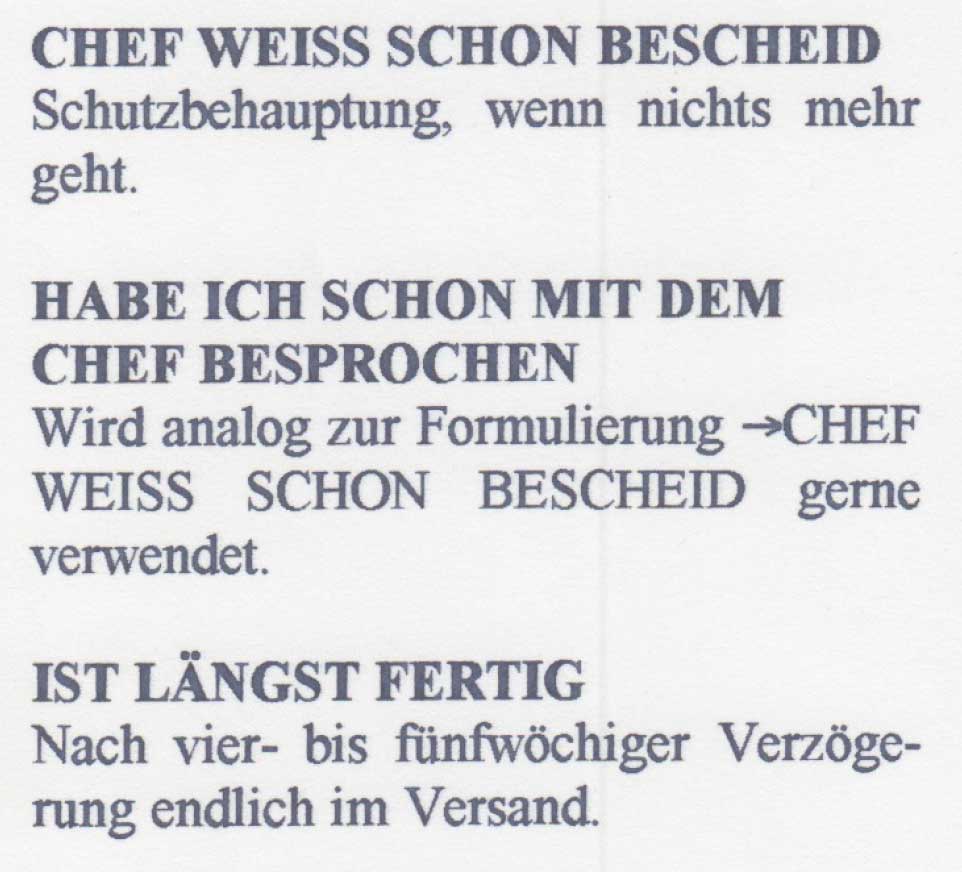


To dizzying heights



Employee numbers on the rise
The number of employees at JACOB has risen dramatically in the space of four decades.

In 1973, the oil crisis throttles the prosperous industrial run of the “Wirtschaftswunder” (economic miracle) period – sky-high oil prices, a stagnating economy, and rising unemployment figures. JACOB goes against the flow and expands. The number of employees rises to 154; the turnover increases to 795,849 DM.

Algeria
Spain
Greece
Italy
France
Great Britain
Austria
Luxemburg
Denmark
Sweden
Finland
Norway
Netherlands
Belgium
Switzerland
Limitless success
In the 1980s, JACOB is already shipping its products to numerous different countries.
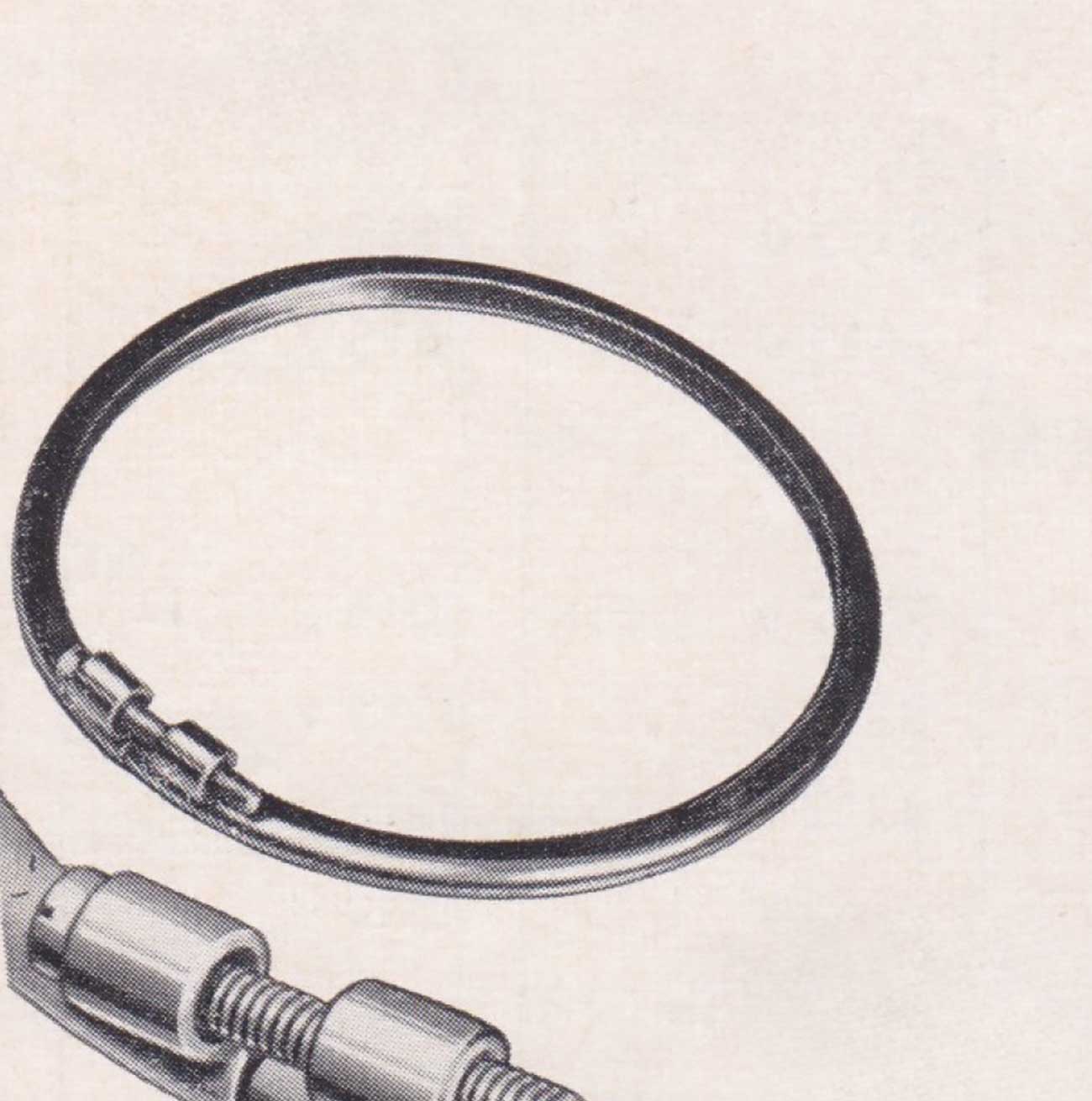
Ringing in the changes
The familiar JACOB pull-ring undergoes further development. A two-part system is created, comprising a pull-ring without sealant, and a U-shaped seal. With this combination, extremely well-sealed pipework systems can be installed for various types of application – and it is this that allows the family business to break into the general industrial market. This means that, from now on, JACOB also supplies products to the food, beverage and tobacco industry, as well as the plastics, paper and automotive industries.
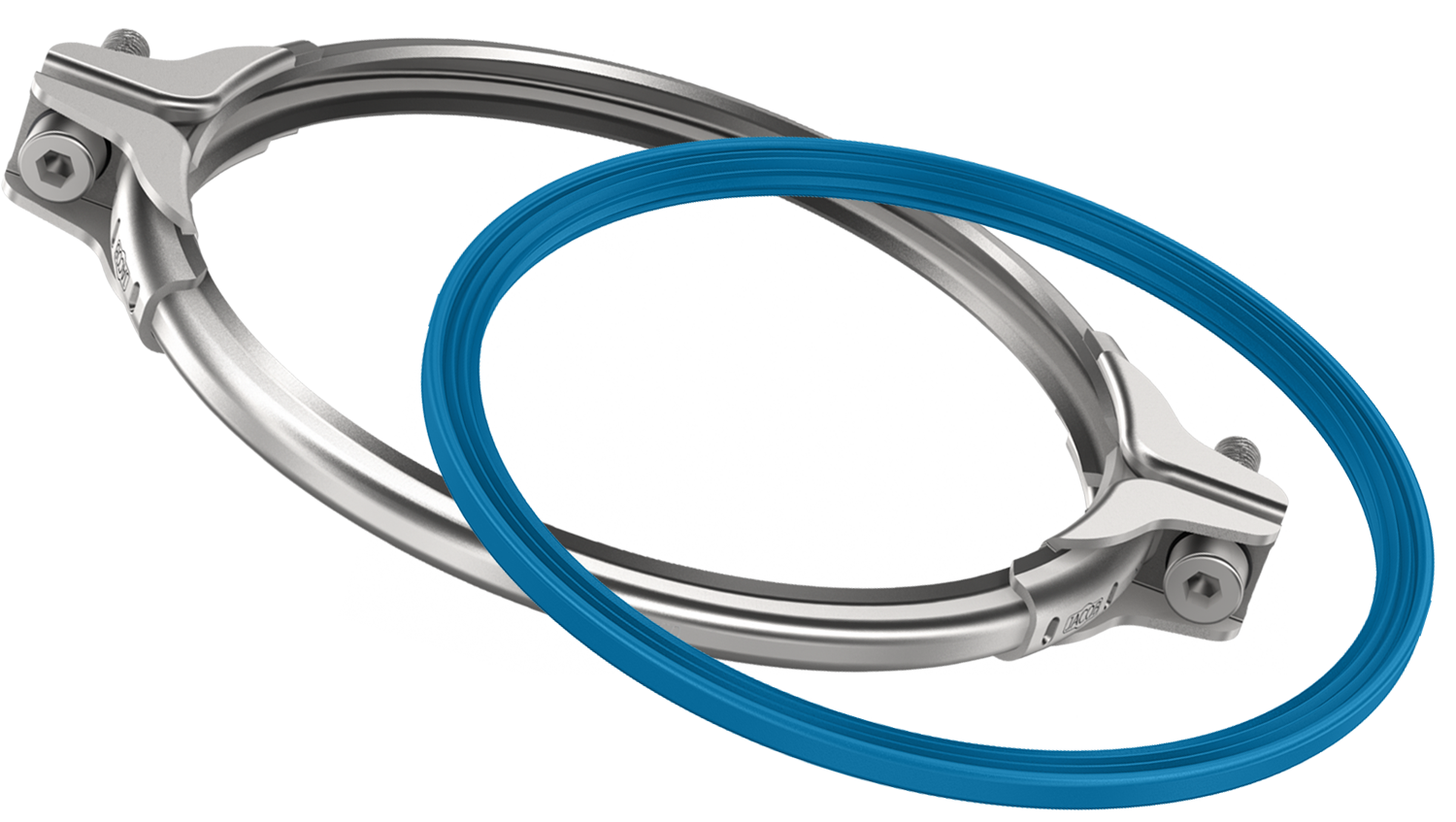
The grandchildren take control
In November 1988, Heinrich Jacob transfers his responsibilities to his son Dr Ralf Jacob. Shortly thereafter, Sigrid Bopst, née Jacob, also joins the management board. Now, the JACOB family business is being run by the third generation of the family.

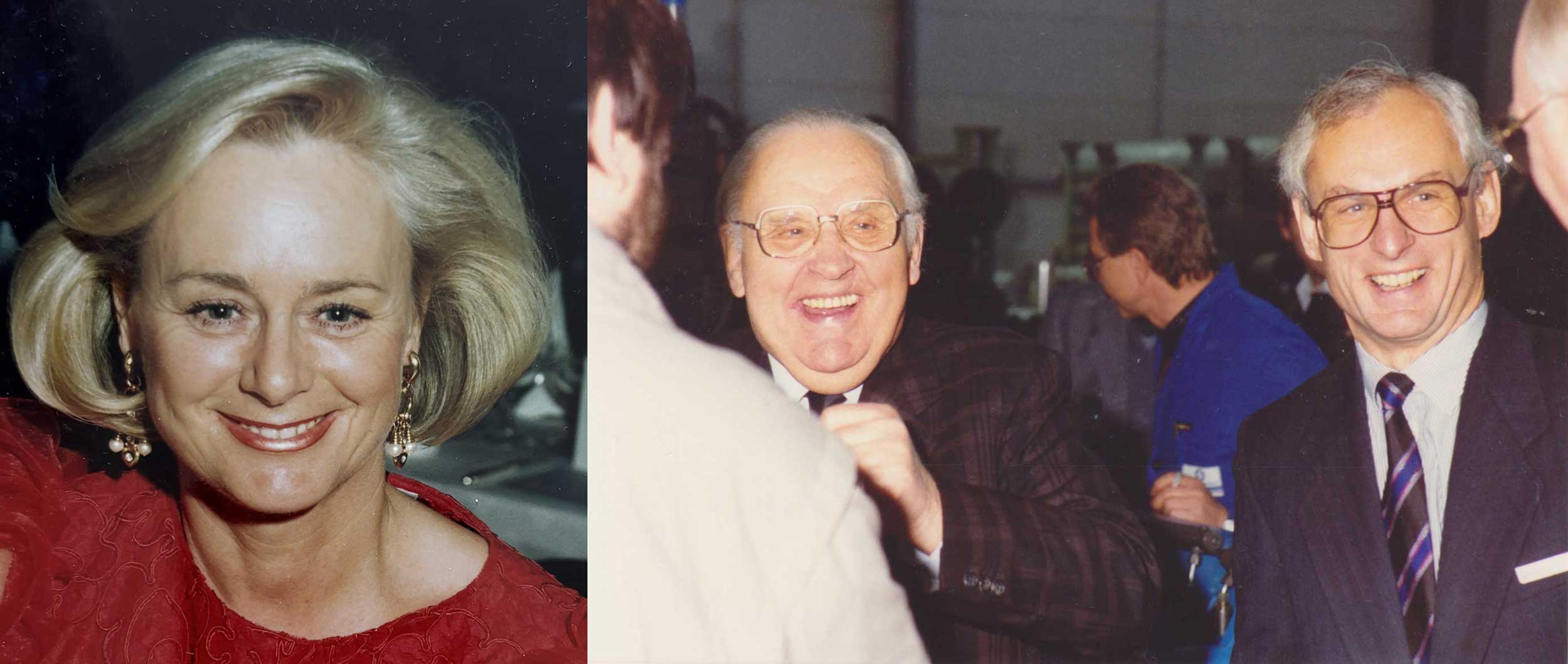
Memo
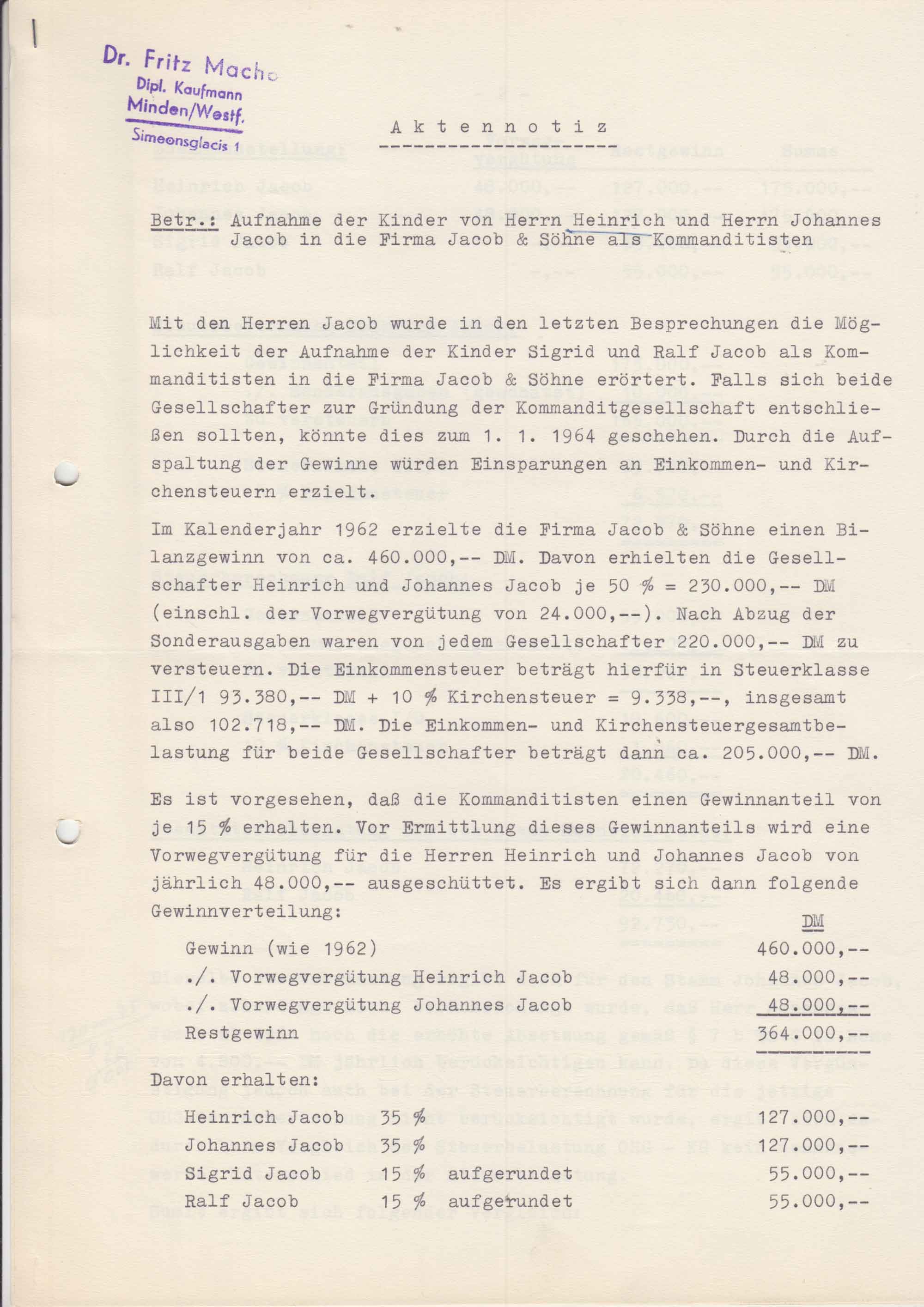
Memo regarding the admission of Dr Ralf Jacob and Sigrid Bopst to the management board, 23 Oktober 1963
About Sigrid Bopst
Sigrid Jacob, daughter of Johannes and Gertrud Jacob, is born on 11 February 1941. Sigrid’s introduction into the company is already underway in 1963, when the company owners Heinrich and Johannes Jacob toy with the idea of giving their children Ralph and Sigrid shares in JACOB.
Sigrid, a business manager, marries Dr Wolf-Dieter Bopst, who is Chairman of the Board at Osram, the light-bulb manufacturer, until 2005. Sigrid Bopst and her husband move to Feldafing on the west shore of Lake Starnberg, southwest of Munich.
Once Johannes Jacob has left the family business, Sigrid Bopst joins JACOB in May 1991 and takes on her father’s role. She runs the company with Dr Ralf Jacob until she leaves it again in December 1994. In 2018, Klaudine Gericke takes over her management duties. After the death of Sigrid Bopst in November 2001, her daughters Stephanie Bopst and Mirja Feist are in line to lead the family business as the fourth generation.
About Dr Ralf Jacob
Ralf Jacob is born on 23 March 1944. His parents, Heinrich and Ilse Jacob, make plans at an early stage to include him as a limited partner in the family business. On 4 November 1988, after gaining an economics degree and a doctorate, he is ready: Ralf Jacob takes over the management of JACOB. The family business now profits from the valuable experience he gained in the automotive industry during his many years with General Motors.
One year later, his father Heinrich steps down from the company and Dr Ralf Jacob steps us as a personally liable partner. With great vision and drive, and working with his cousin Sigrid from 1991 to 1994, he leads JACOB into a new era, and transforms the company into a global player. Subsidiaries are set up or acquired in Italy, England, France, the USA and the new German federal states – and are further developed. Under his leadership, new markets are tapped, particularly in the fields of environmental engineering and extraction, and modern production methods are introduced to ensure that the company is fit for the future.
Ralf Jacob’s warmth and interest in people are defining characteristics. He sees his employees not just as colleagues but as part of his extended family. With great sensitivity and his familiar warm-hearted style, he applies himself every day to helping his colleagues and creating a corporate culture based on team spirit and mutual support. Outside the firm, too, he is quietly committed to assisting those in need of help – always with the same dedication.
In the 2010s, Ralf Jacob is already preparing to hand over control to the fourth generation. In April 2012, his son Patrick joins the management board. Ralf Jacob passes away on 22 April 2019. We all wish, with all our hearts, that he could have been here to celebrate JACOB’s 100-year anniversary with us.

What’s your guess?
Who is a guest at every staff wedding at JACOB?
Finally back together
1990

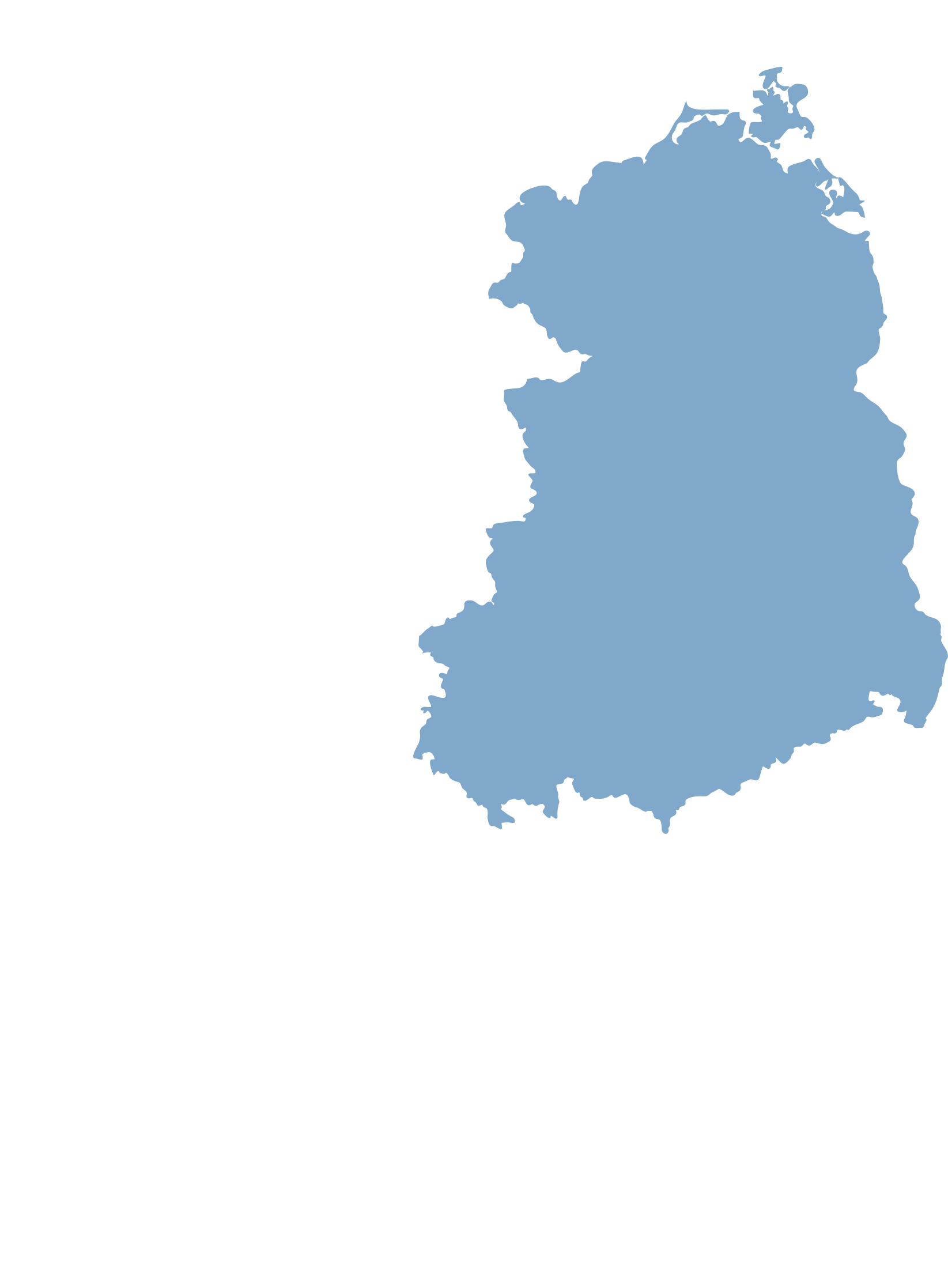
1991
The first subsidiary – a child born of Germany’s reunification
New opportunities arise for the pipework system manufacturer after the reunification of Germany and the fall of the “iron curtain”. JACOB acquires the company Landhandel Gransee in the state of Brandenburg, and thus establishes its first subsidiary in Eastern Germany – Lufttechnik Gransee GmbH. The newly inducted colleagues are real experts in the field of dust extraction. This provides a stepping stone for JACOB to move into new business areas in the field of environmental engineering.



The subsidiaries at a glance
EUROTUBI S.r.I.
EUROTUBI is founded in 1995 in Borgofranco Po, Italy, as a subsidiary of the JACOB Group. With three automated pipe production lines and a 65-strong team, the company manufactures pipes up to 12 m in length. In Italy, various types of steel are processed, including complex and even hardened steels. EUROTUBI also has ultra-modern machinery, with several pipe lasers and robots, and a large, modern pipe storage facility. The result: customer satisfaction, and growth. This is what makes EUROTUBI one of today’s leading manufacturers of precision-welded steel pipes, which it produces and stores at its 20,000-square-metre facility before shipping them to more than 40 countries.
JACOB DOSATEC Sarl
In 1998, JACOB opens its sales company in France. After moving to new offices on the outskirts of Paris, the team of eight at JACOB DOSATEC now successfully markets tailor-made pipework systems throughout France. With its high level of technical expertise, professionalism and passion, the team is well equipped to meet the wide-ranging needs of customers.
JACOB Tubing L.P.
JACOB Tubing is also founded in 1998. Headquarters: Memphis, Tennessee (USA). Starting as a purely sales and marketing operation with just three members of staff covering North, Central and South America, the company quickly evolves. A production facility is established, a team of engineers joins the company, and an in-house marketing department is set up. The production capacity is continuously expanded – with great success. Today, the company employs 38 people, who produce most of the products from JACOB’s portfolio locally, in the USA.
JACOB Limited
In 2001, JACOB sets up its JACOB (UK) Limited subsidiary. Its idyllic headquarters can be found in the historic market town of Church Stretton, at the foot of the Shropshire Hills and the Long Mynd plateau. Today the team is eleven strong and takes care of sales, equipment, finance, marketing and warehousing, to meet the growing demand in Great Britain and Ireland. Standard products are supplied, but also customer-specific solutions, which in some cases are manufactured in the company’s own throttle valve workshop.


JACOB in full flow
In the 1990s, JACOB develops to become Europe’s most important manufacturer of pipework systems. The “everything to do with grains” segment remains in the portfolio, but the highest turnover comes from products for bulk goods handling and other industries, as well as products for dust extraction and exhaust systems in environmental engineering applications.
240
employees
30,000 sqm
of factory floor
43 million DM
turnover
















Exciting new innovation
The new Quick Connect pull-ring makes the assembly of JACOB pipework systems even more cost-effective.

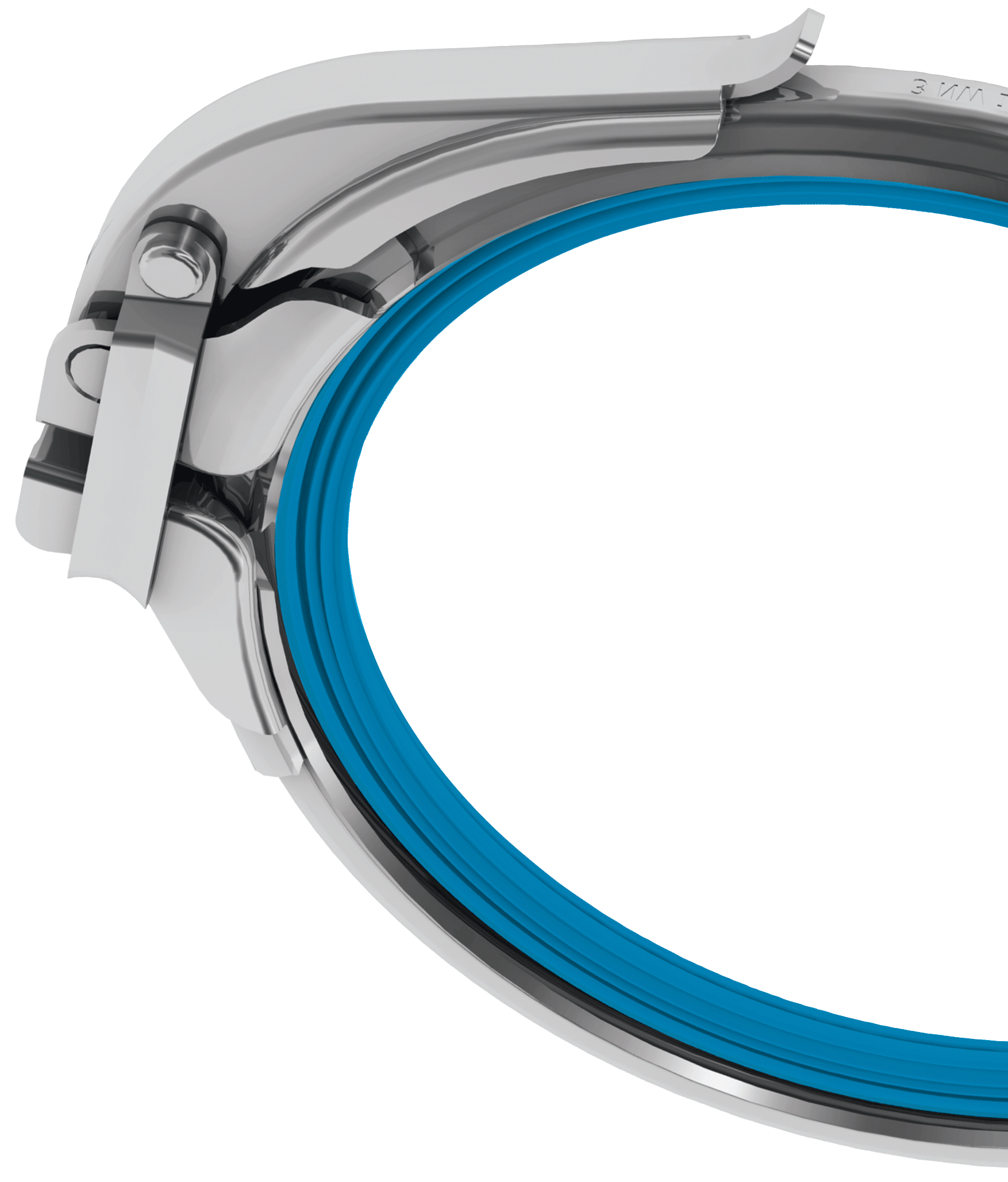
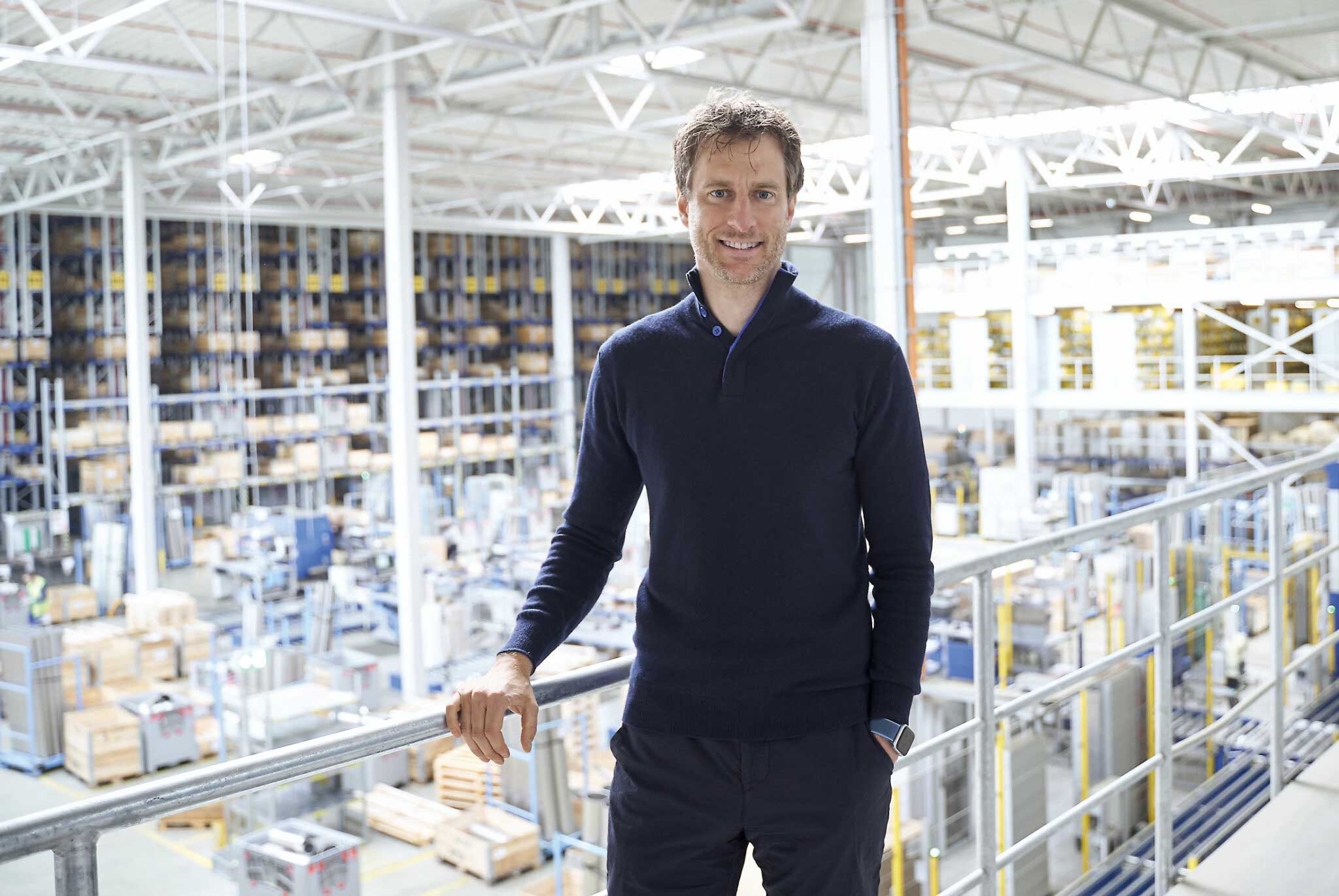
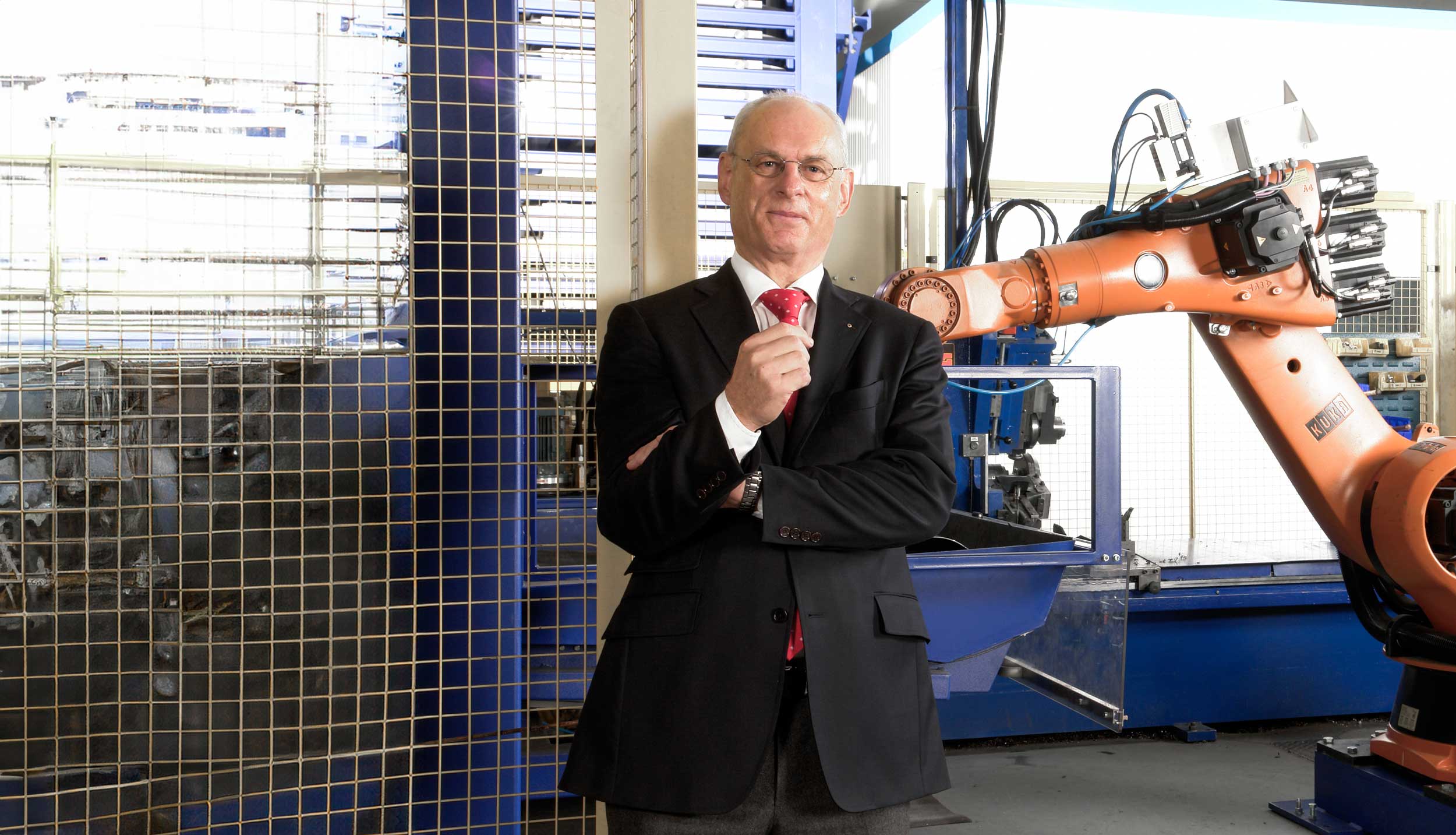
2012

The great-grandson takes over
Update Loading
Dr Ralf Jacob passes the baton to his son Patrick. So now the great-grandson of Friedrich Jacob is managing the business. The company takes in a breath of fresh air. No more neckties. Everyone is on first-name terms. The atmosphere is relaxed and friendly. New experiments are welcomed – even outside the usual working day. Examples? With pleasure! The idea of painting cool graffiti on the company building is considered. Trainees work with well-known YouTubers and build the craziest things. Employees can let their creativity run wild and use the 3D printer to realise their ideas. Things are changing at JACOB – and the change is palpable.

About Patrick Jacob
Hi! I am Patrick – a passionate single parent of three wonderful kids: Philippa, Helena and Felix. I have been running our family business in the fourth generation for more than twelve years now, with a great deal of gratitude, passion and unwavering commitment. Every day, my fantastic team and I work together to make our company fit for the next 100 years.
Before I joined the family business, I lived and worked for ten thrilling years in London and Frankfurt, in the financial sector. This period made a lasting impression on my world view and my idea of what is of real importance in life. In particular, it gave me a vivid reminder that (unlike in the financial sector) it is always the people that matter. And we need to inspire them and take care of them if we want to succeed.
I believe in a corporate culture based on appreciation, a flat hierarchy and a cool team – a team that works on projects that really drive us forward. Who actually dreams of making “pipes” in “Minden”? In order to attract young talent to our company, we have created a unique, relaxed culture that is a little bit different. We dare to try out new things, experiment, perhaps take a tumble now and then, but always get back on our feet and try to do things better – and always as part of a team, on first-name terms and on an equal footing.

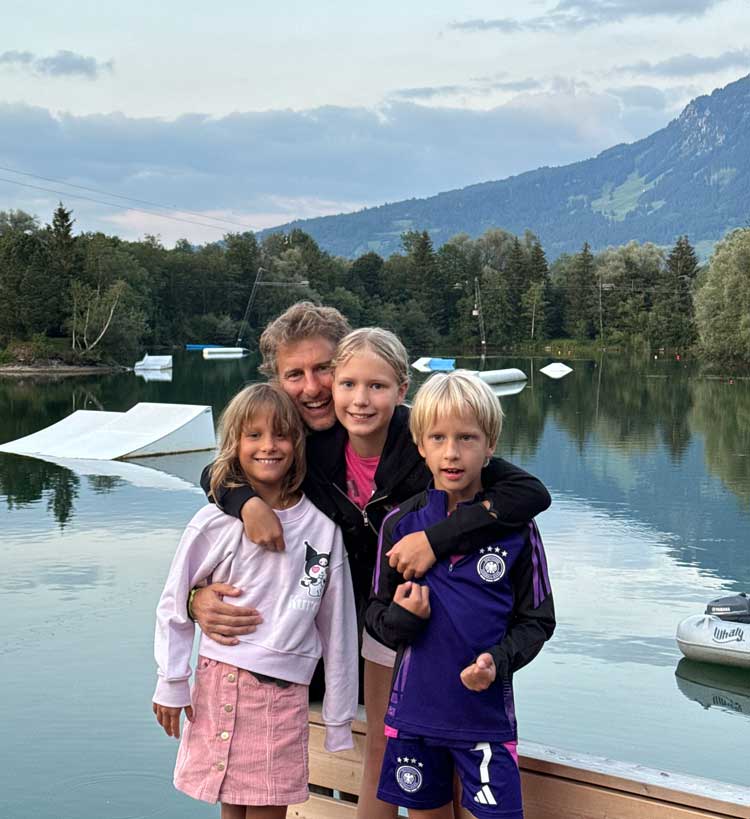
When I am not at the company, I love to spend time with my children – whether at the stables with our pony Caspar Kunterbunt, on the football pitch, or outdoors in the countryside. I am also a fan of outdoor sports and am an advocate for children and their health, as well as campaigning against discrimination and marginalisation.

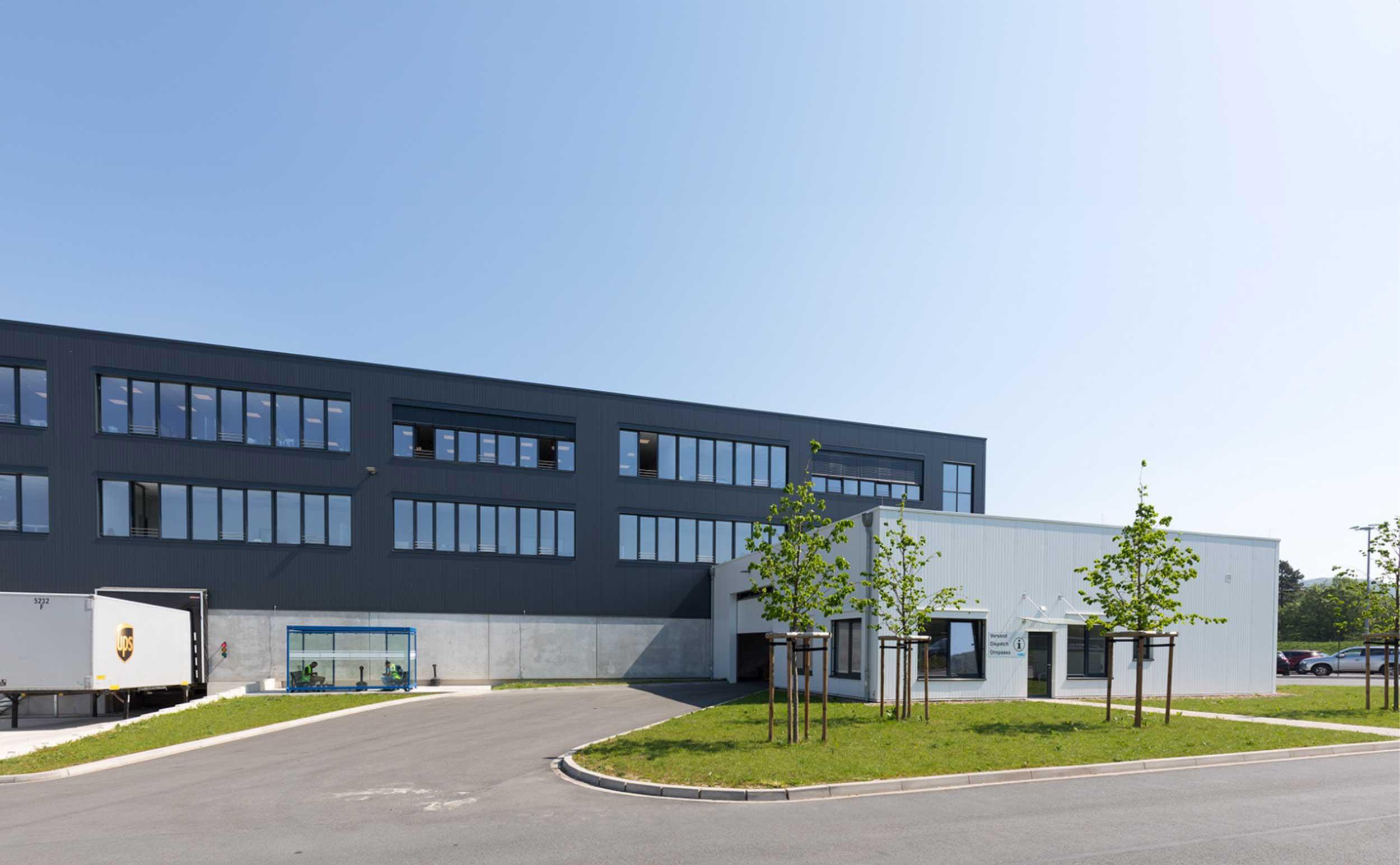
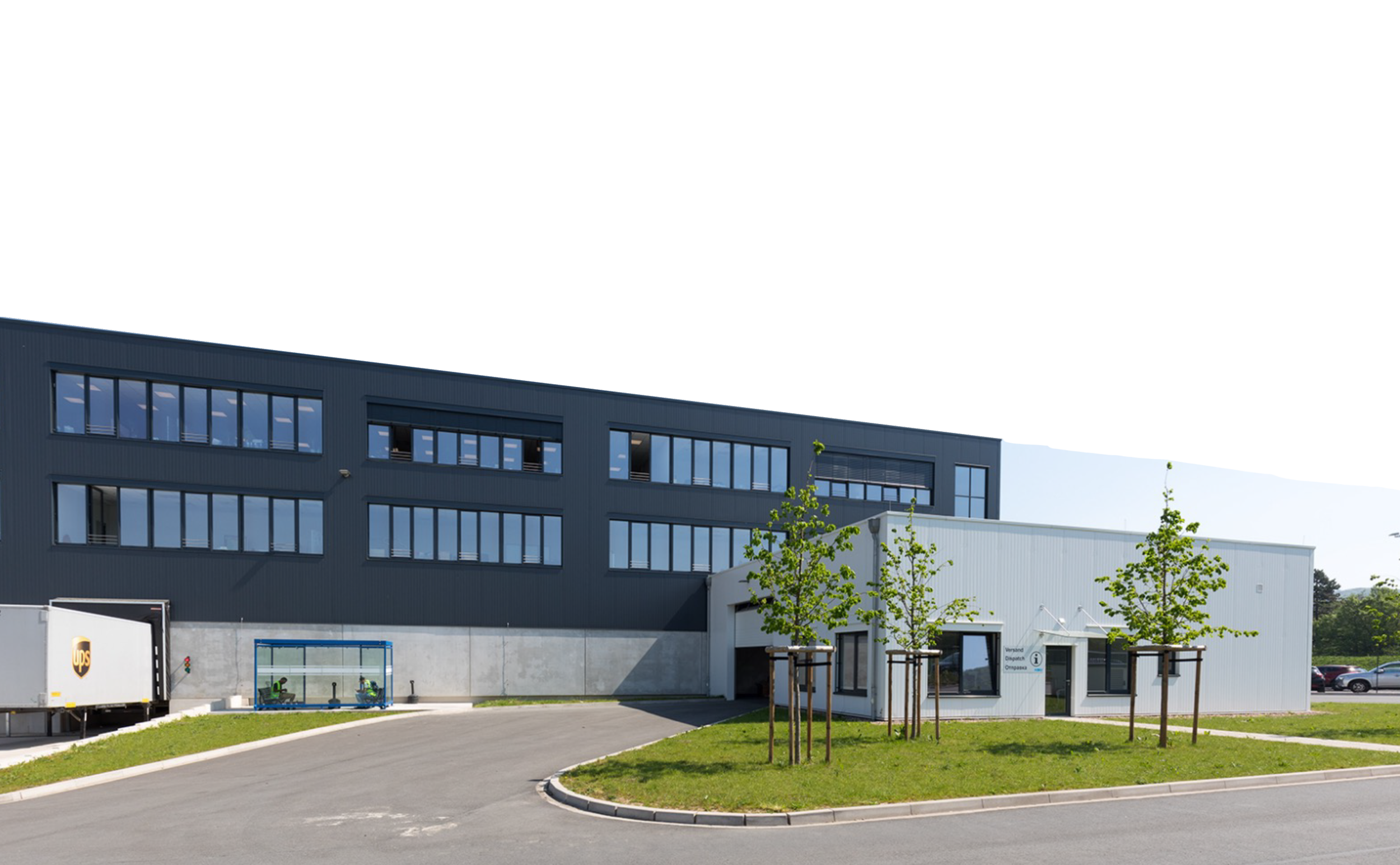
20New
17
New
dimensions
17
JACOB sets a new benchmark with the construction of its new logistics centre in Barkhausen. Around 1,000,000 parts are stored in 17,100 pallet spaces across an area of about 9,000 square metres, at heights of up to 21 metres. Investment: 15 million euros. Could our founder Friedrich Jacob have conceived of this in his wildest dreams? One thing is certain, in any case, and that is that he would be proud of his great-grandson Patrick and his entire team.
One duo, one mission
In 2014, Klaudine Gericke joins the team. From 2018 onwards, she and Patrick Jacob make up the company’s management team. This formidable duo is in agreement: “Everything always begins with the people: this has been our conviction ever since Friedrich Jacob set up the company 100 years ago. It is the people who work as a team and are the beating heart of the JACOB company. They form the nucleus for everything that we do, strive towards and achieve. Our success rests on our friendly spirit of solidarity, which we value, cultivate and embrace as a central corporate principle. Nothing has changed in this regard, even if we adopt a more modern interpretation of our philosophy as new challenges arise. Because one thing is clear: everything not only begins with the people, but also continues with the people.”
In 2014, Klaudine Gericke joins the team. From 2018 onwards, she and Patrick Jacob make up the company’s management team. This formidable duo is in agreement: “Everything always begins with the people: this has been our conviction ever since Friedrich Jacob set up the company 100 years ago. It is the people who work as a team and are the beating heart of the JACOB company. They form the nucleus for everything that we do, strive towards and achieve. Our success rests on our friendly spirit of solidarity, which we value, cultivate and embrace as a central corporate principle. Nothing has changed in this regard, even if we adopt a more modern interpretation of our philosophy as new challenges arise. Because one thing is clear: everything not only begins with the people, but also continues with the people.”

About Klaudine Gericke
Klaudine came to the company ten years ago and since then has raised the HR department to a new level. With her wide-ranging experience and expertise, she is a valuable addition to our team. After just four years, Klaudine is asked to join the management team and represent the Bopst family as Managing Director. Today, Klaudine is responsible for a total of more than 650 employees, at our headquarters and in our subsidiaries, and runs the family business in partnership with Patrick.
Klaudine had already gained extensive experience in various HR jobs in the automotive industry before she came to us. Personal development, employee satisfaction and the development of organisations are topics of special importance to her.
Strong team,
strong bonds
New addition to generate more growth
In December 2019, JACOB establishes its sixth subsidiary – JACOB Systems S.R.O., based in Zlín in the Czech Republic. JACOB’s new subsidiary provides a basis from which to expand sales channels throughout Eastern Europe and thus to ensure further growth for the family business. The facts speak for themselves: in 2021, the JACOB subsidiary systematically sets up sales channels in Croatia and other Balkan countries – the team continues to grow and moves into bigger premises.

since
1924
1924
Always in a state of flux –
yesterday, today, tomorrow
yesterday, today, tomorrow
Just do it!
This is our ethos.
The corporate culture at JACOB has always been in a state of flux. Changes are seen as opportunities. Try out new things, make mistakes, improve together – this is the ethos. The experiment with cobots is an example of this. Another example is the design of precision-fit pipework systems using HoloLens technology. Even though the latter is still just a prototype, one thing is clear: the family-run company and its staff today are already thinking about tomorrow’s pioneering solutions.
The Transformation Office
A place for trailblazing ideas
In the “Transformation Office”, staff work together on innovative solutions for today and tomorrow. Whether this involves partnerships with start-ups, or the development of new business models, prototypes or technologies: JACOB’s employees are actively involved in development processes within a framework of events and programmes. Here, the different experiences and types of expertise from various departments can come together, and creative ideas from people with different viewpoints come to the melting pot. And, of course, networking with universities, business incubators and other organisations is also important. Indeed, this combination is our secret winning formula for developing pioneering solutions in the Transformation Office – and for maintaining a corporate culture of collaboration and creativity at JACOB.
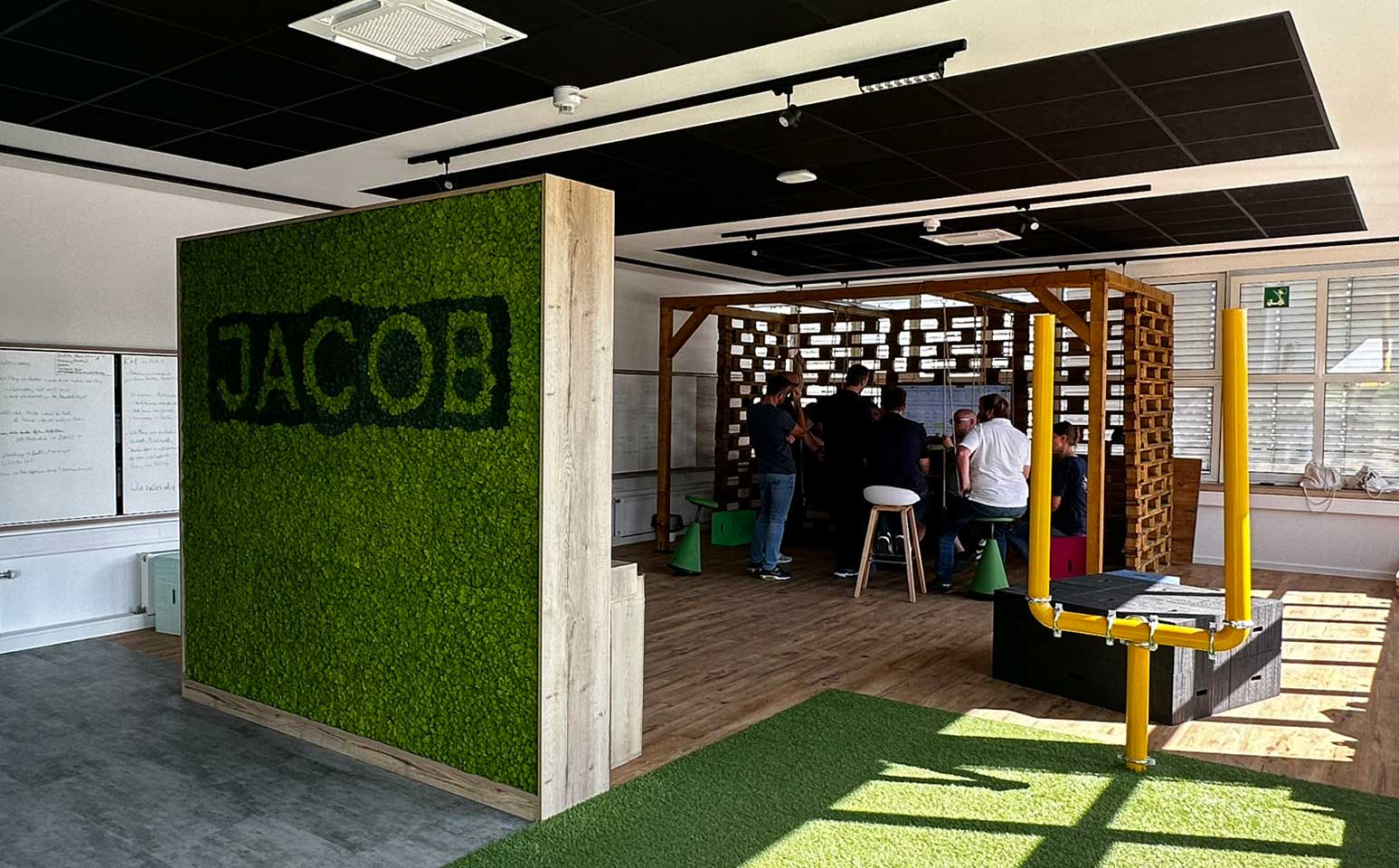
Transformation Office: The meeting room “Denkbar” is the ideas workshop of JACOB


